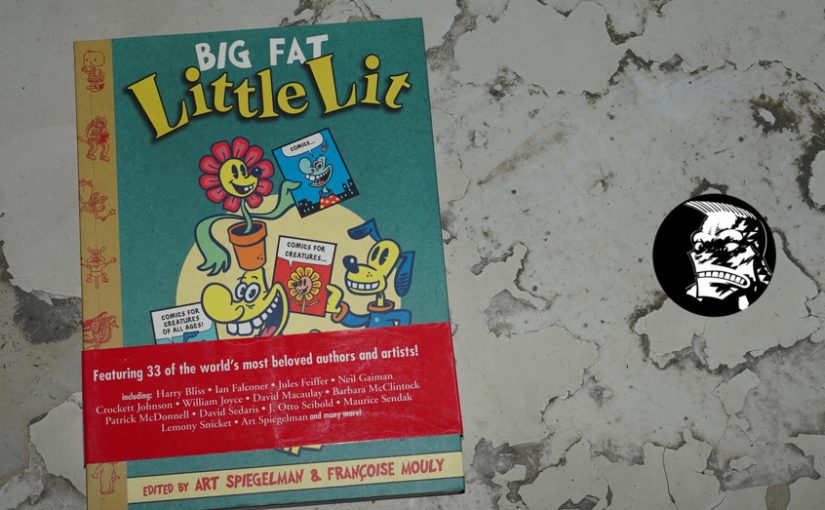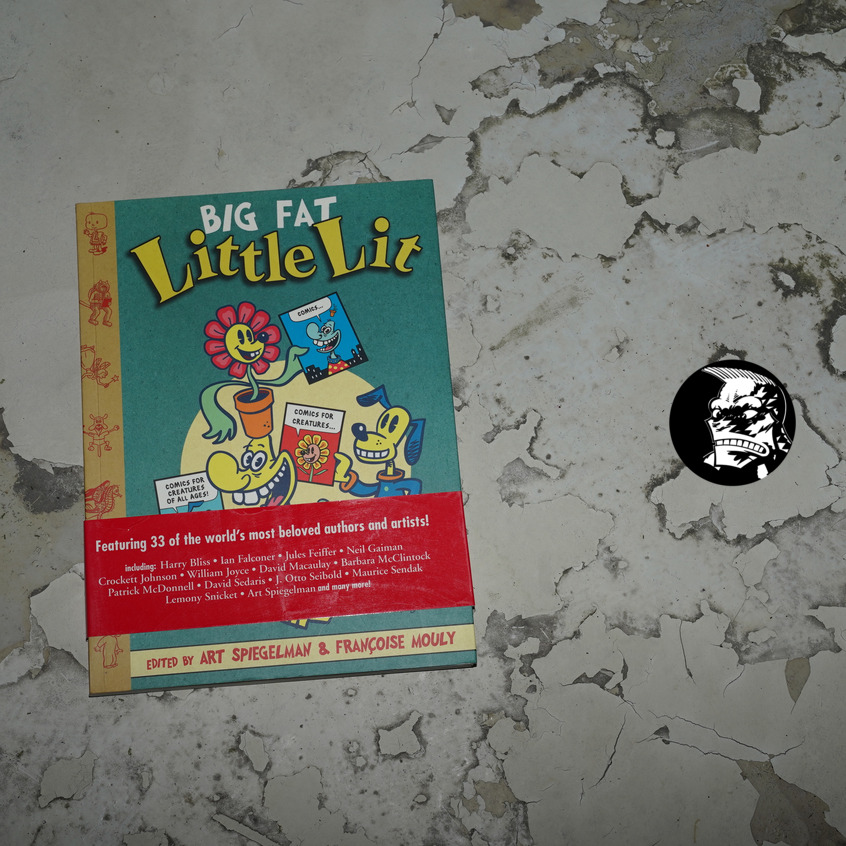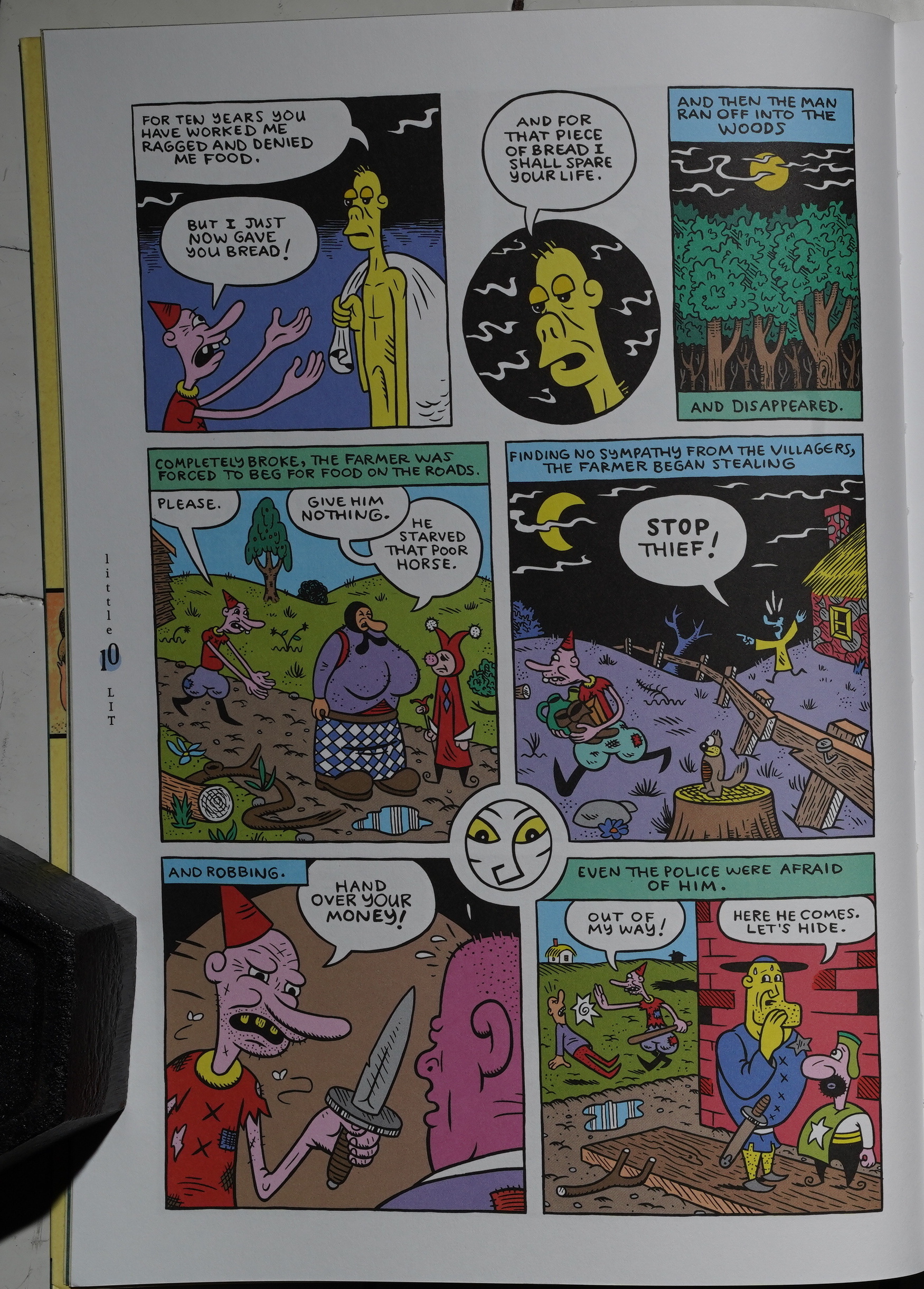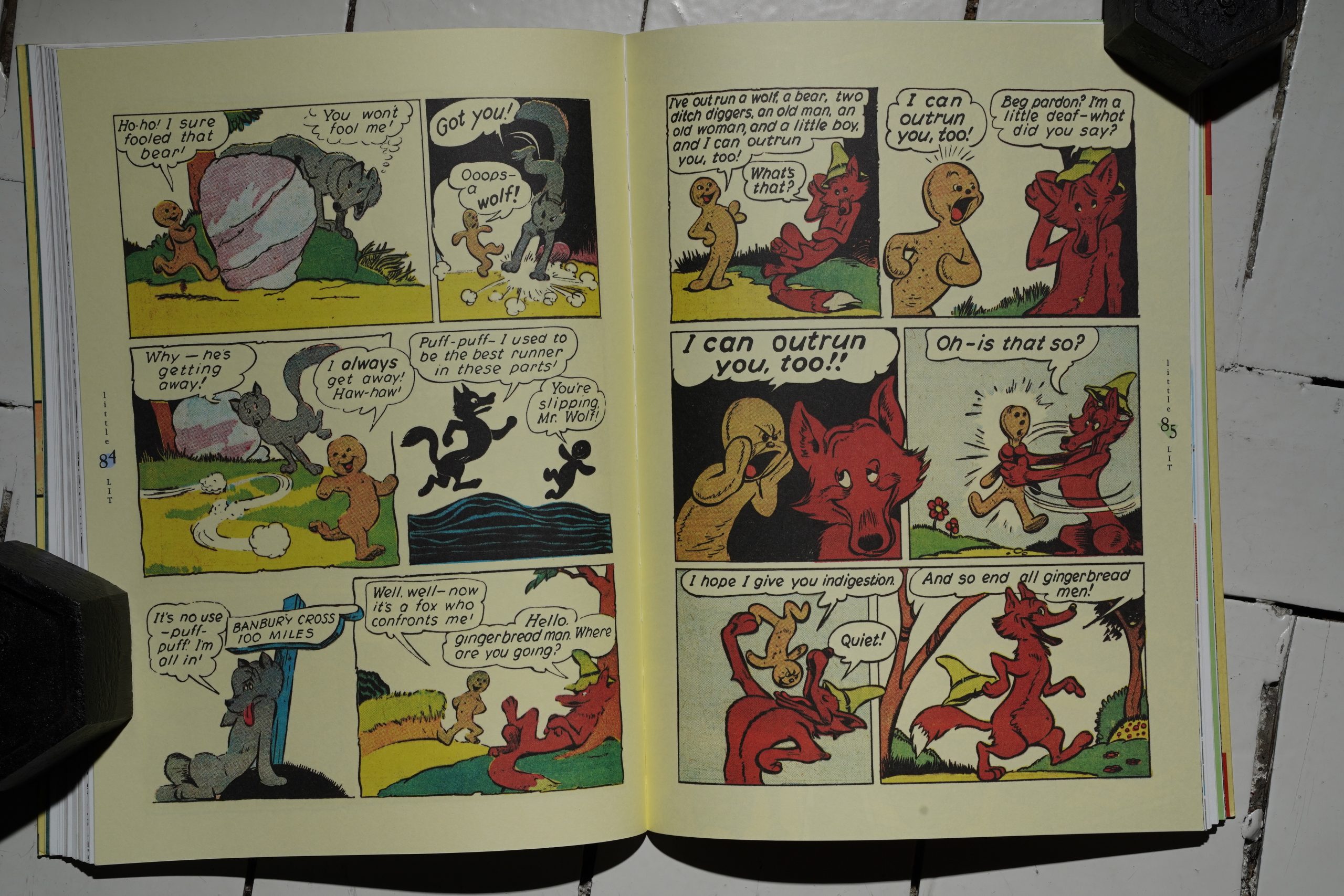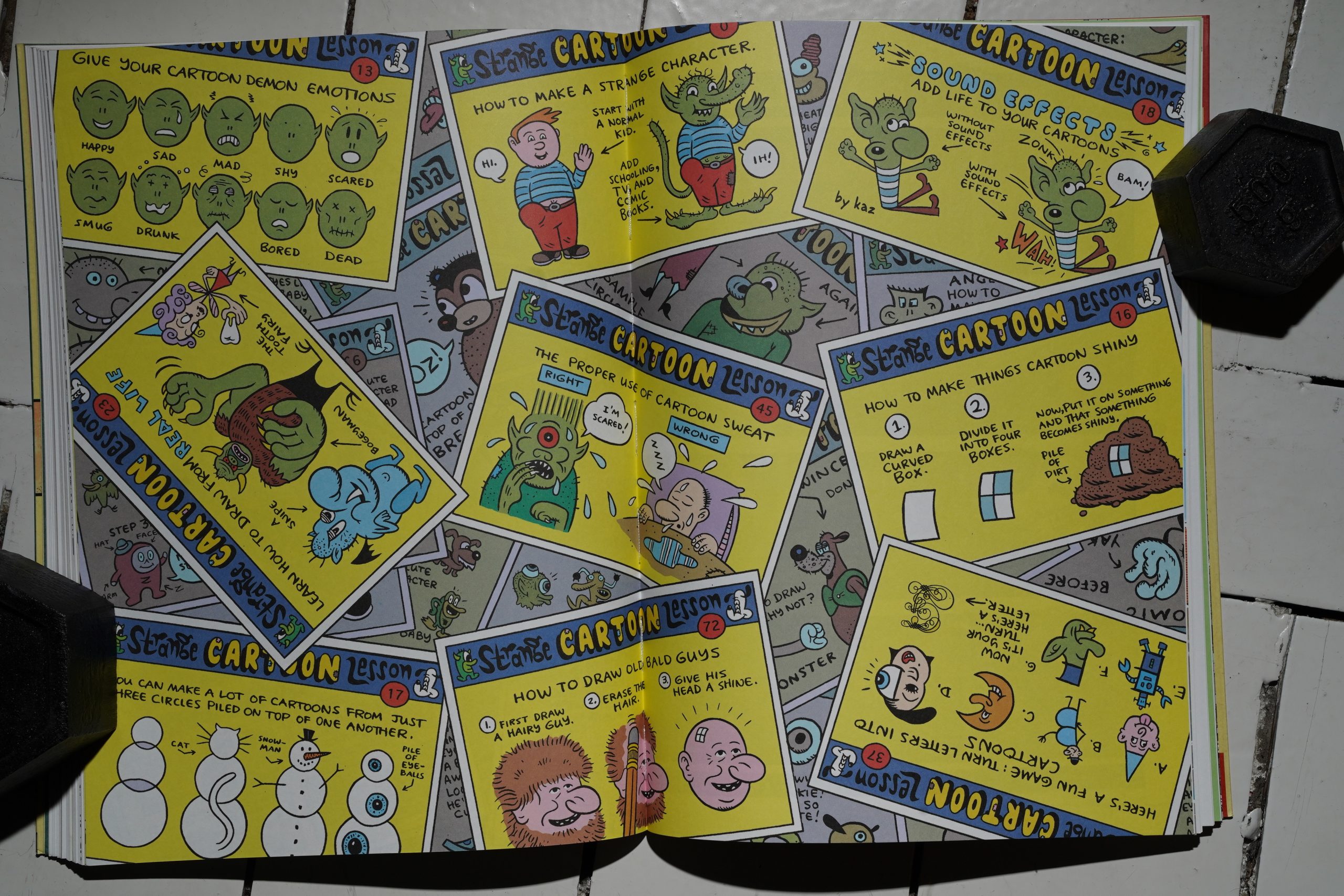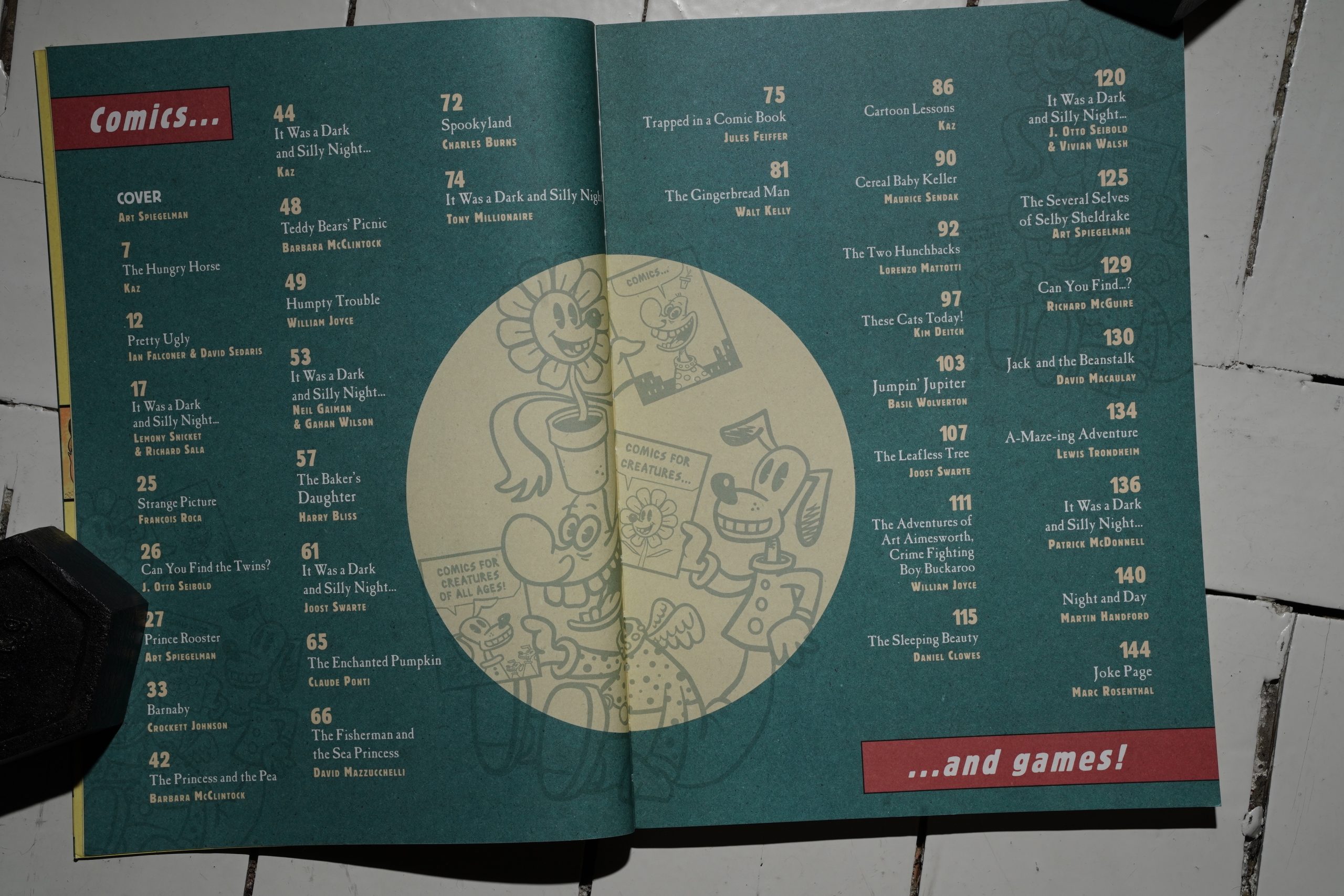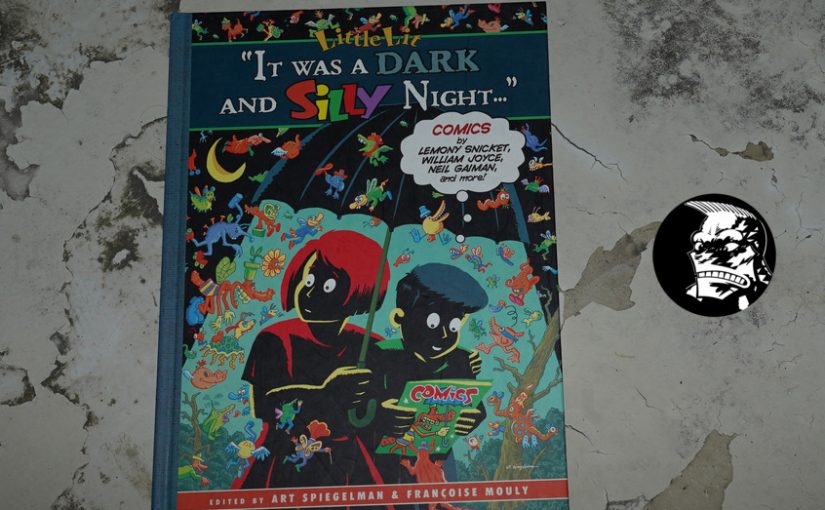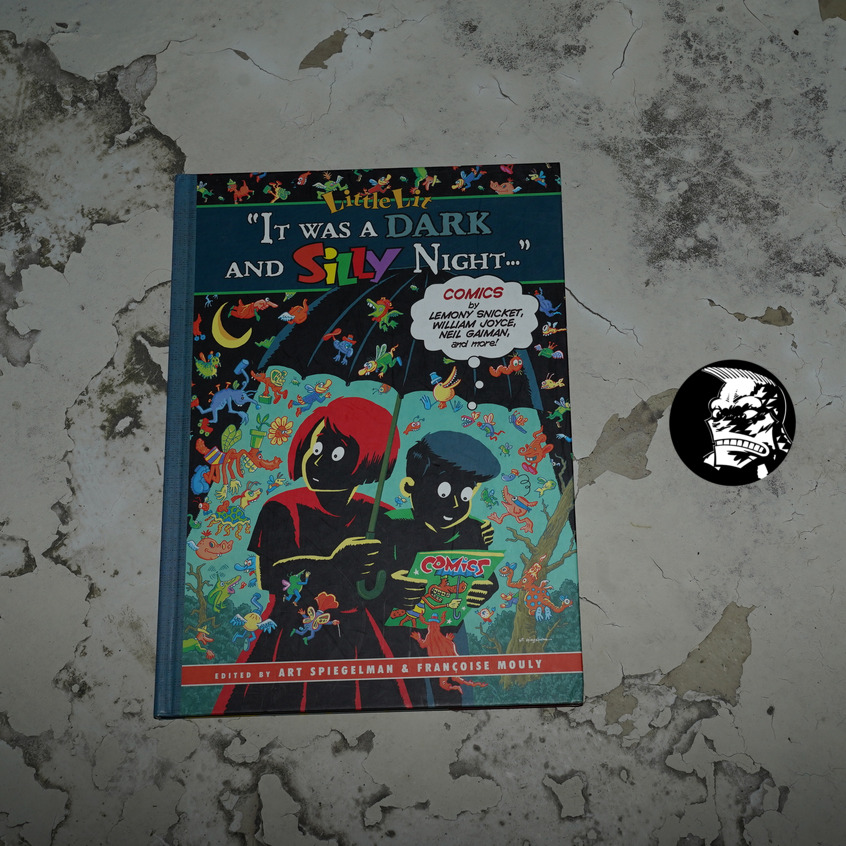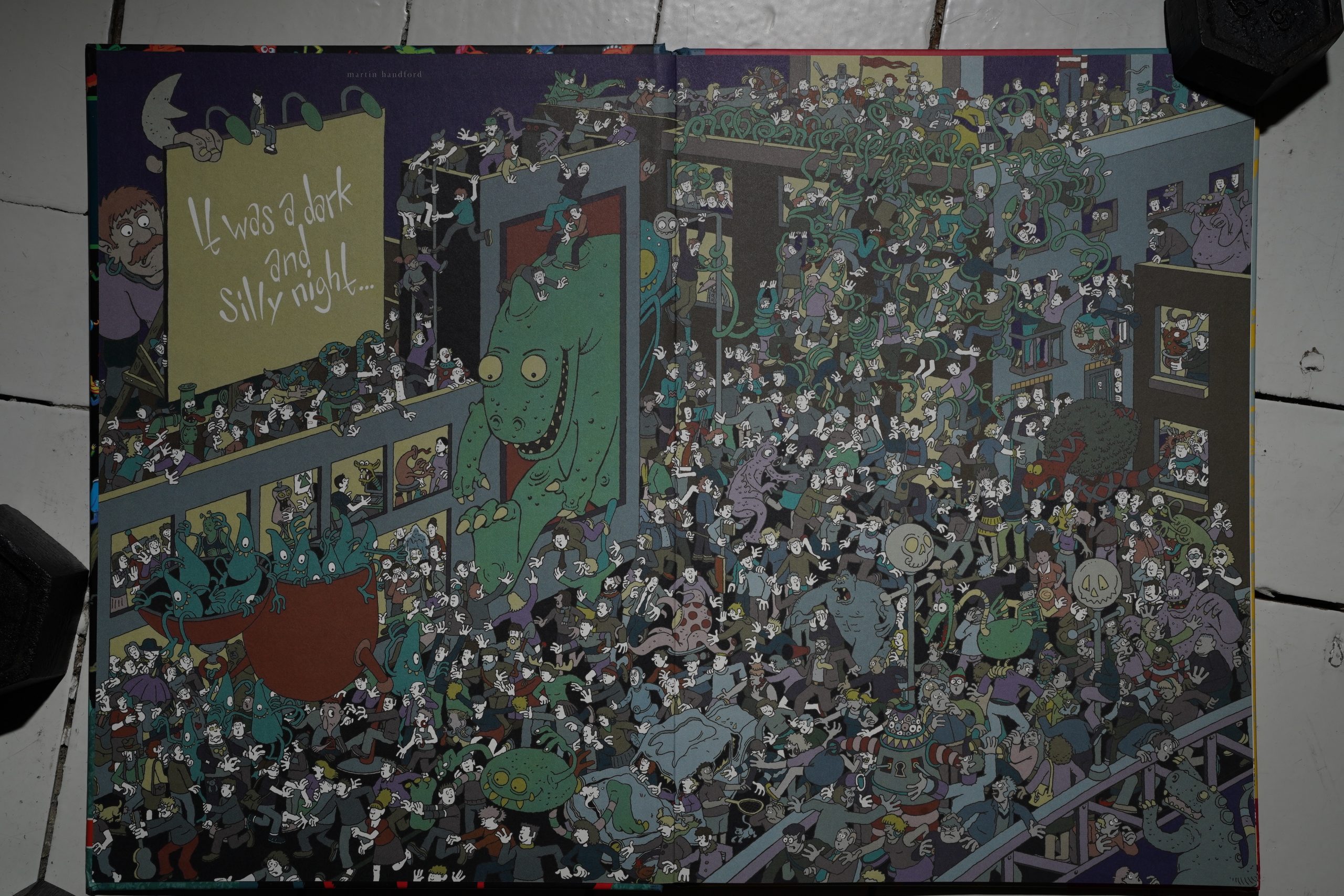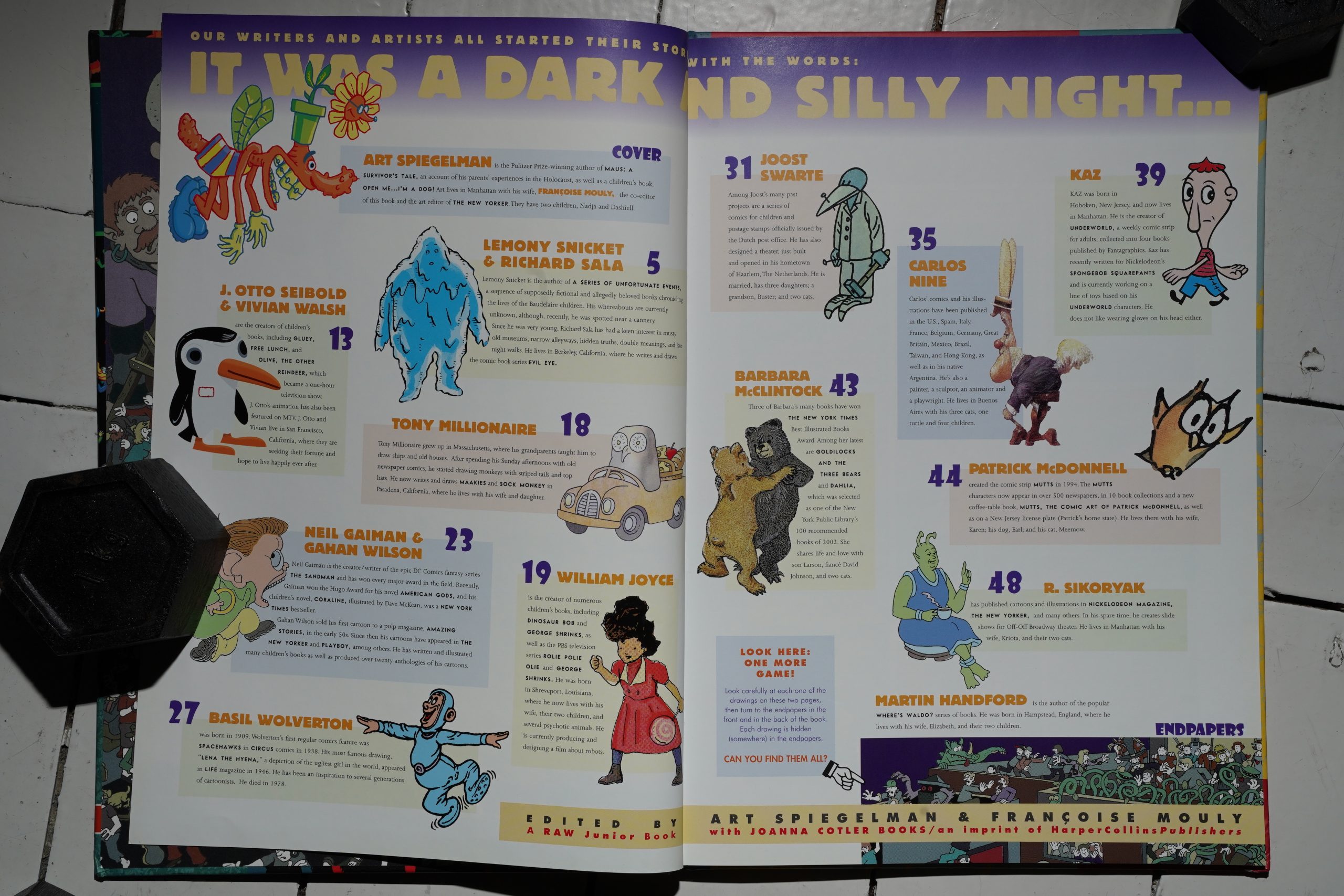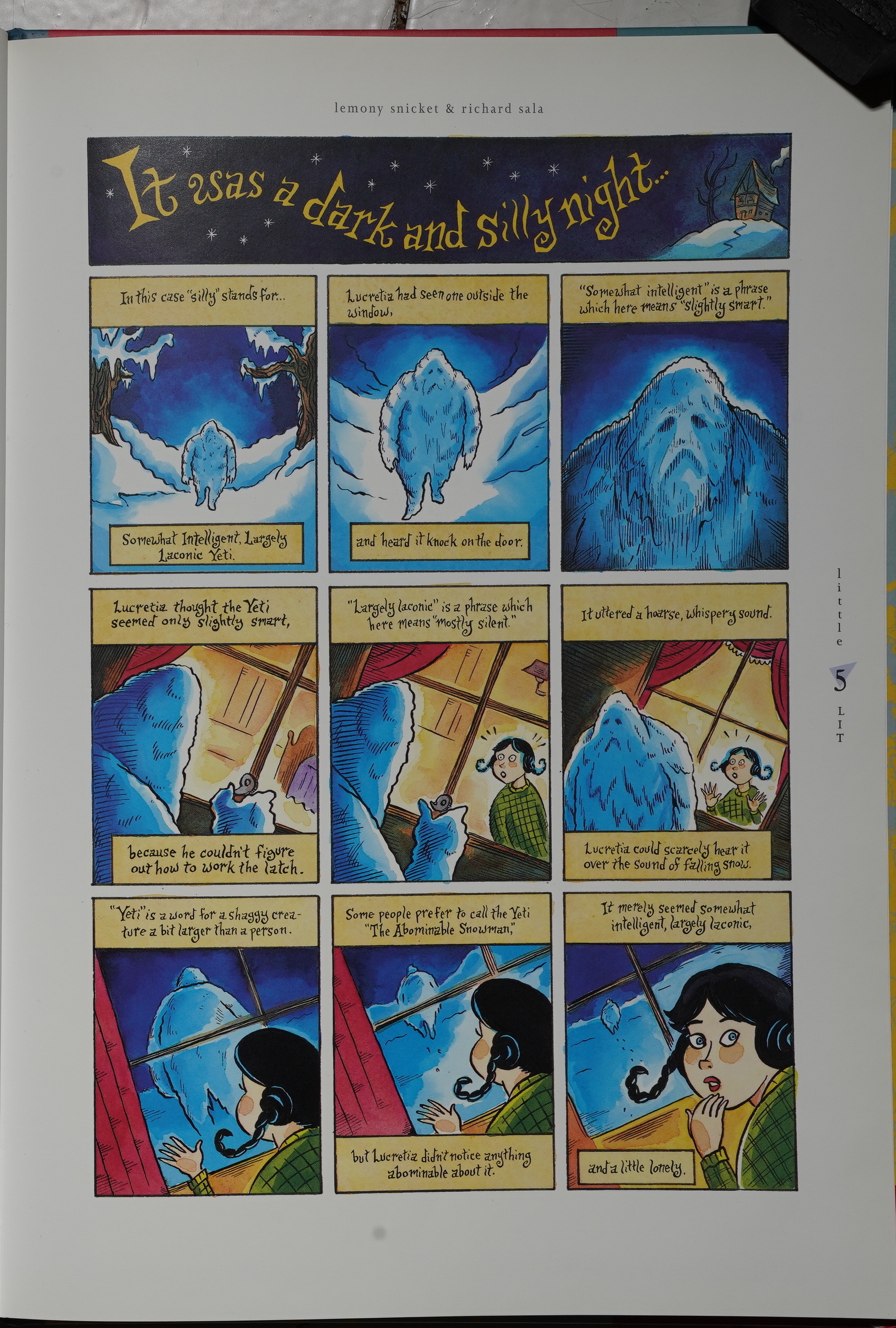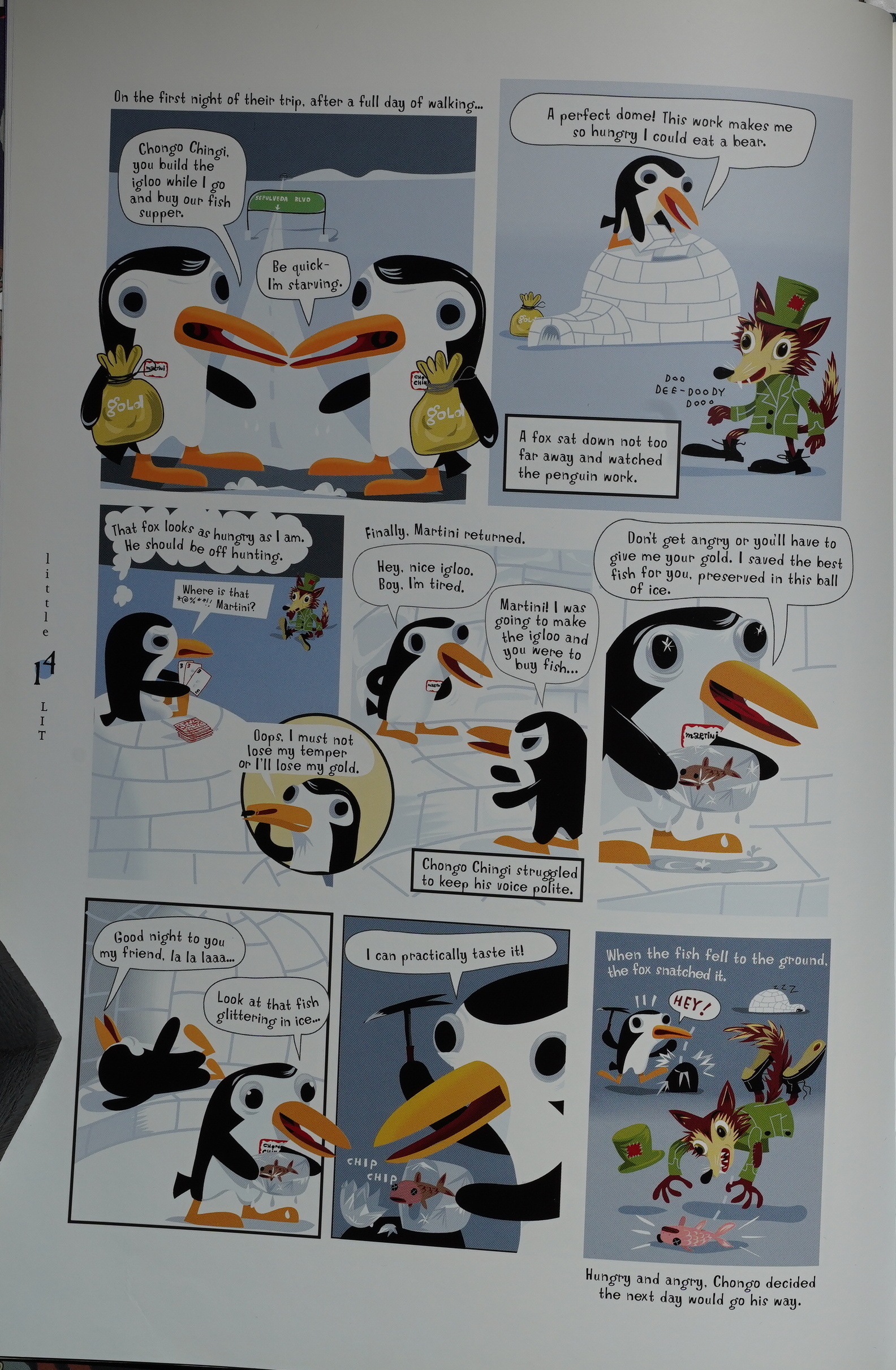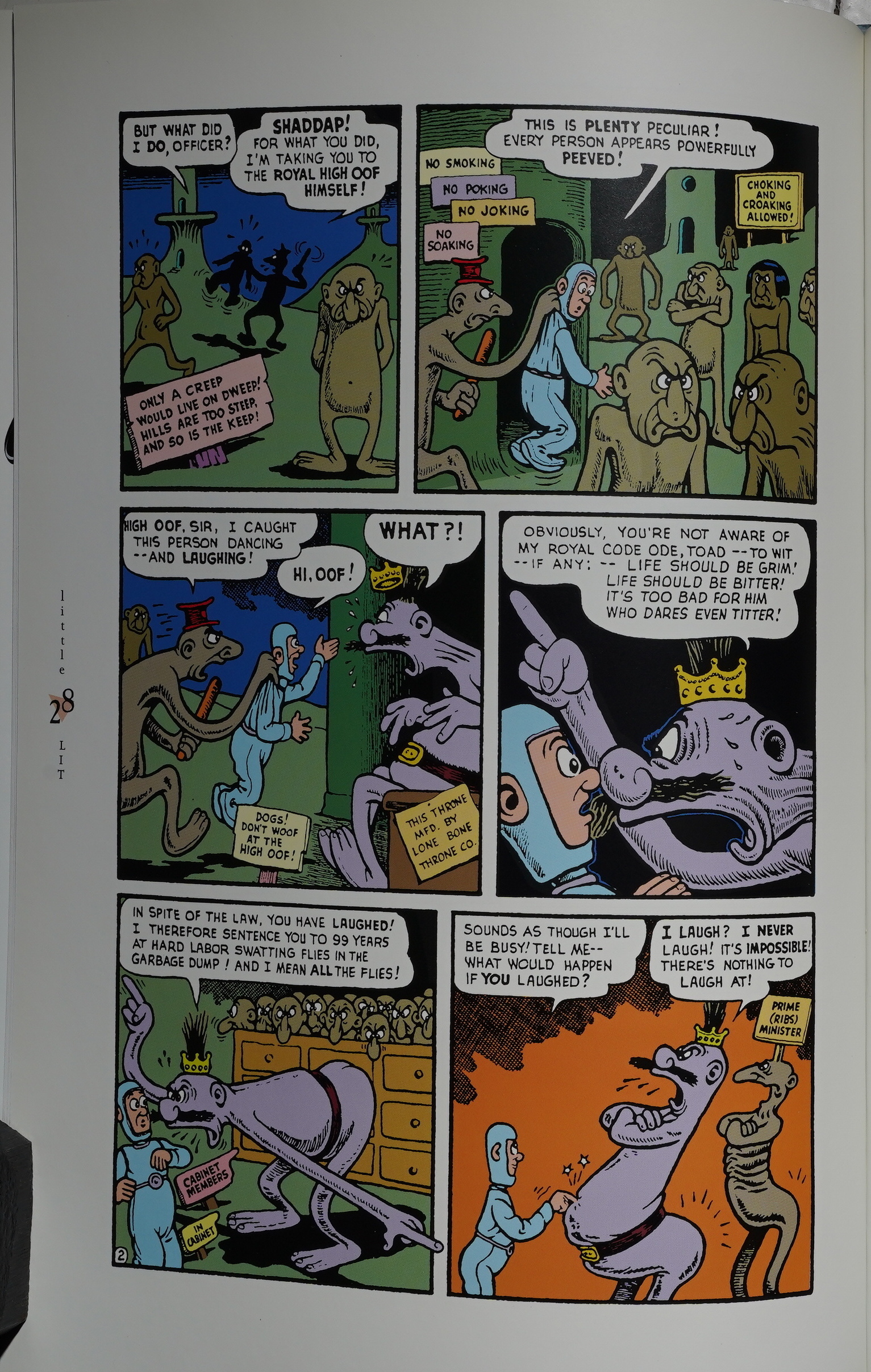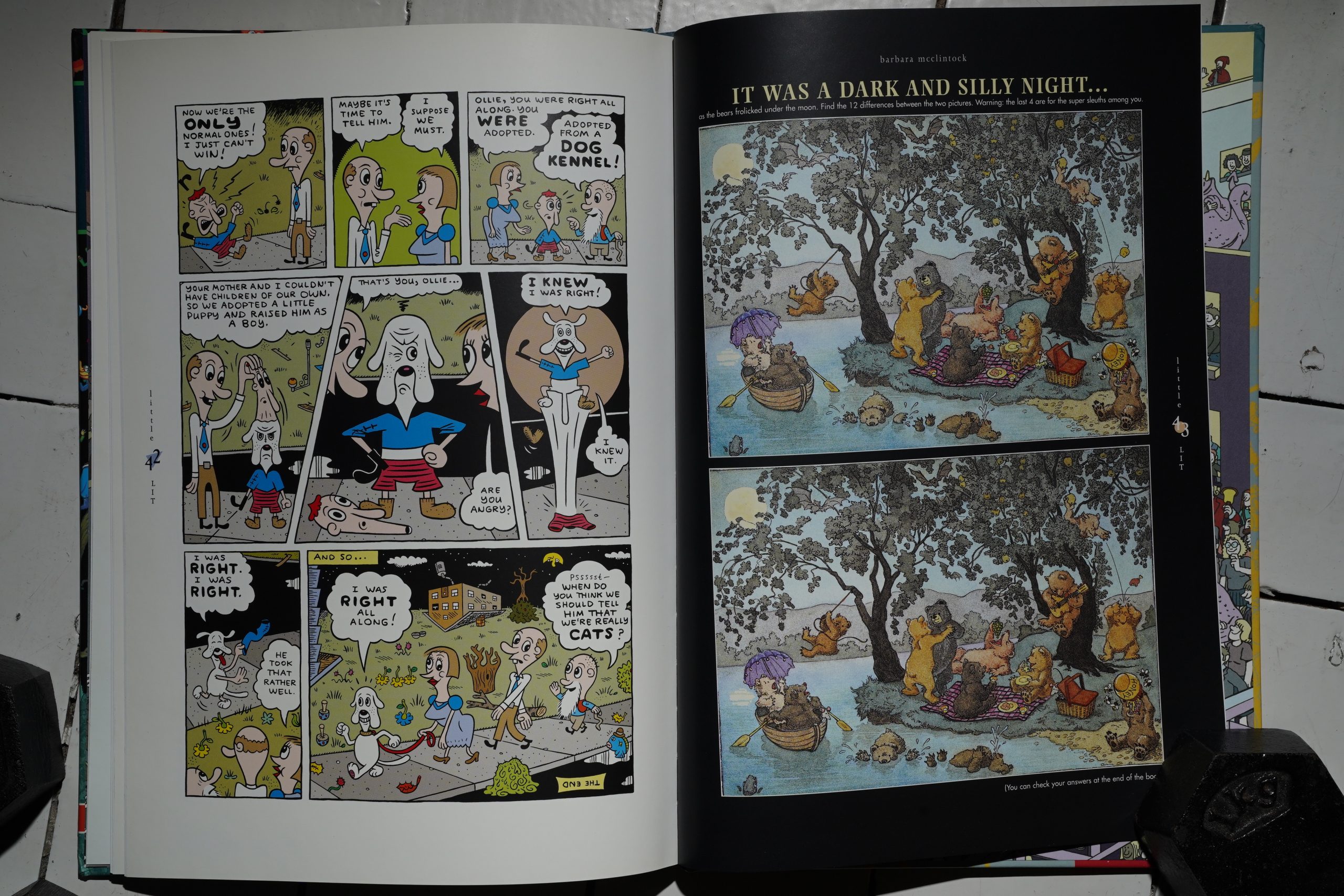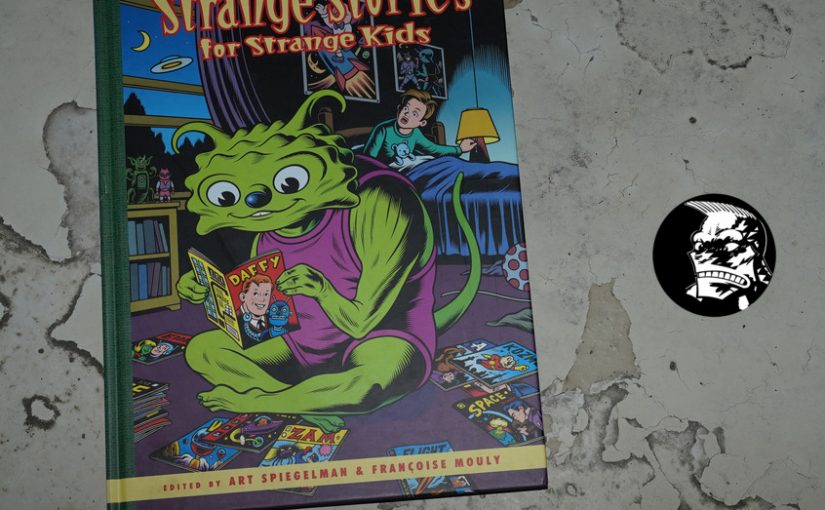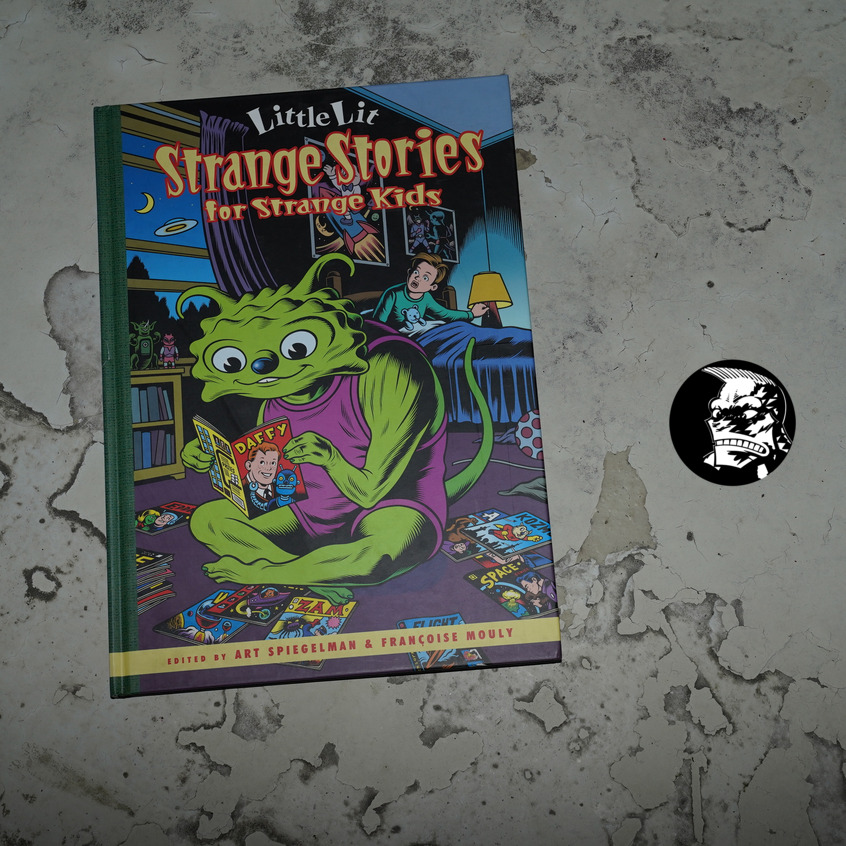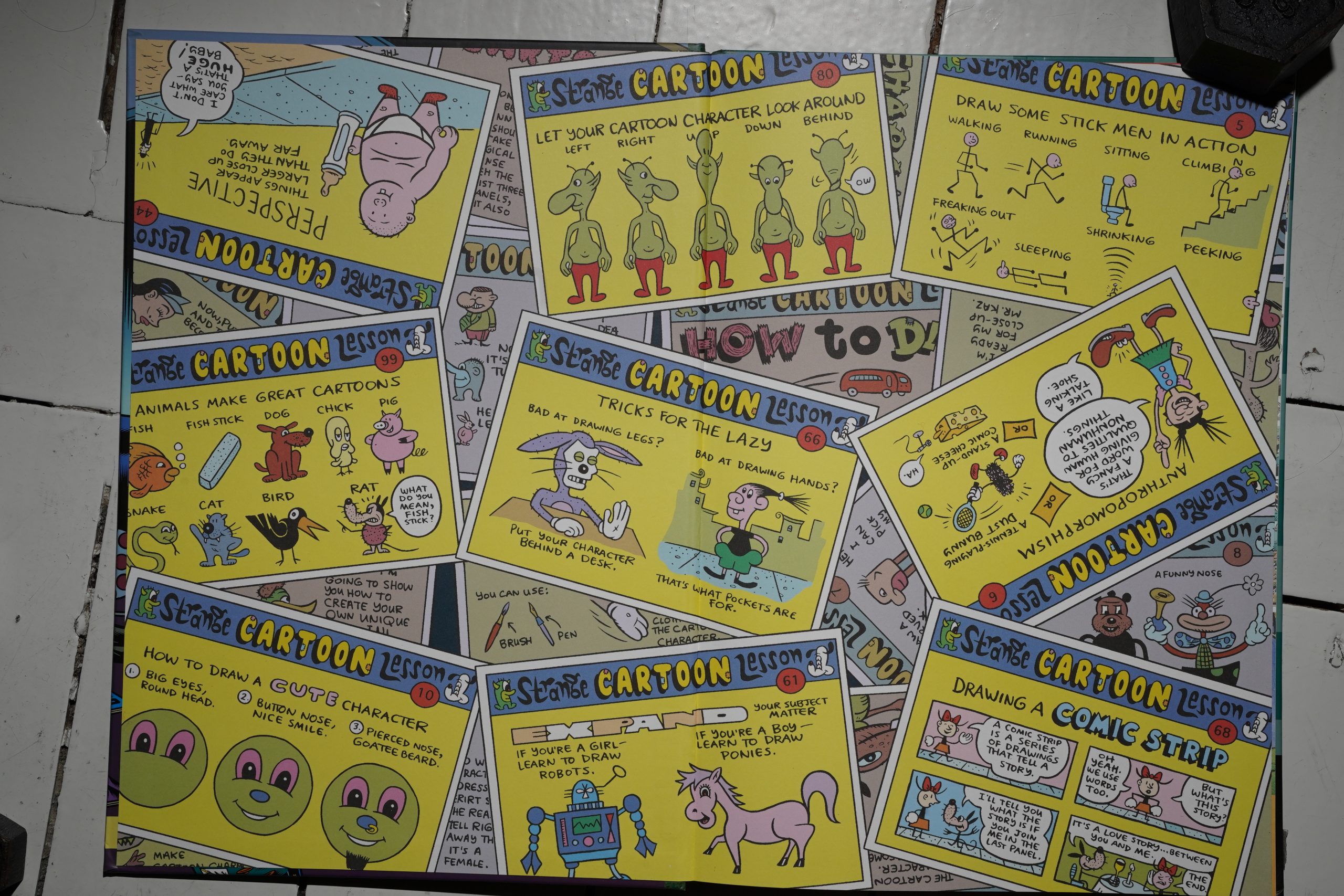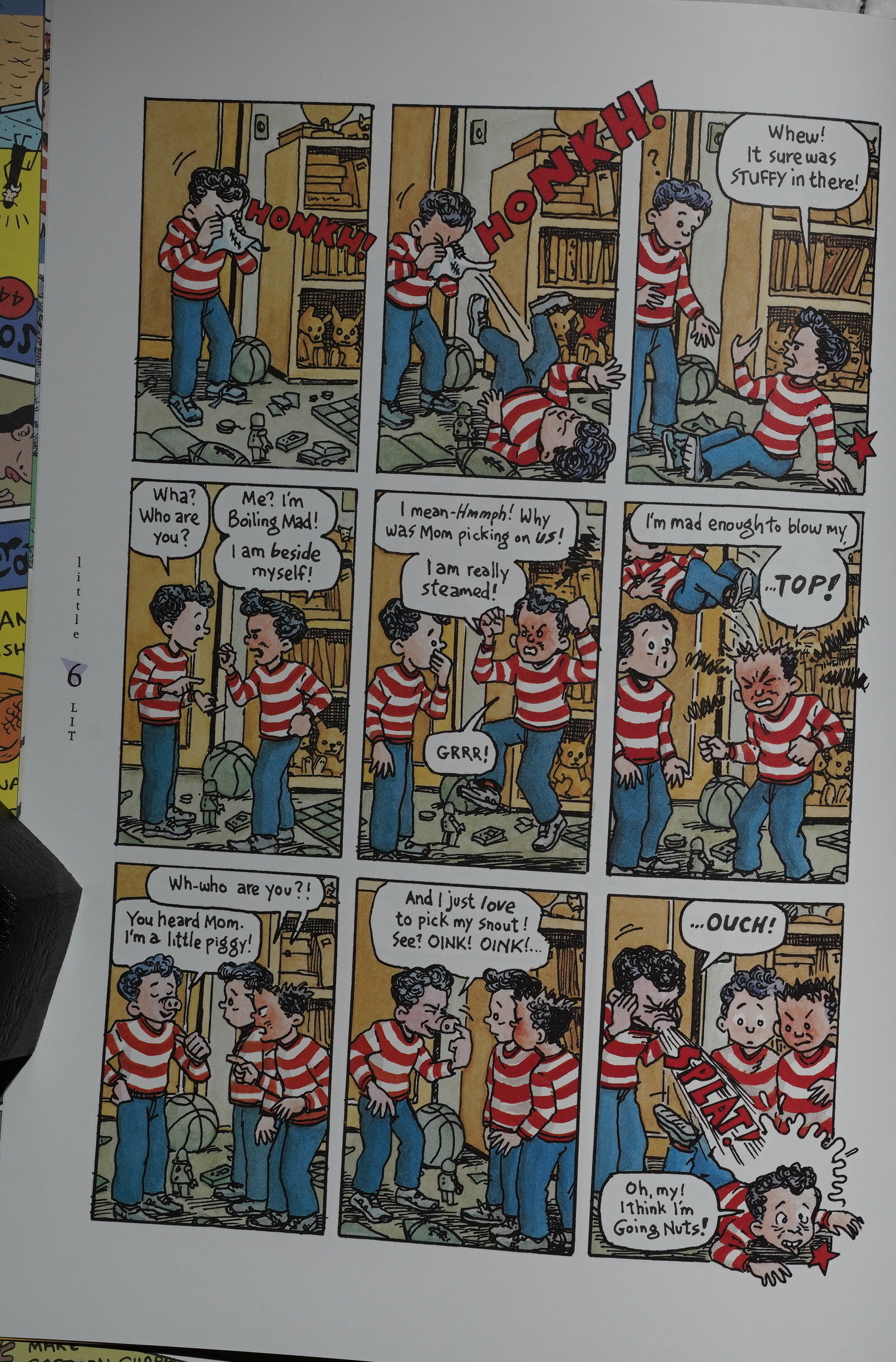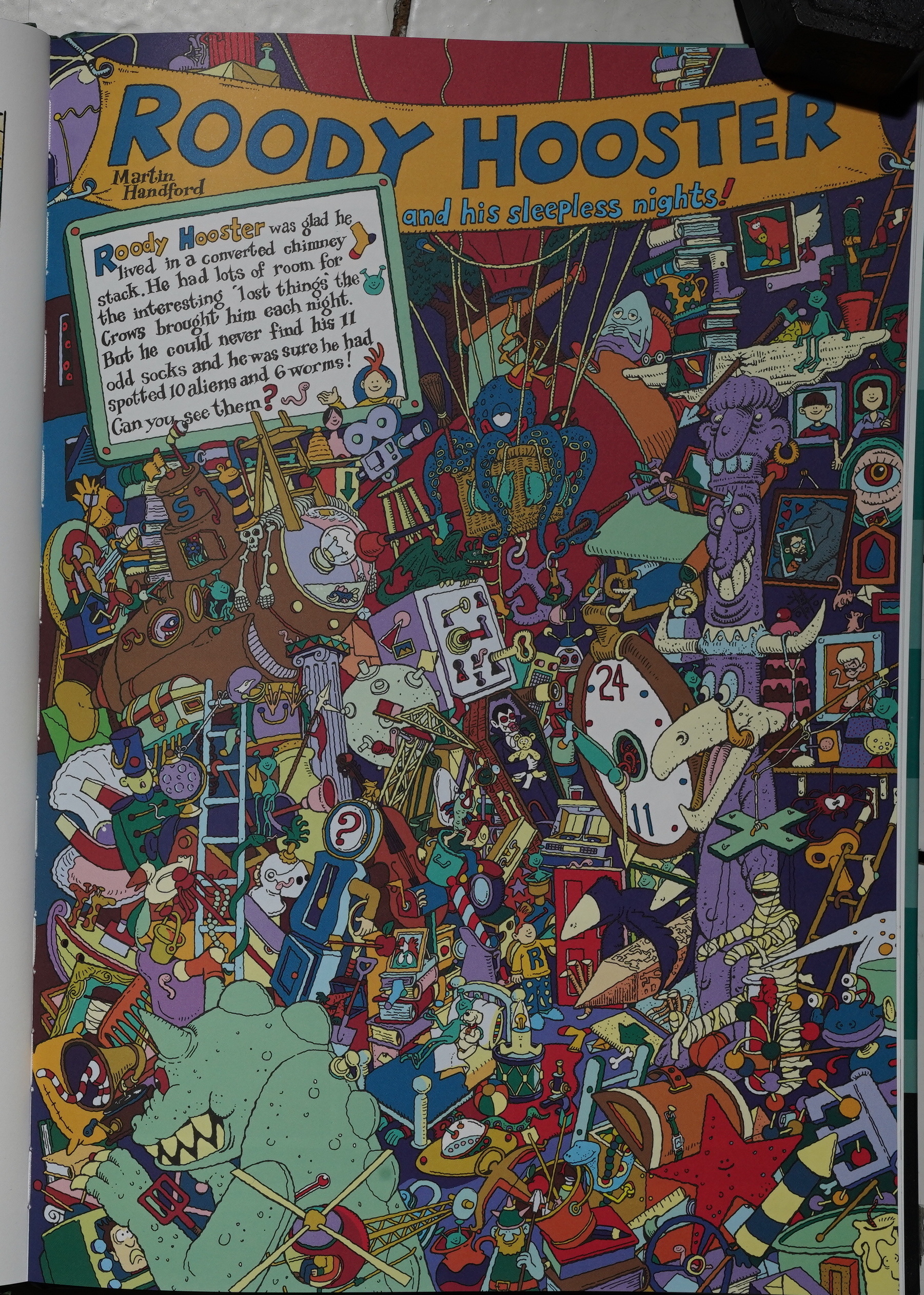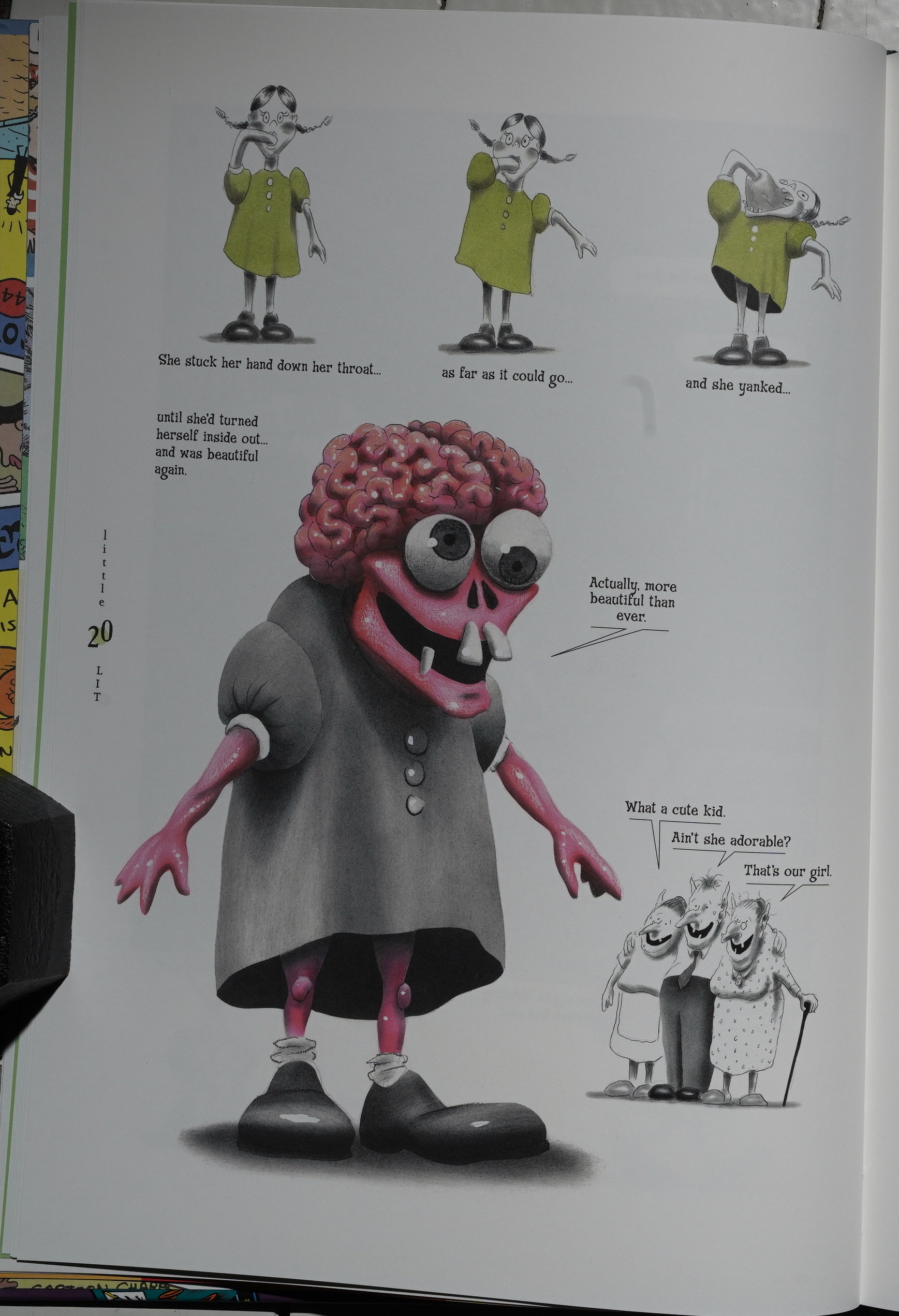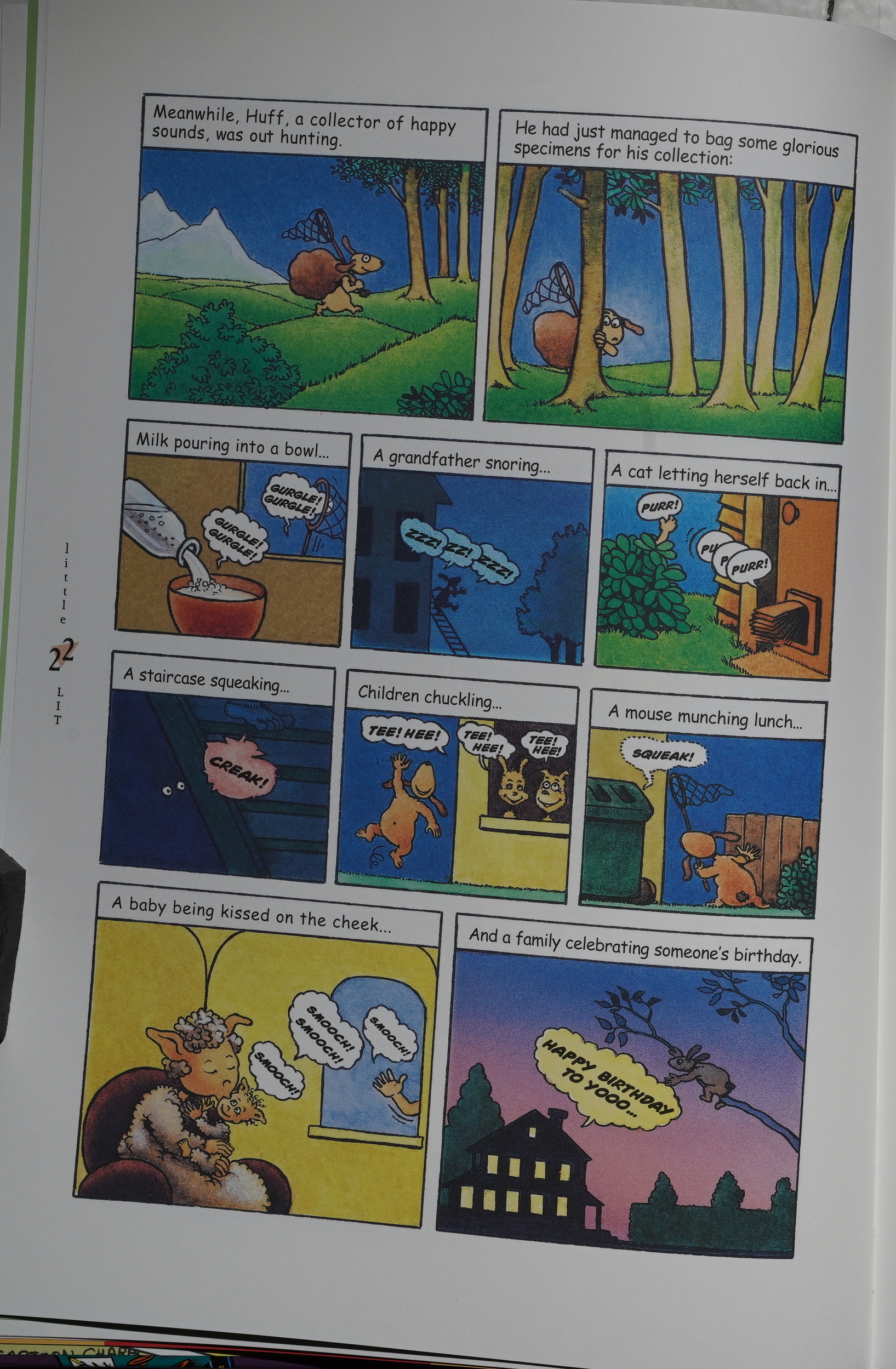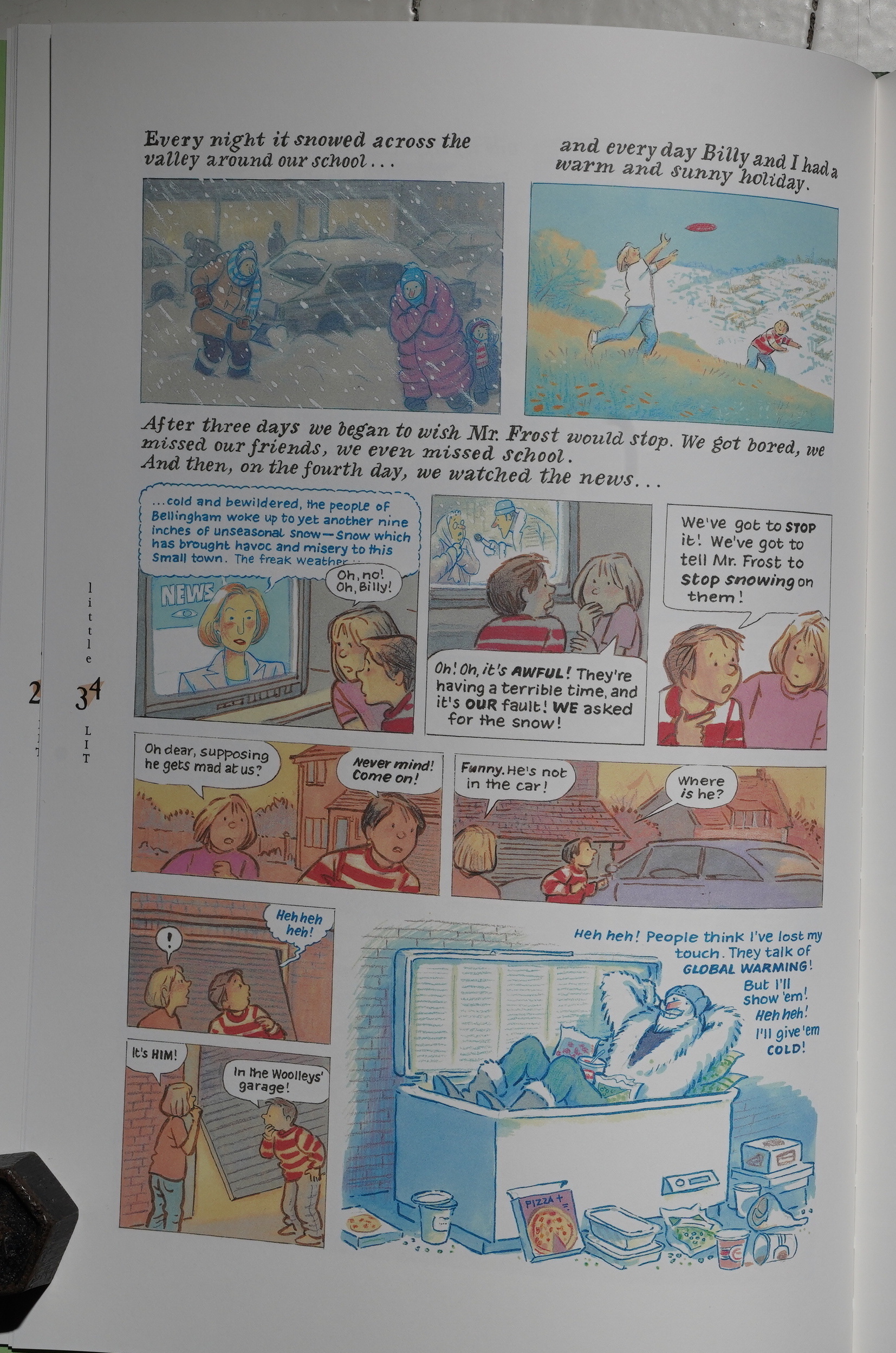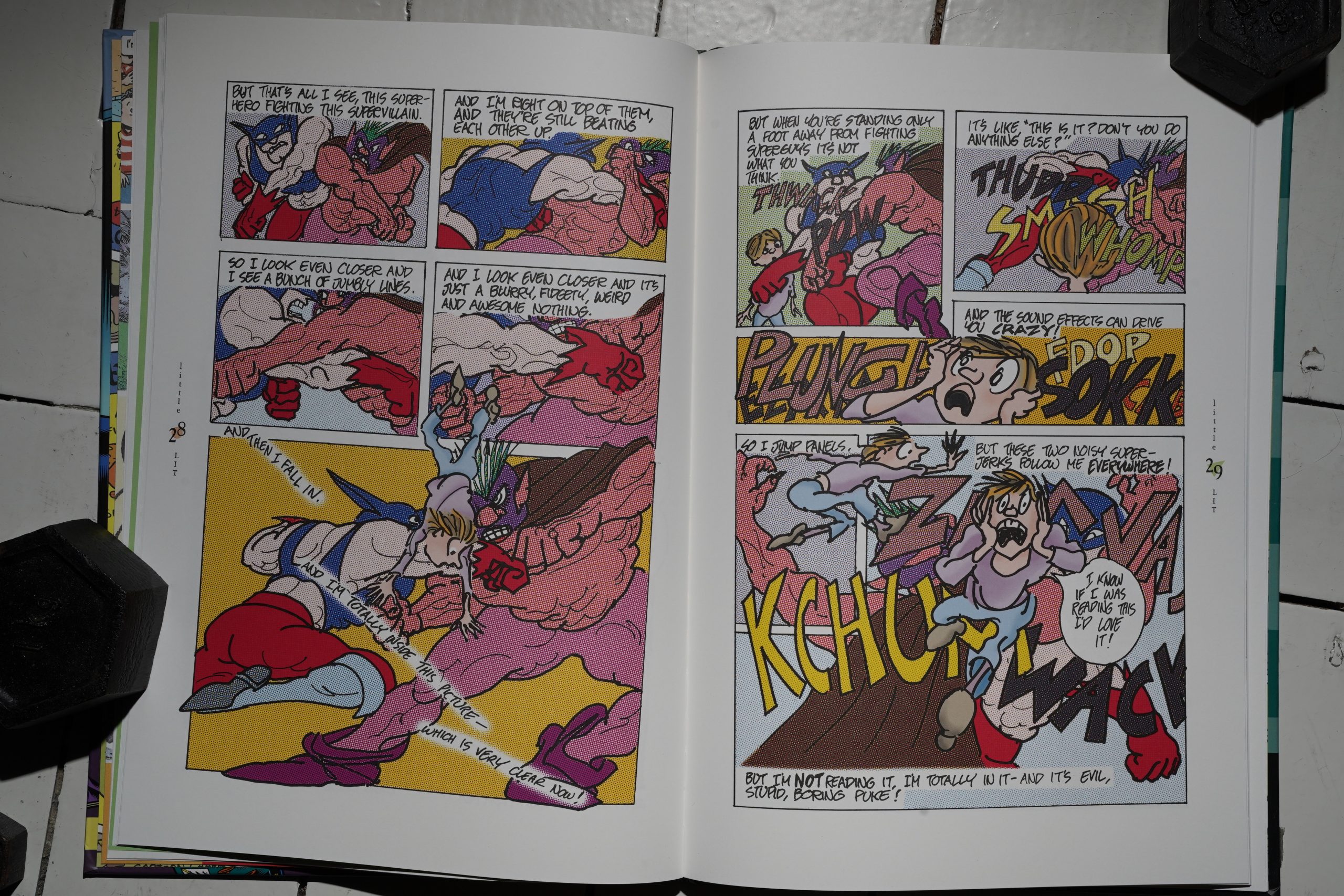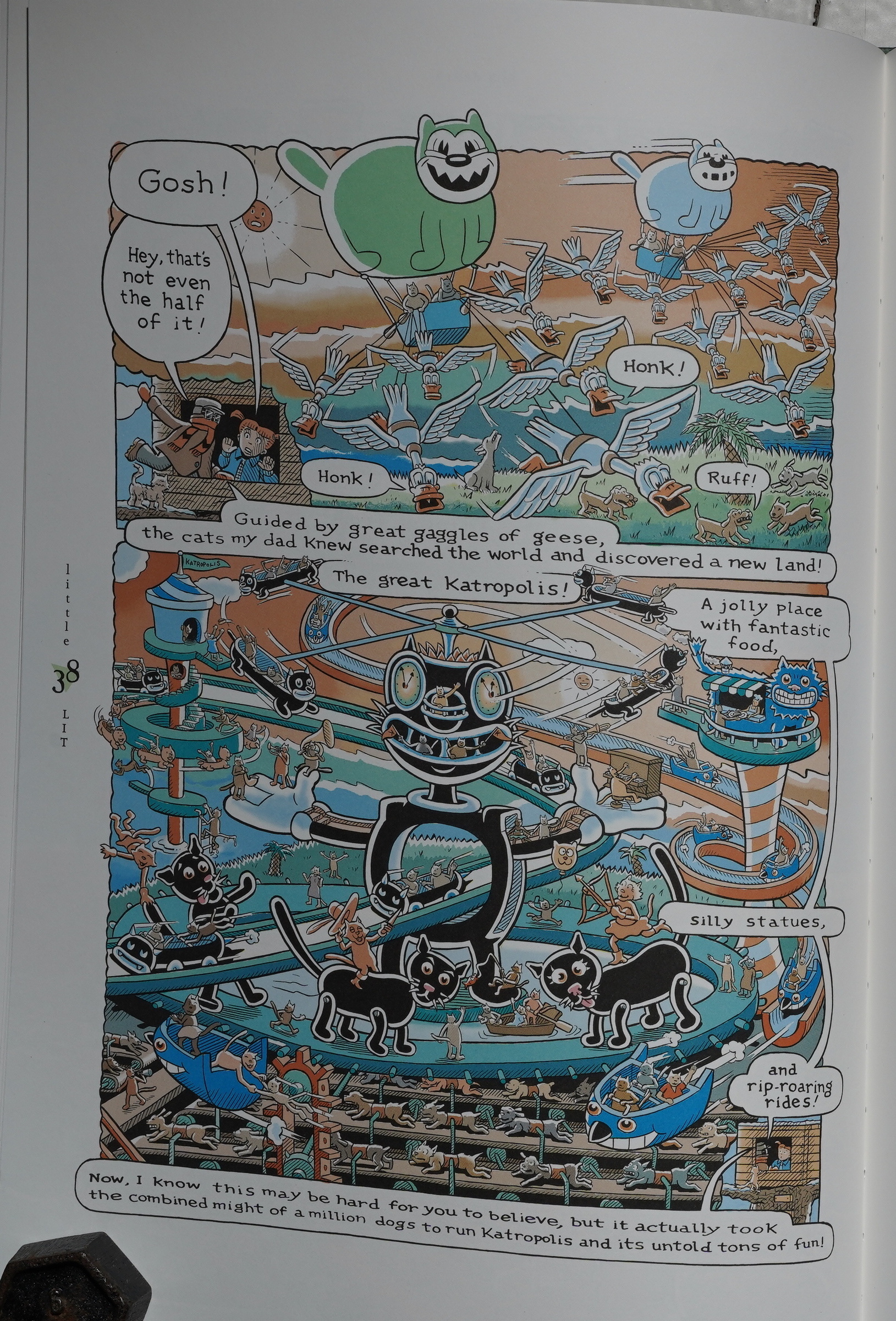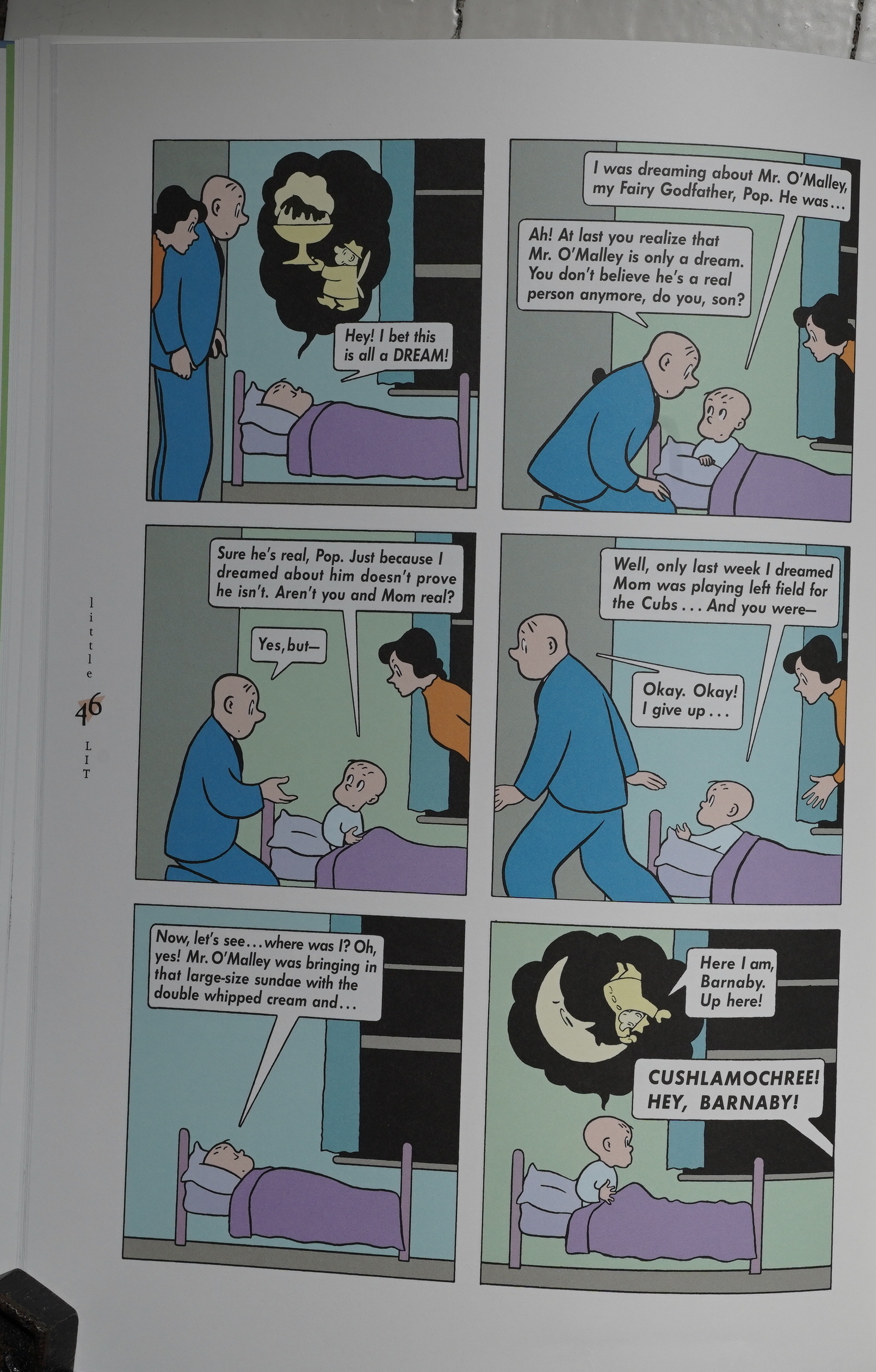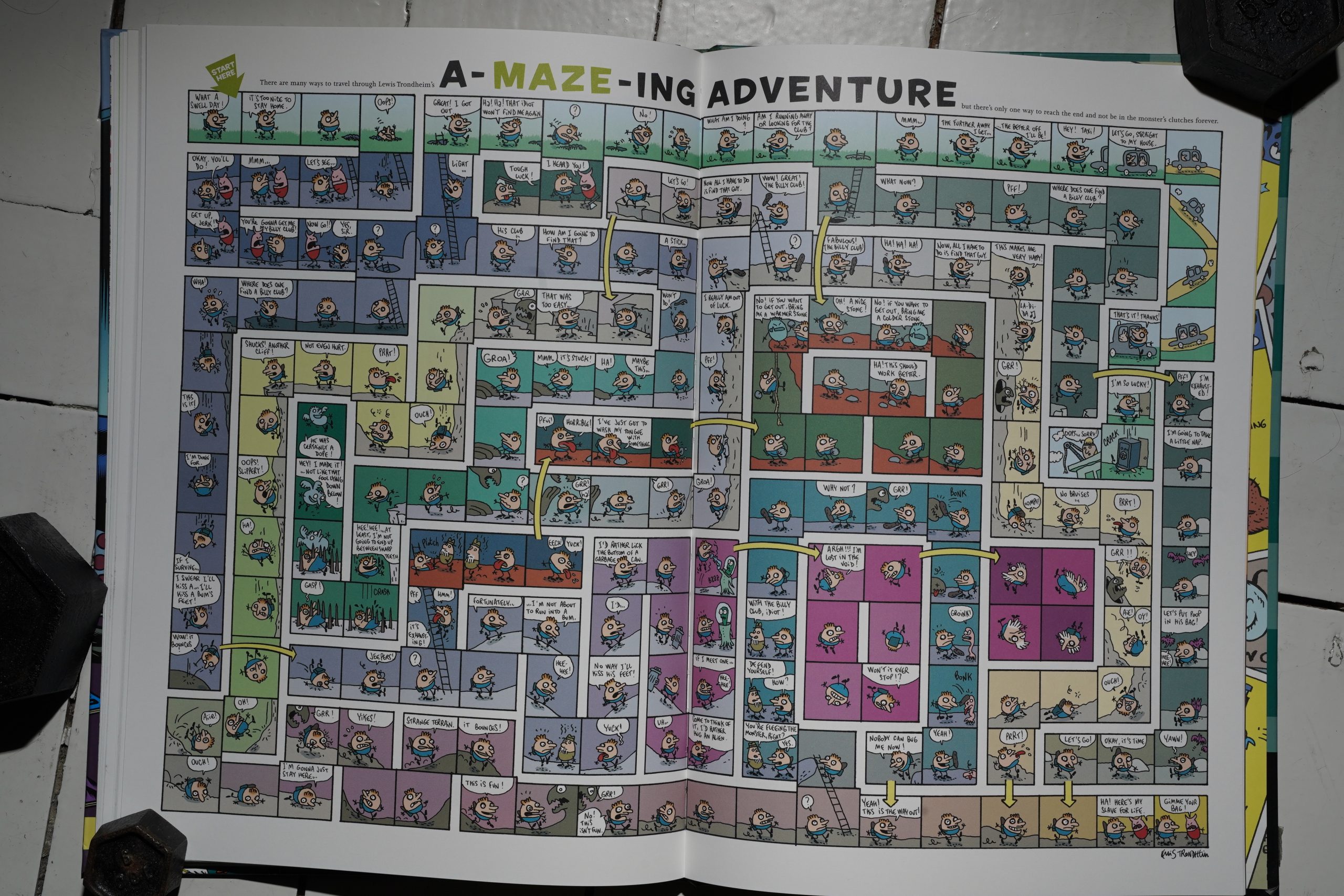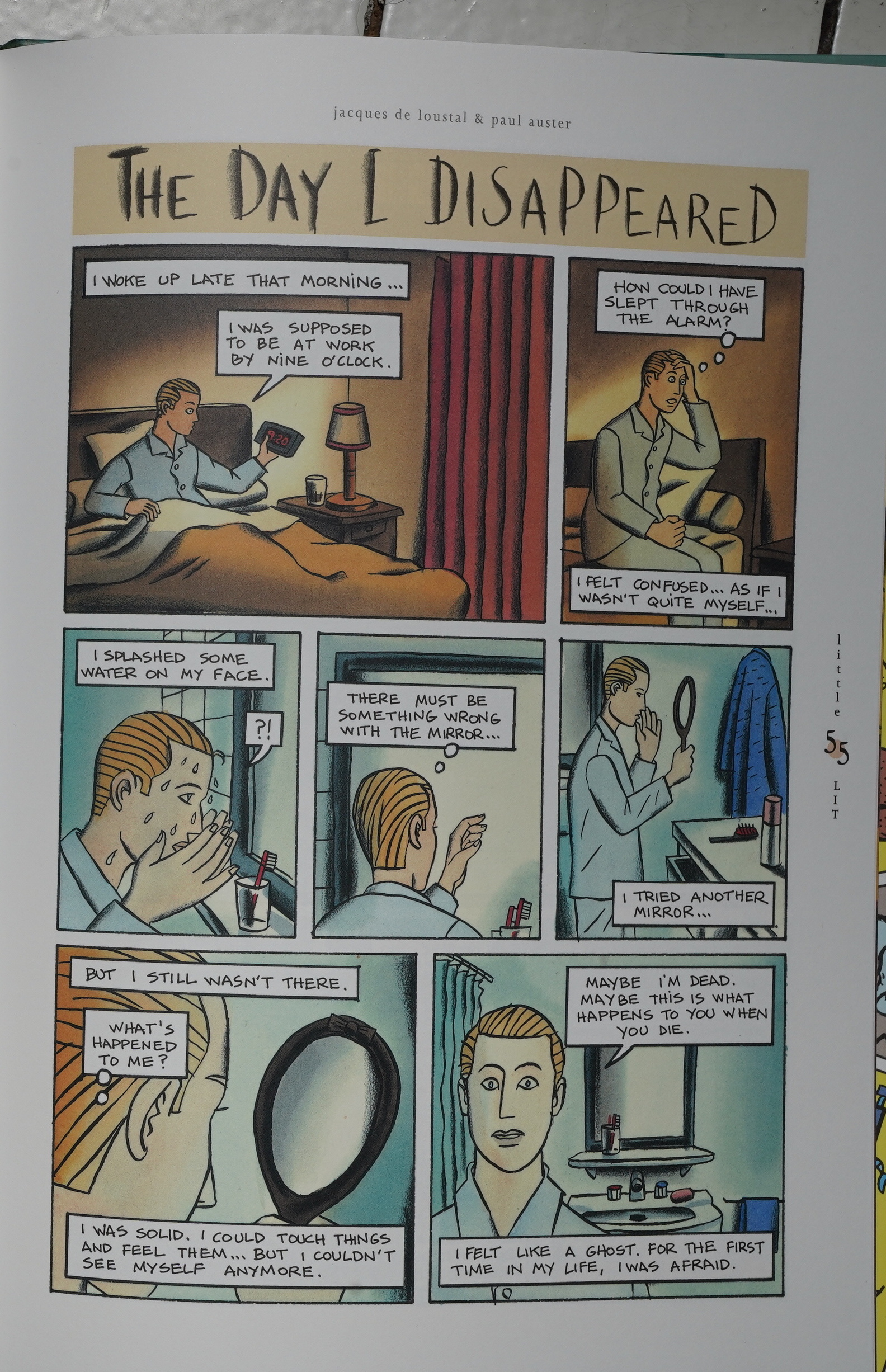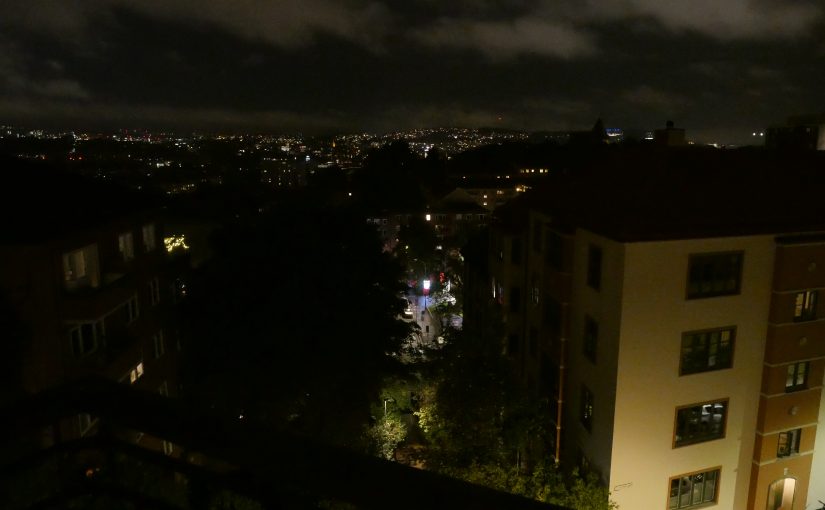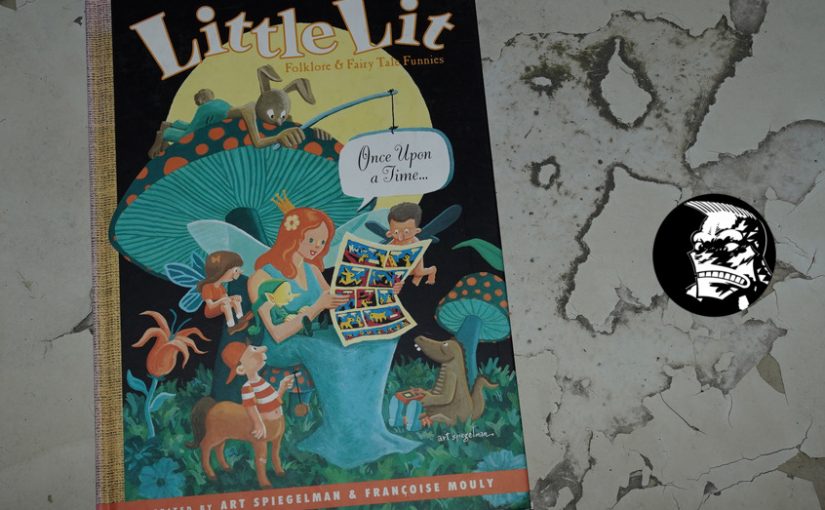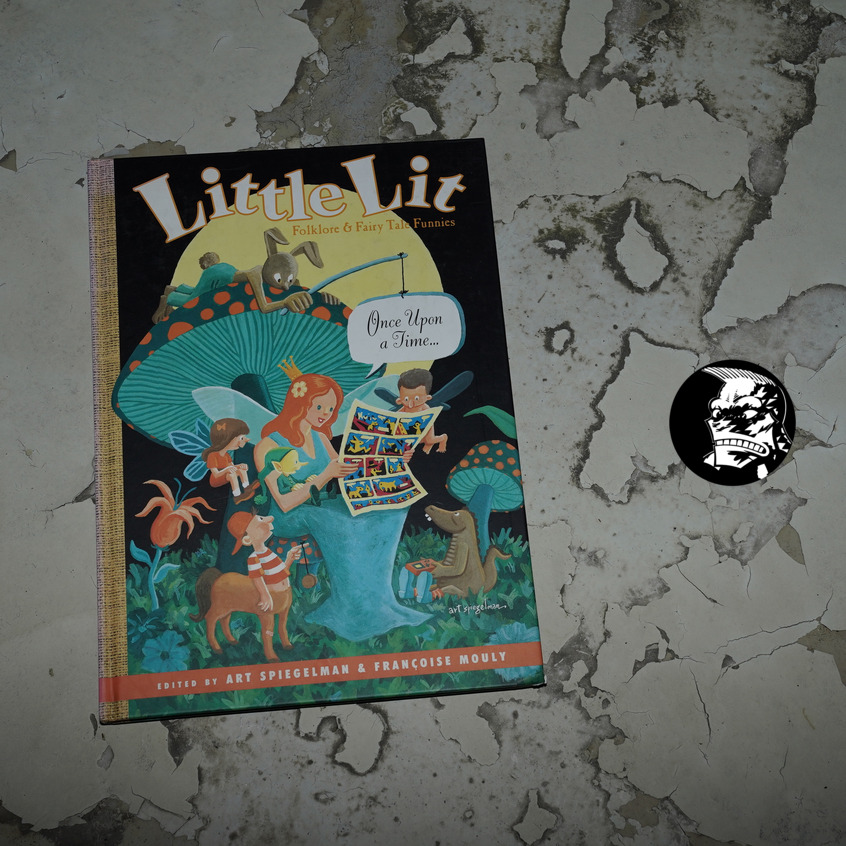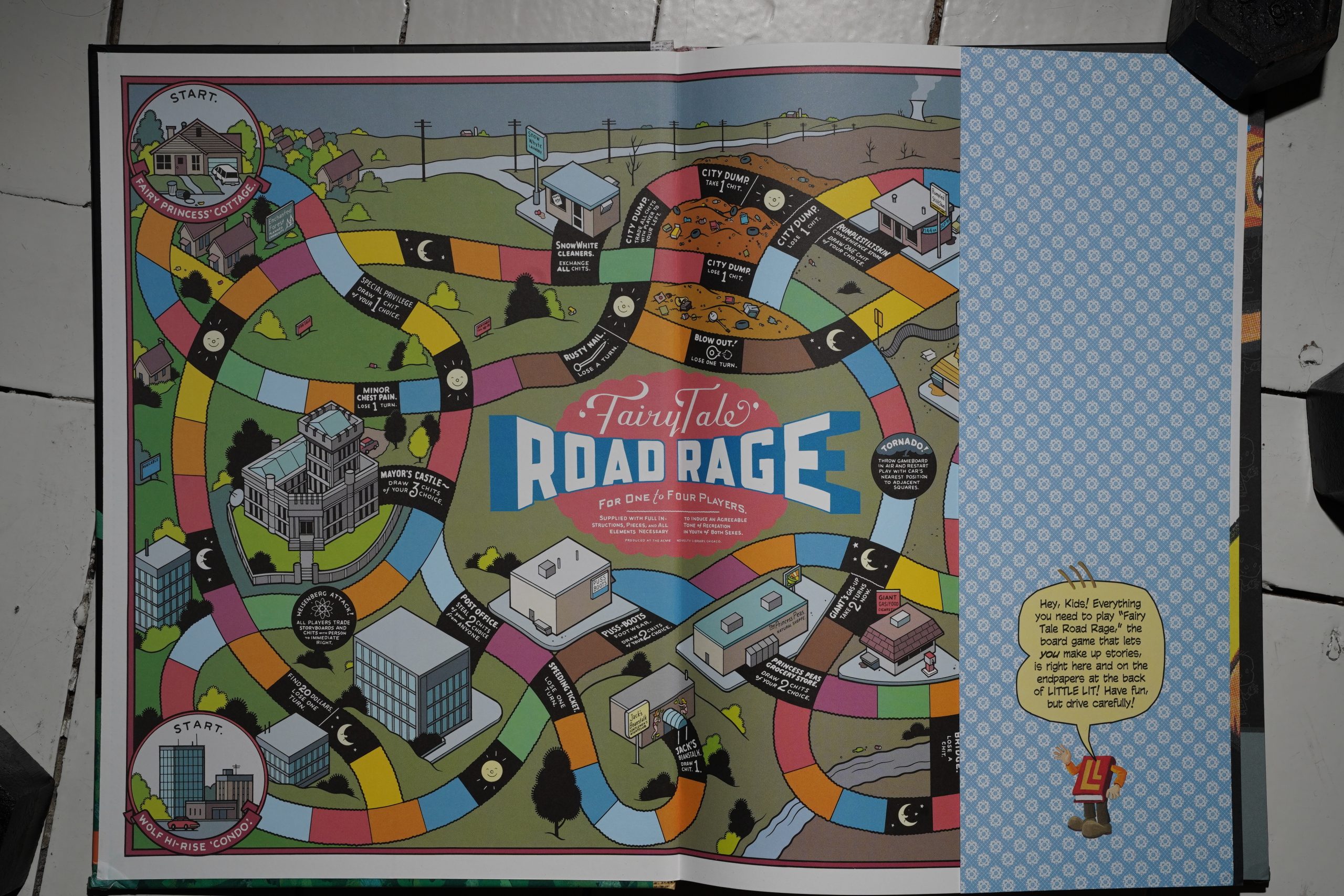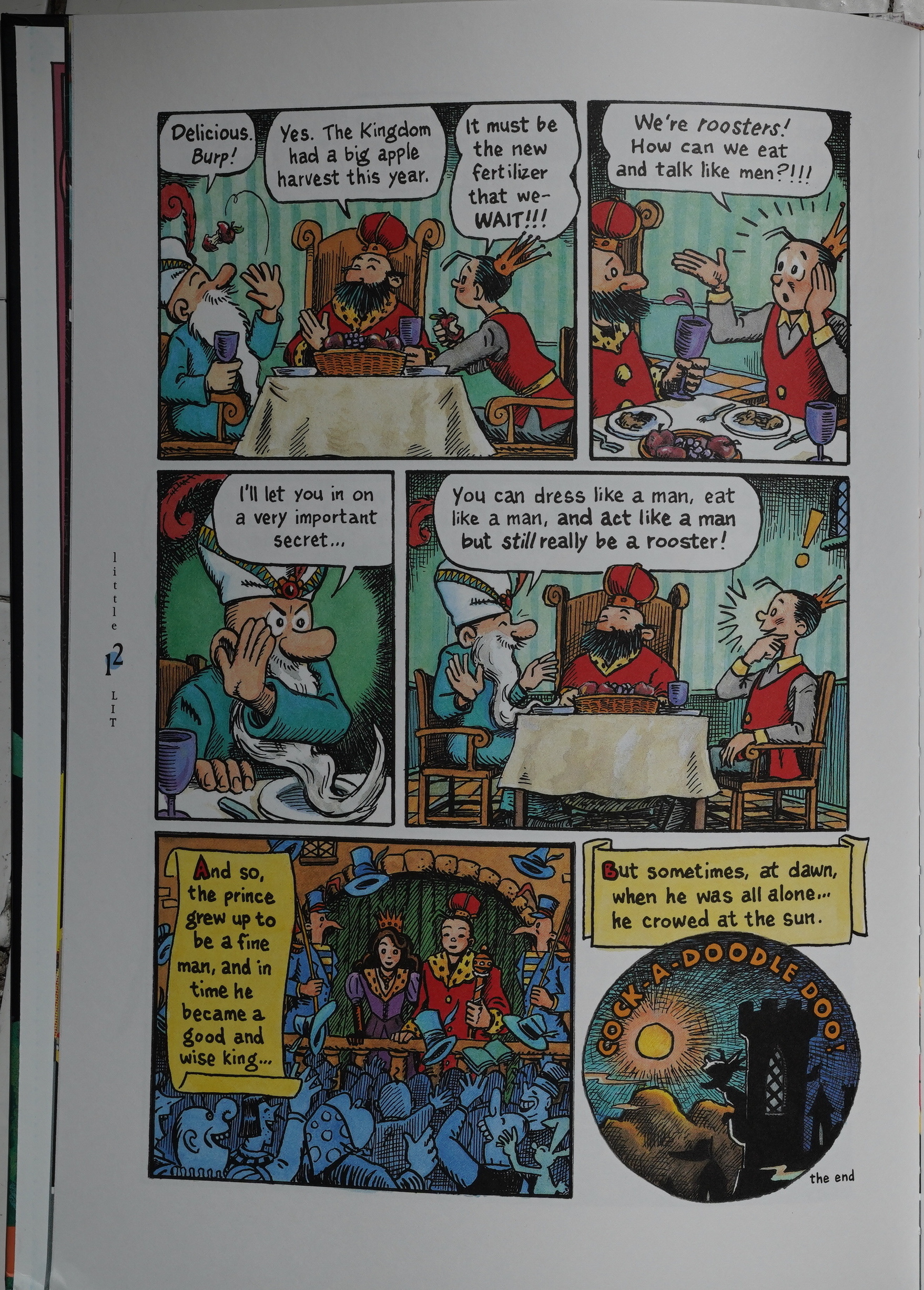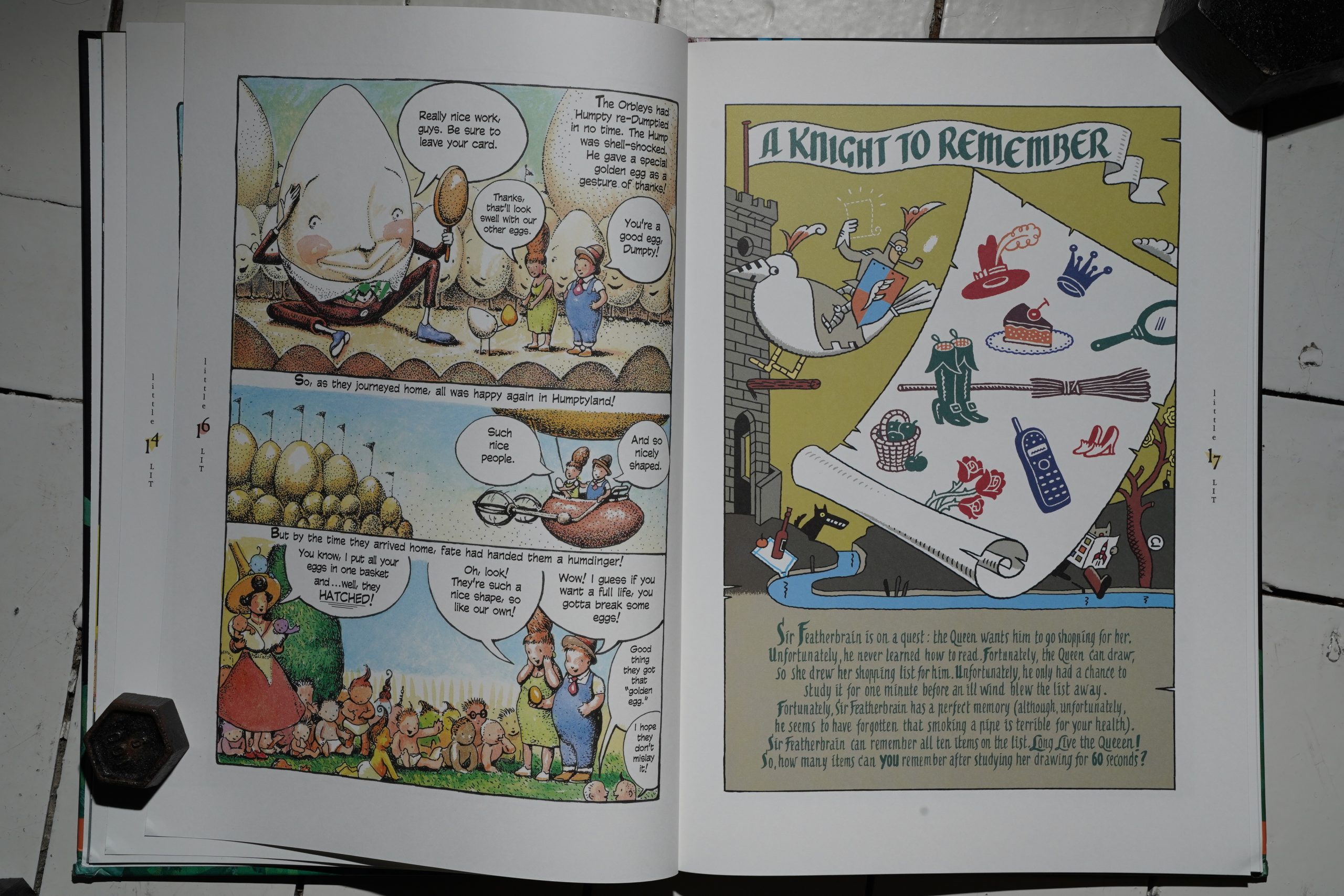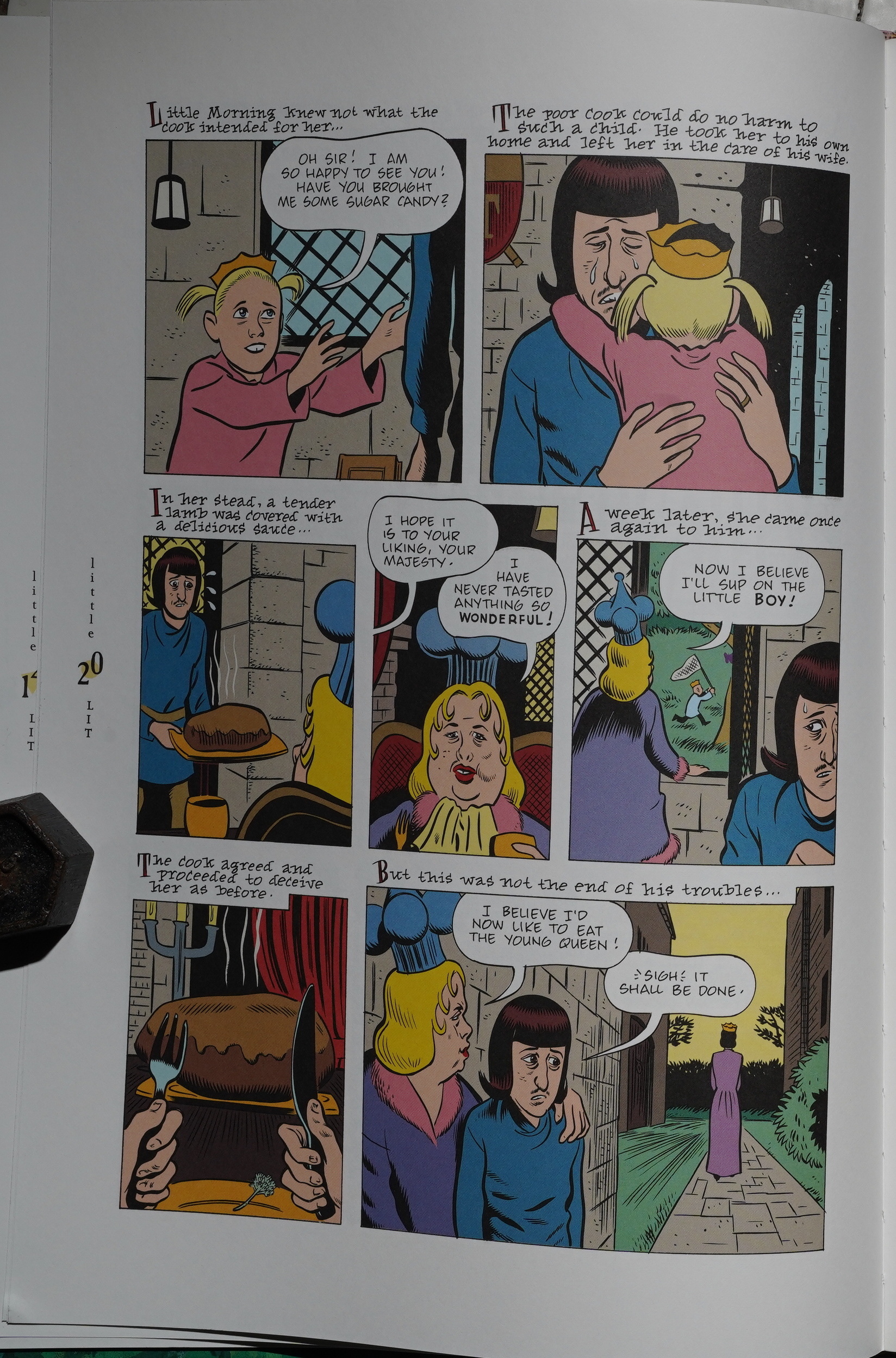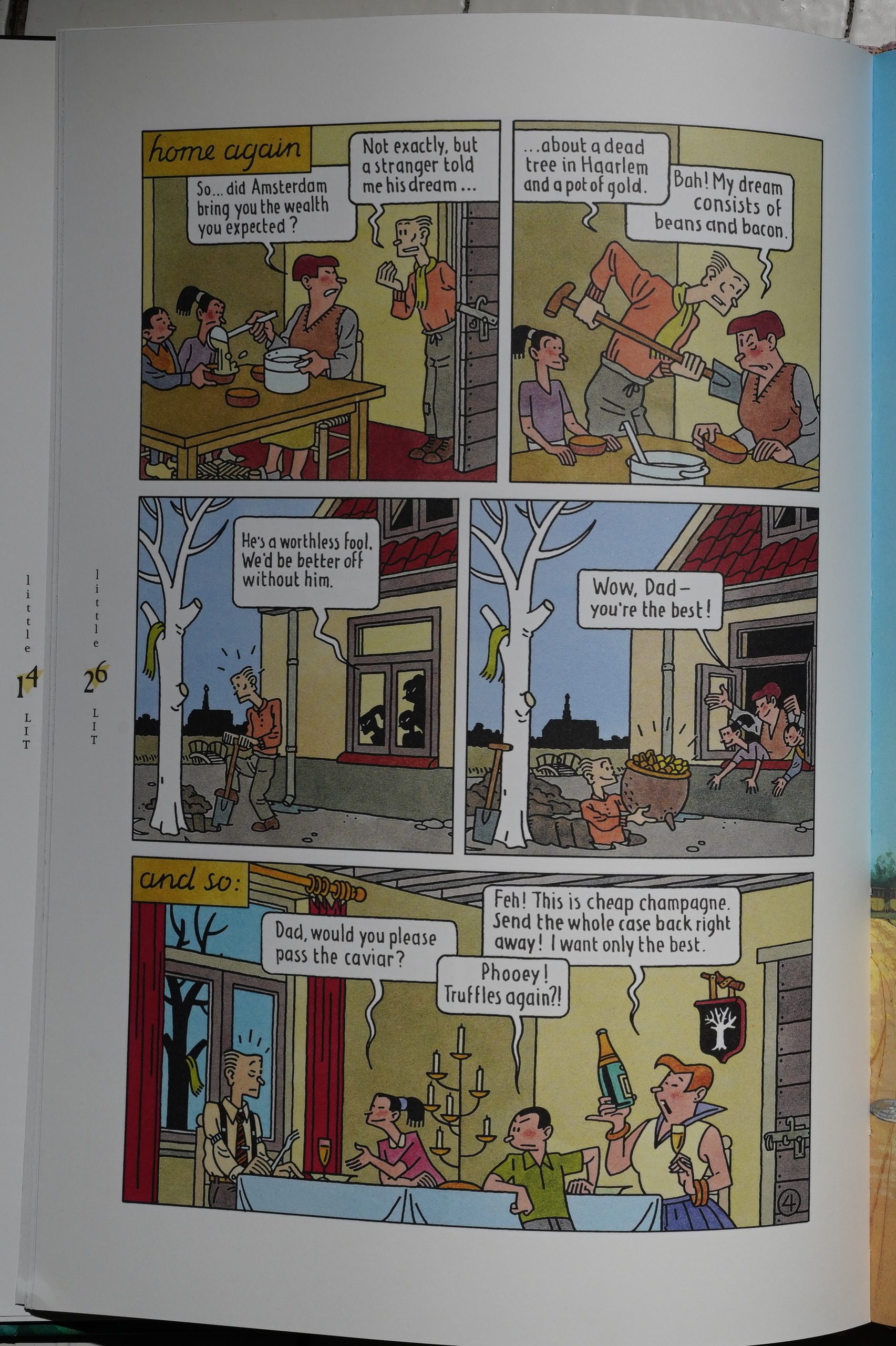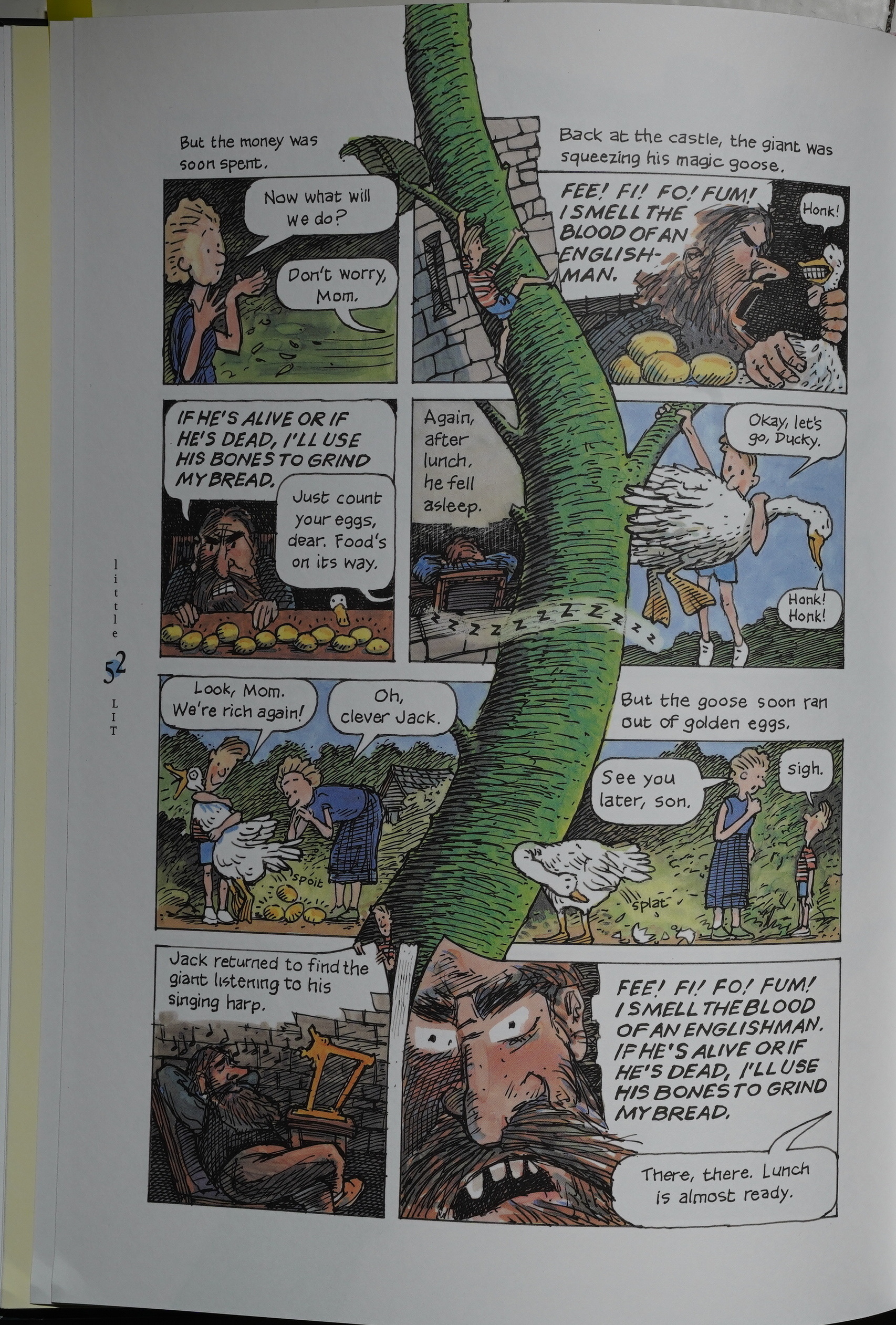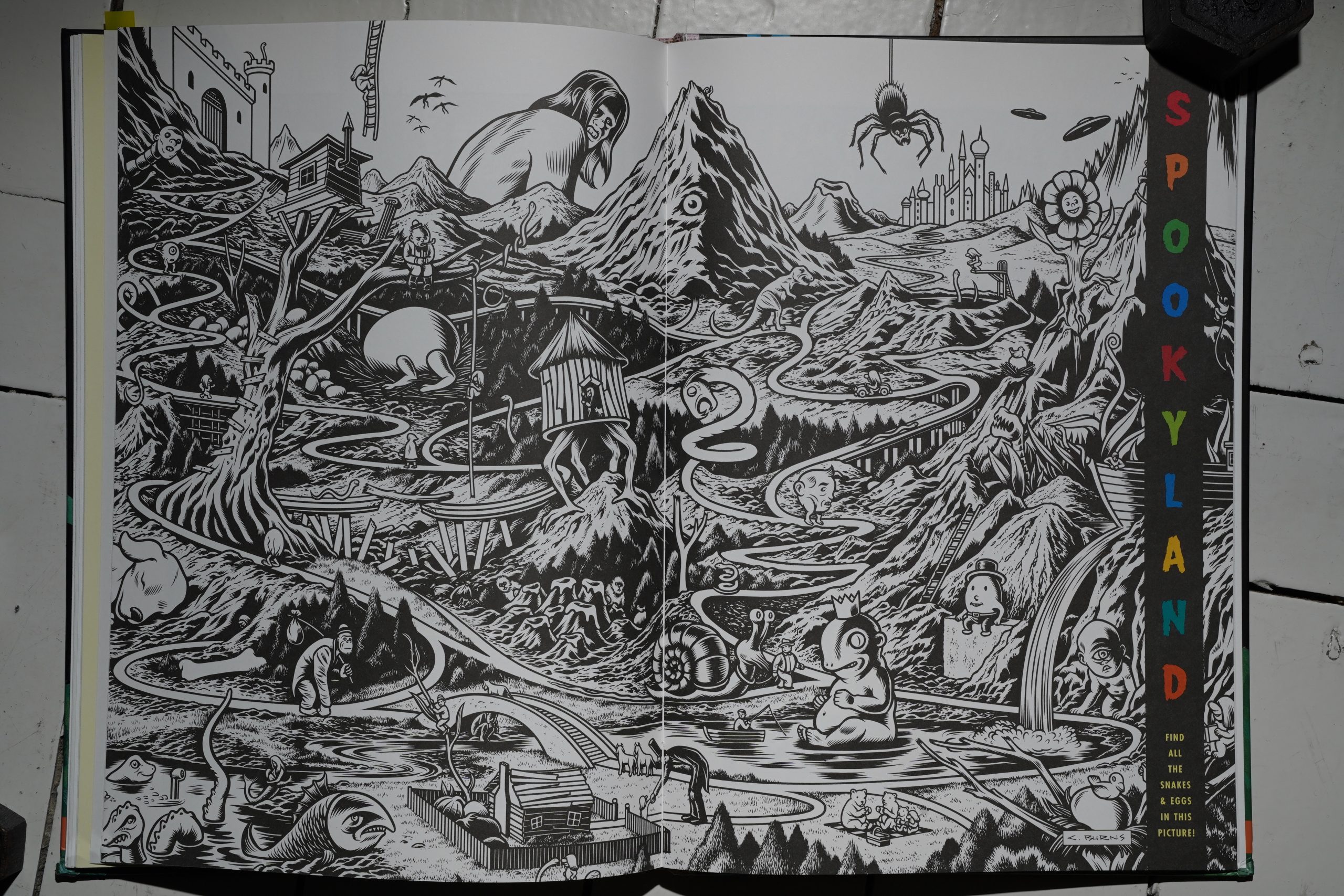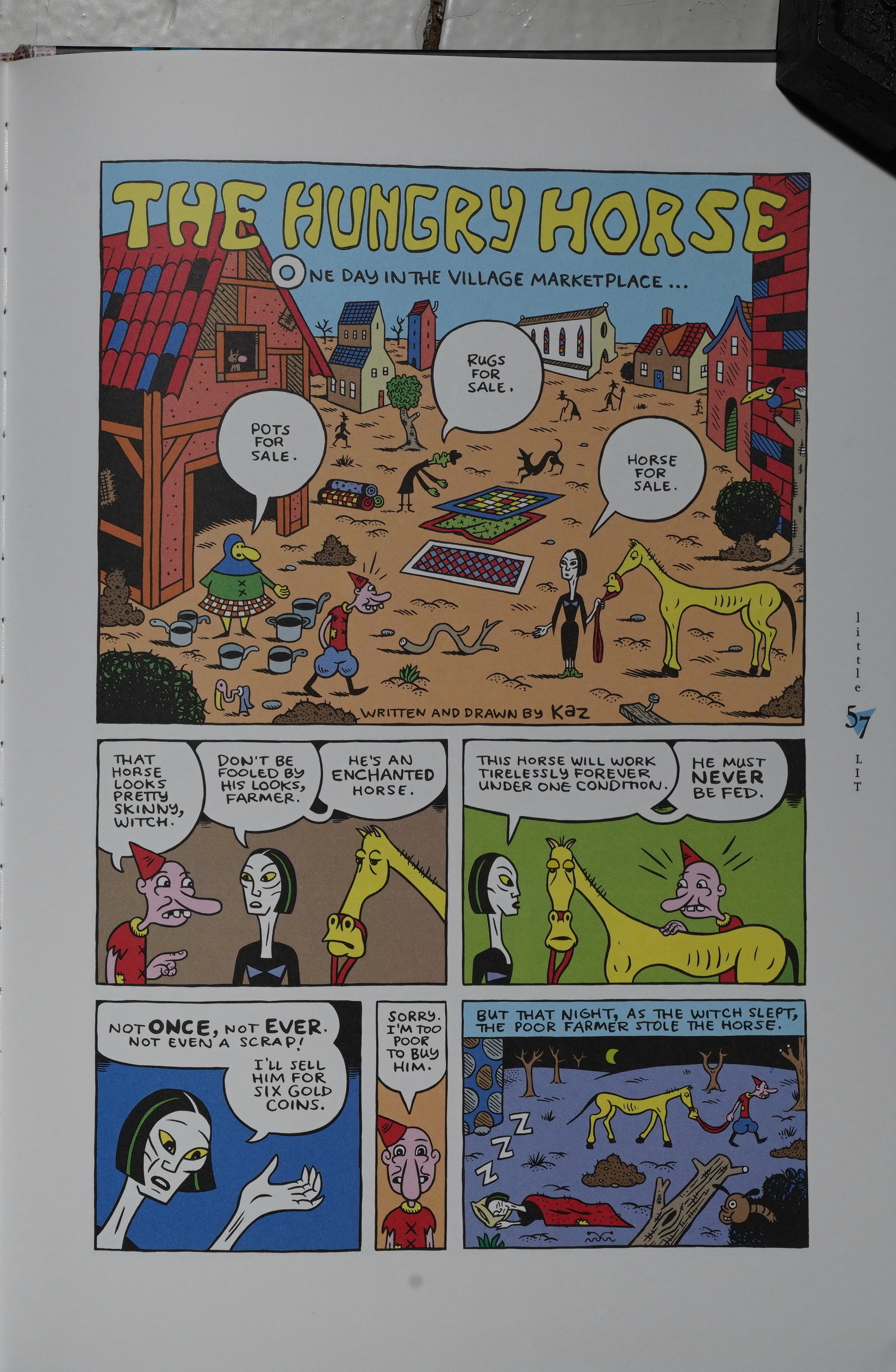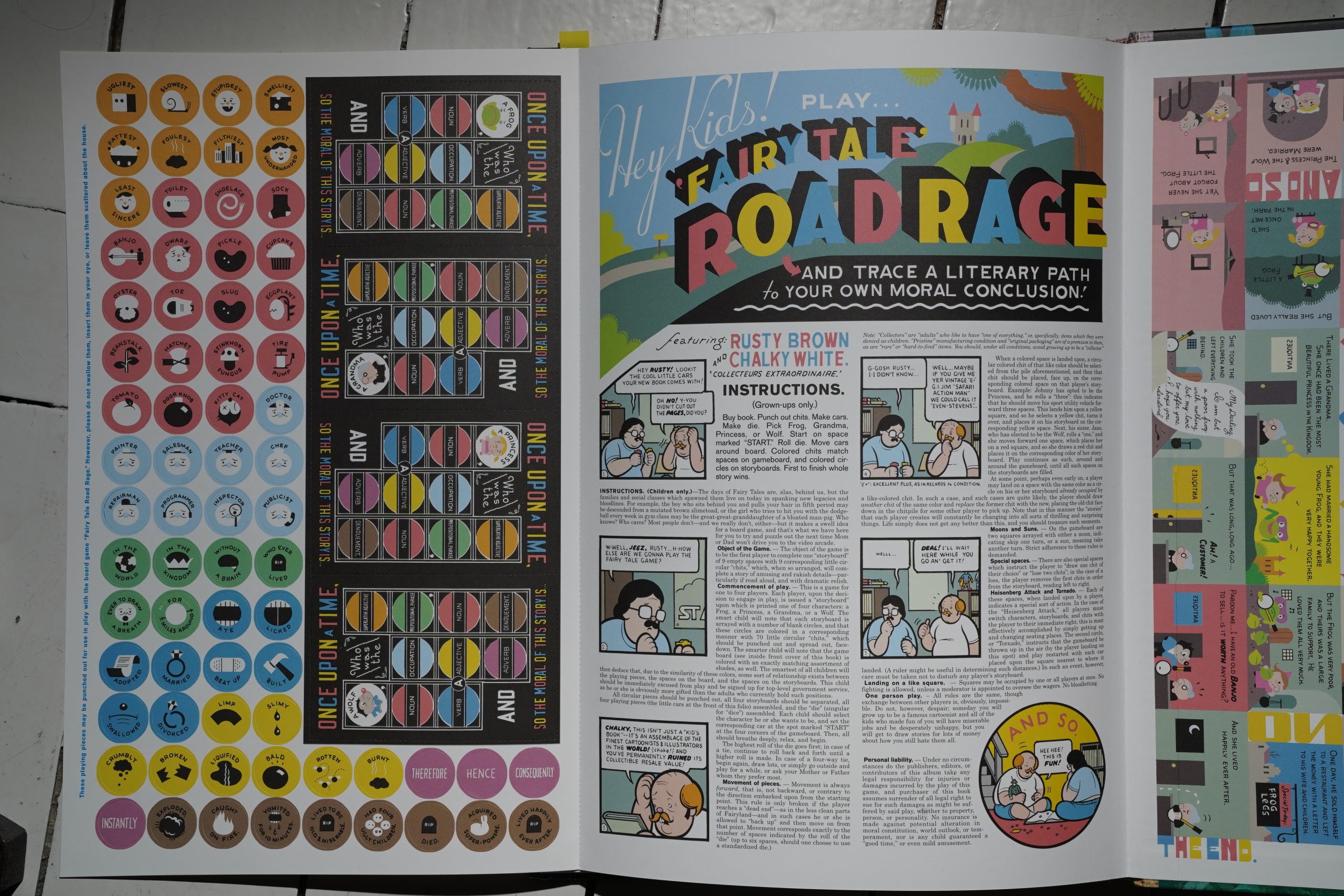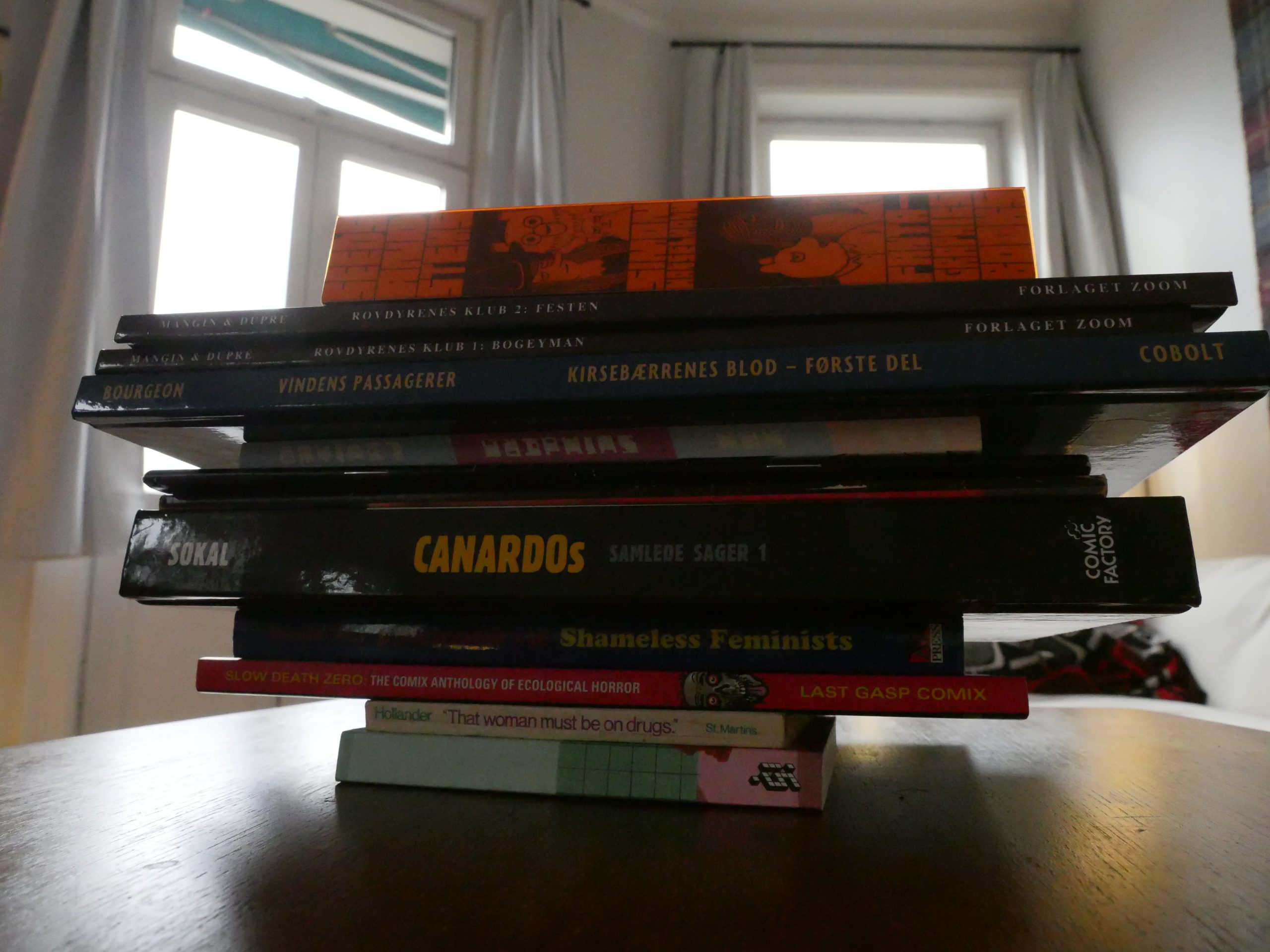
I wasn’t gonna do another comics reading marathon today, but I totally messed up my sleeping patterns.
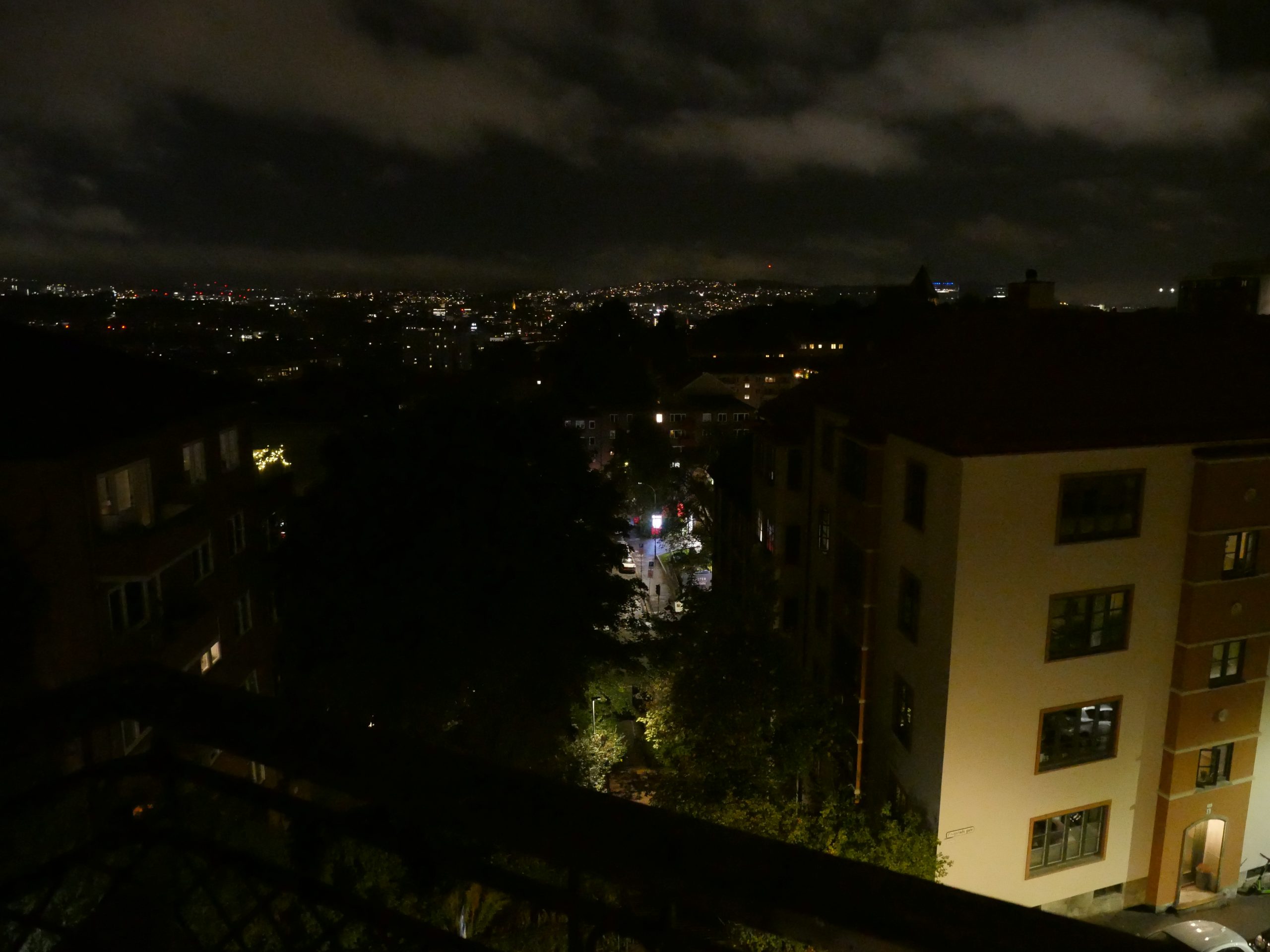
Look! It’s the middle of the night! This is no time to get up! So now I just wanna read comics and eat crisps until dawn.
Let’s get started.
| The Meters: Gettin’ Funkier All The Time (6): Be My Lady [New Directions] | 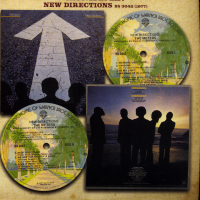 |

00:38: Š! #43 (Kuš)
The theme this issue is “scientific facts”, and we start off in the best way possible:
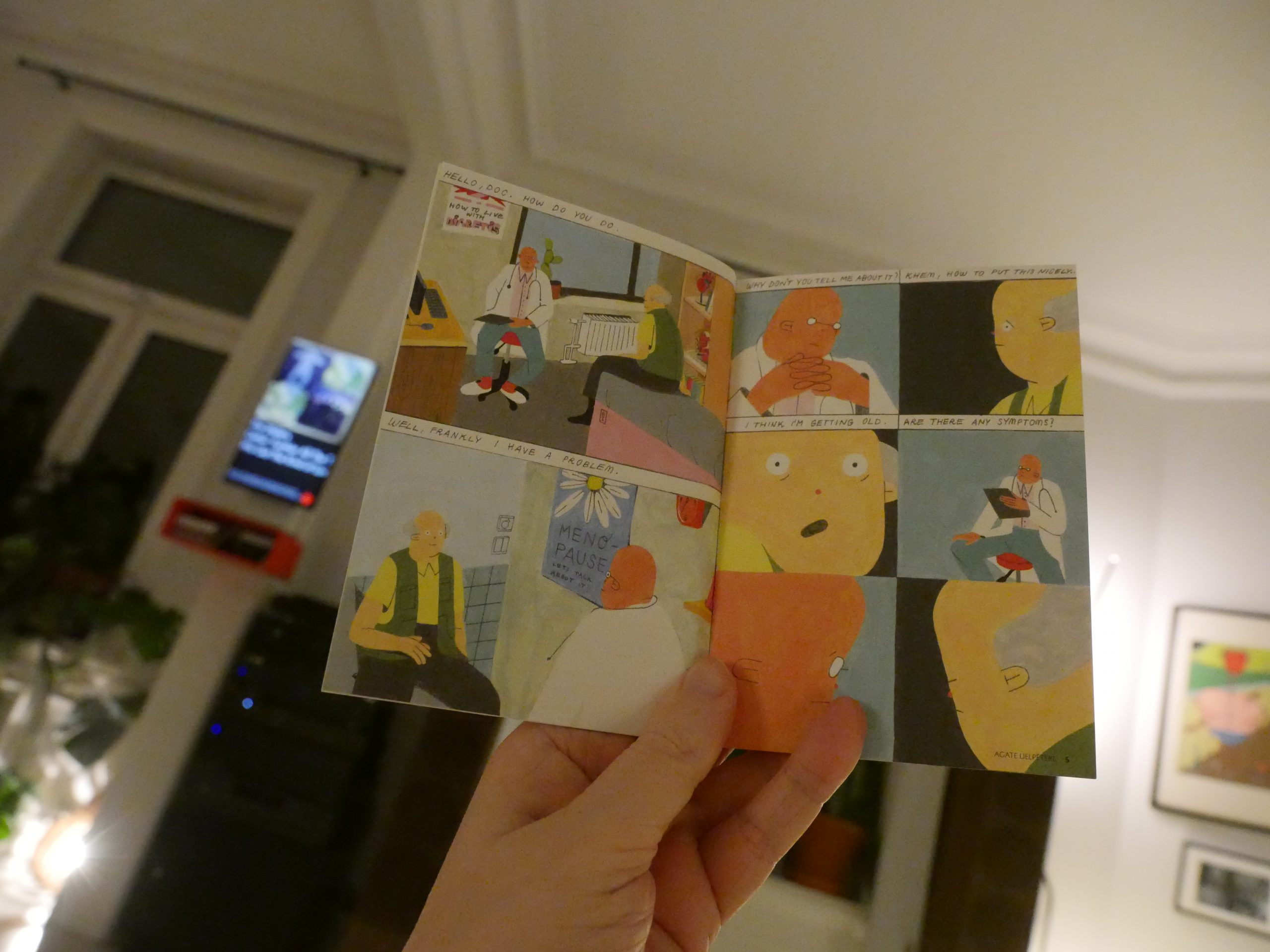
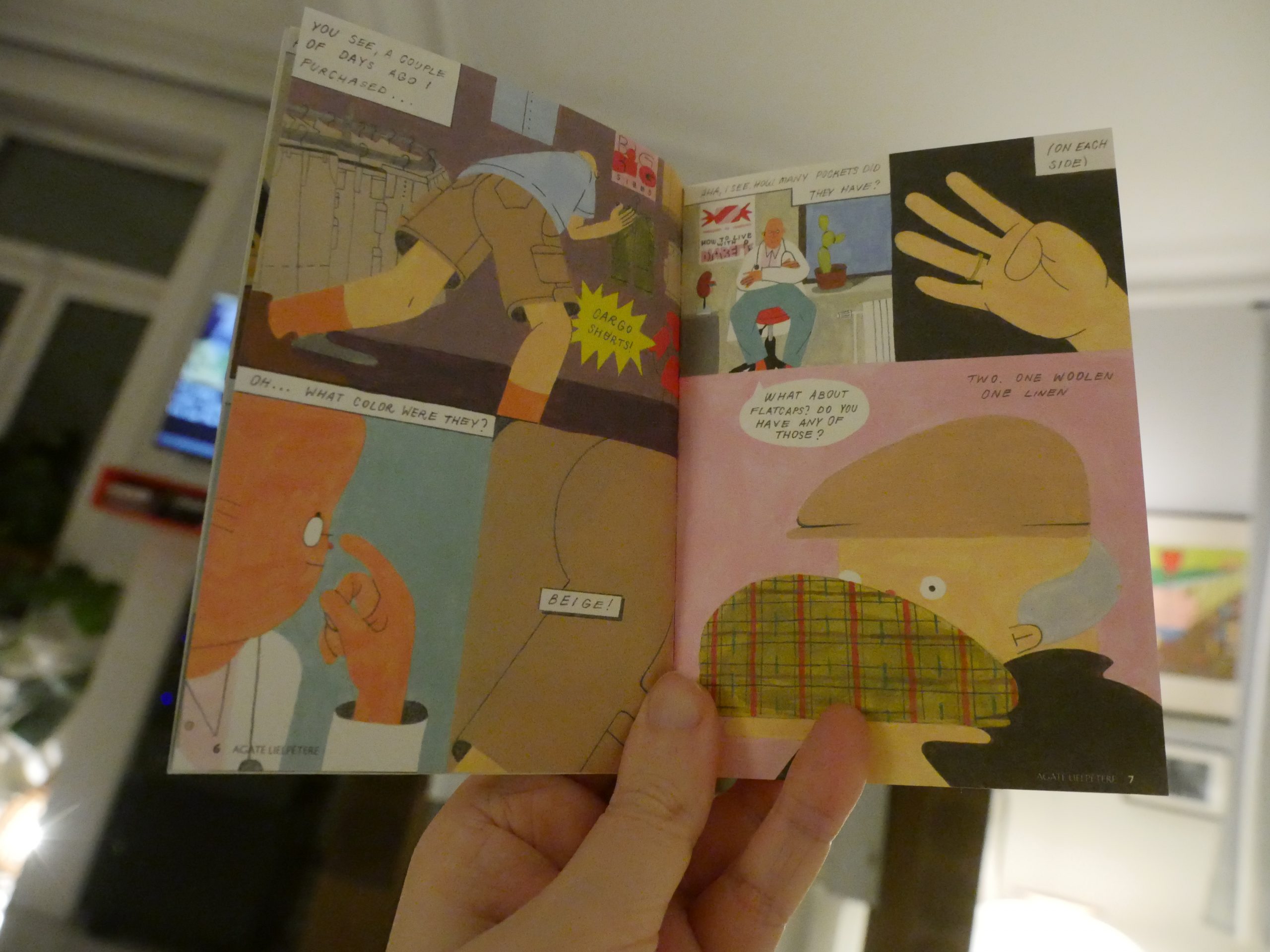
Not cargo shorts! Nooooo!
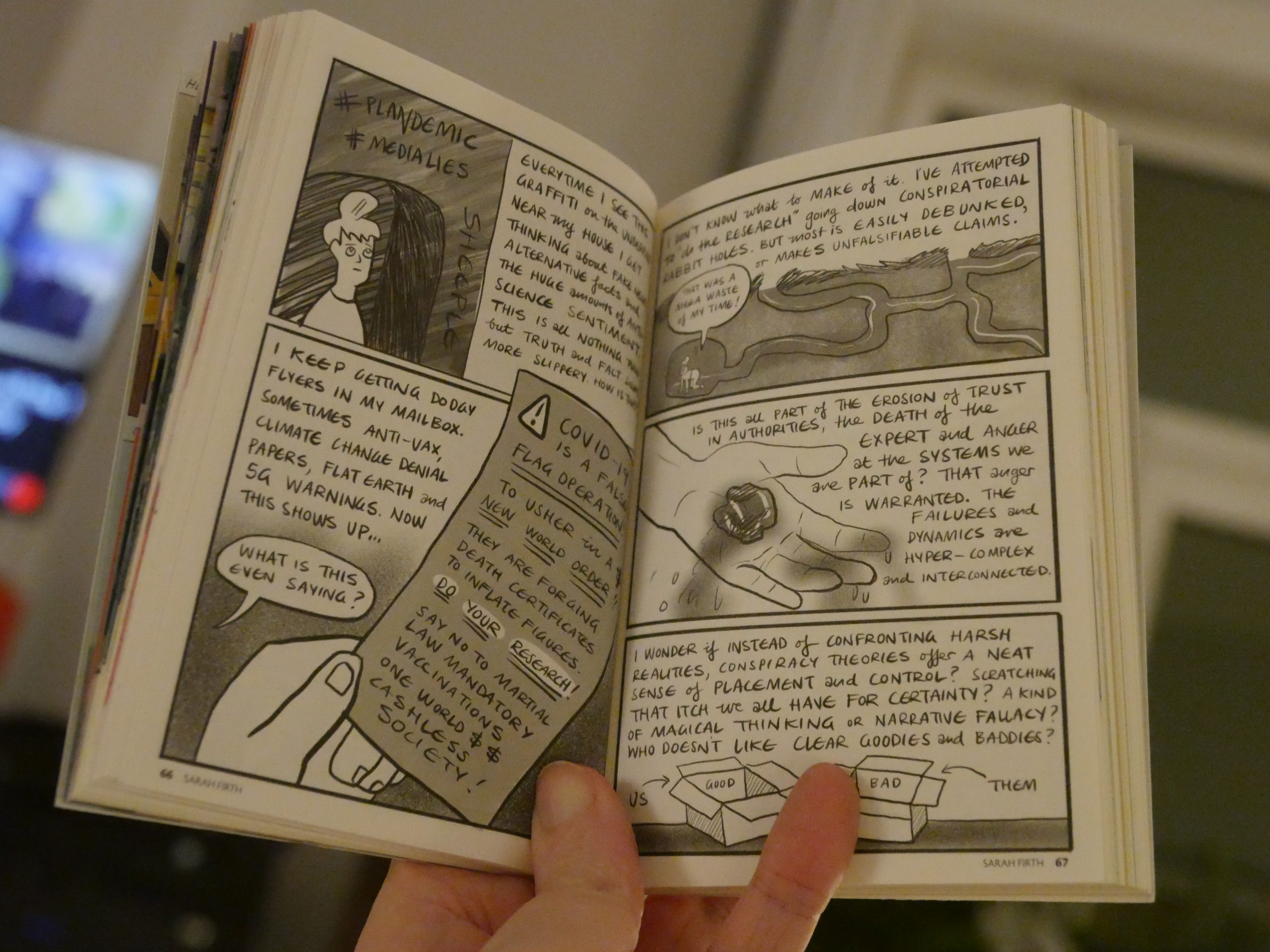
But most of these pieces are very, very chatty. I mean, they’re interesting, but…
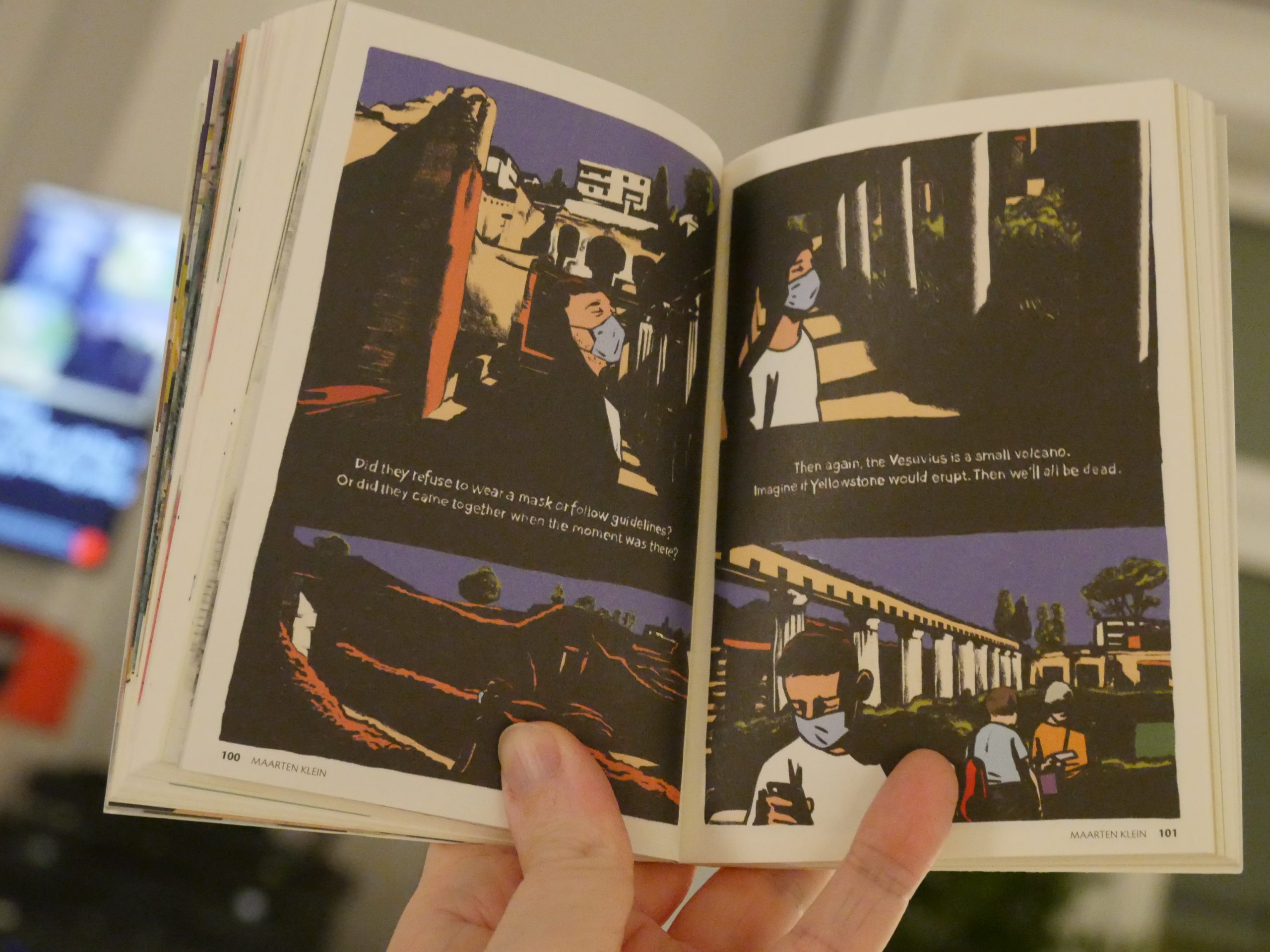
Some of the pieces go more ruminative.
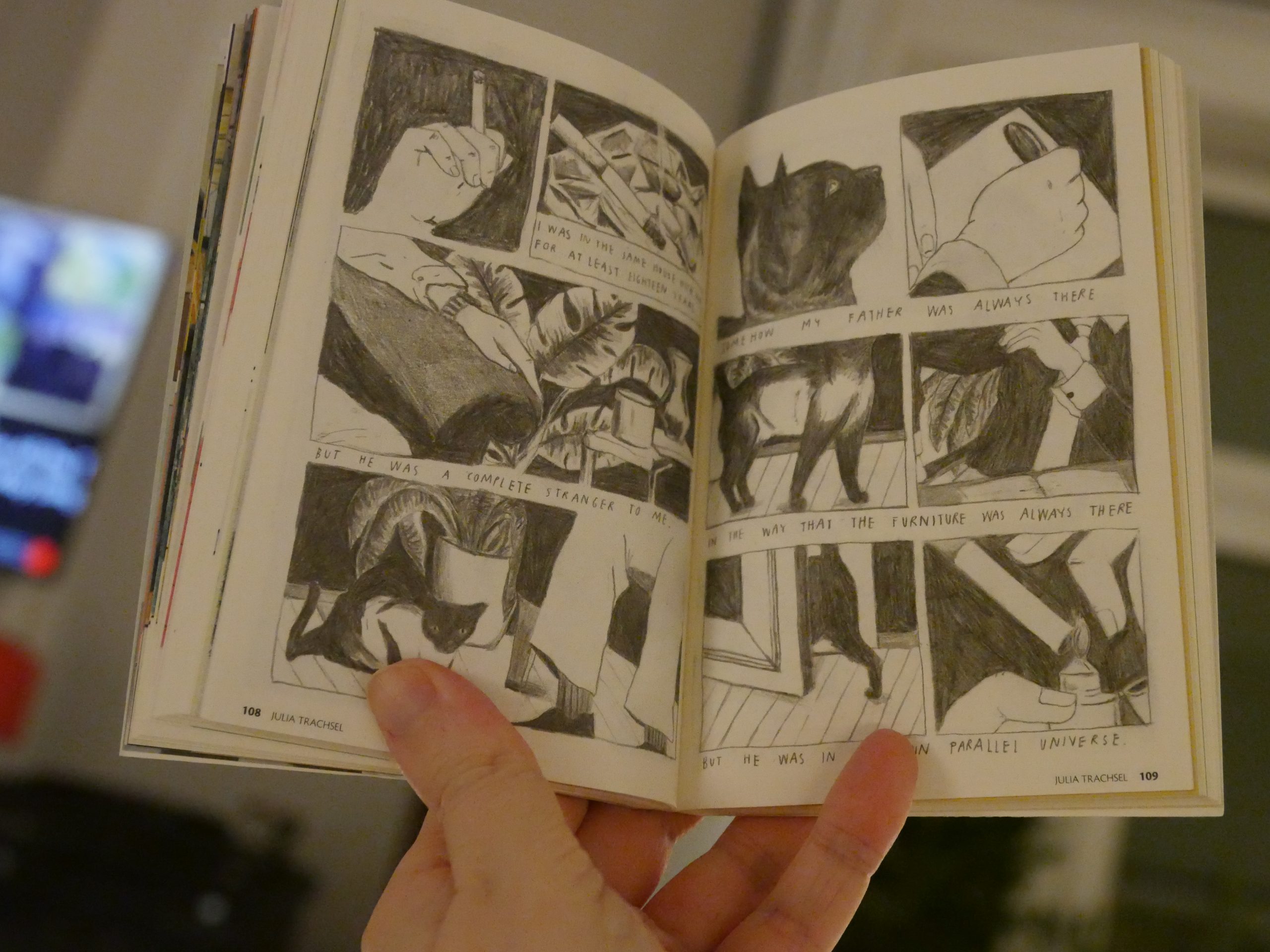
Lots of very pretty artwork.
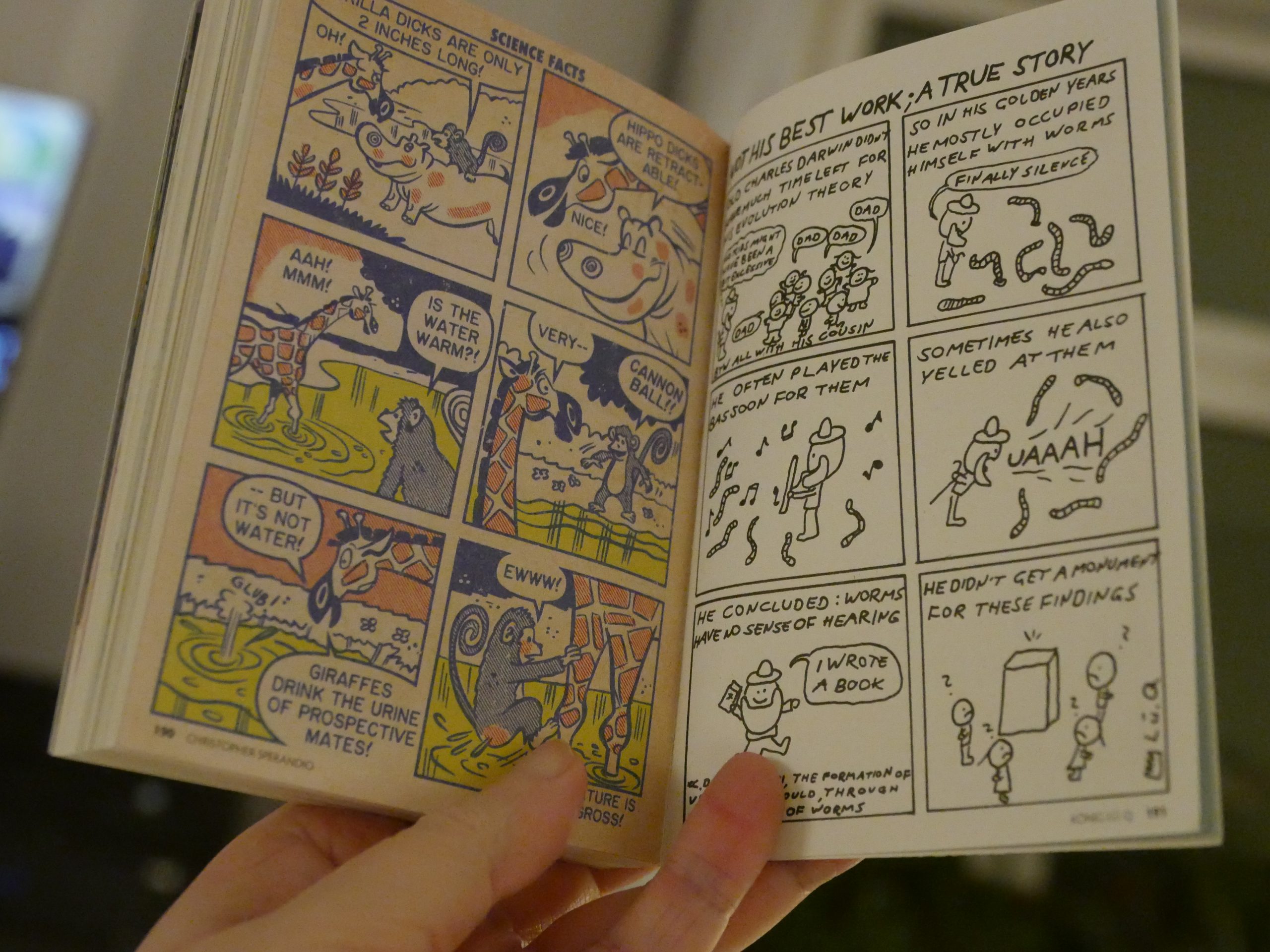
And some funny bits.
Well, it’s not the best Š! issue, but it’s pretty good.
| Various: Café Olé (1): Mixed By The Cube Guys |  |
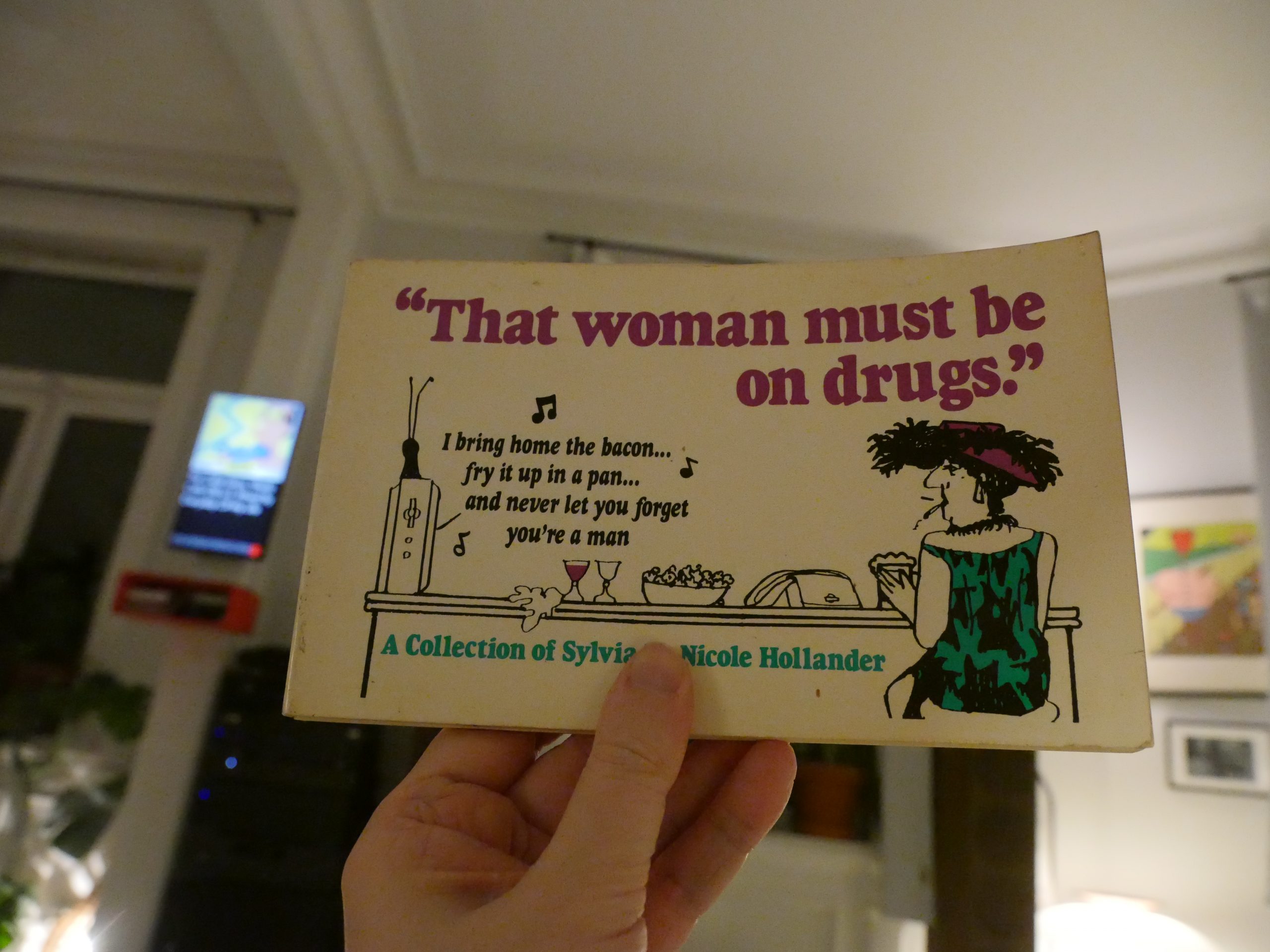
01:14: “That Woman Must Be On Drugs” by Nicole Hollander (St. Martin’s)
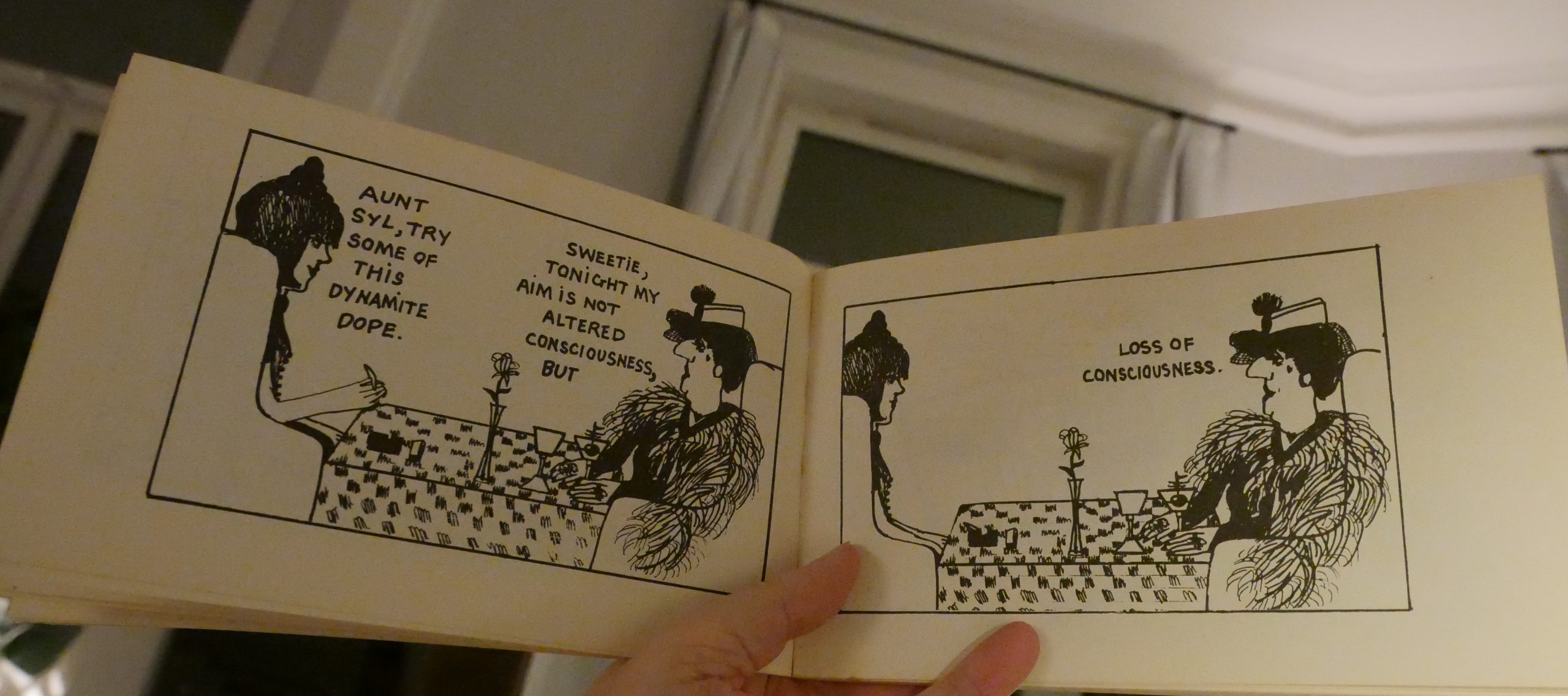
This is a very early Sylvia collection — from 1981.
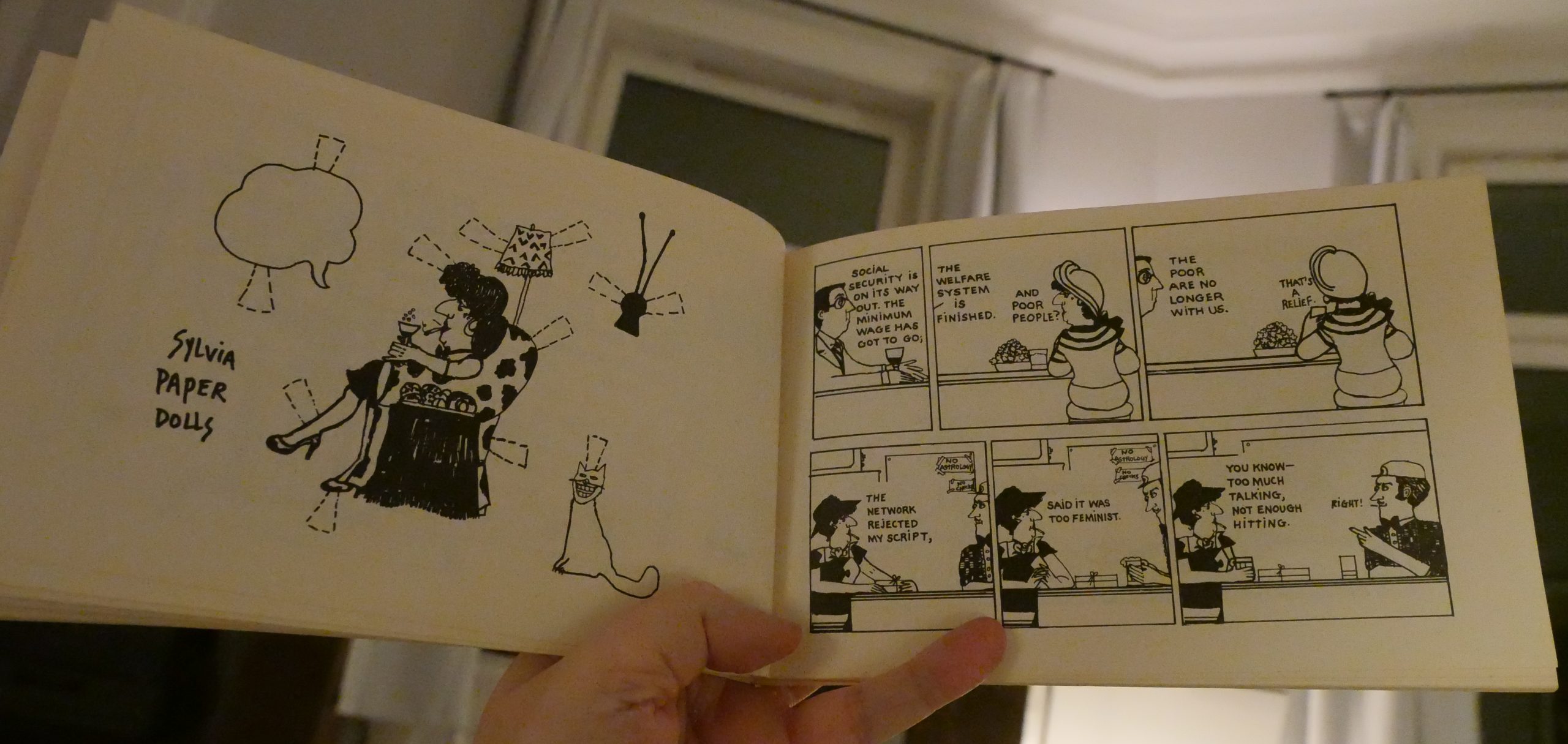
It’s fun, but I think Hollander got even funnier later? She’s got the rhythm down already, but she gets sharper later in the 80s.
| Various: Café Olé (1): Mixed By The Cube Guys |  |
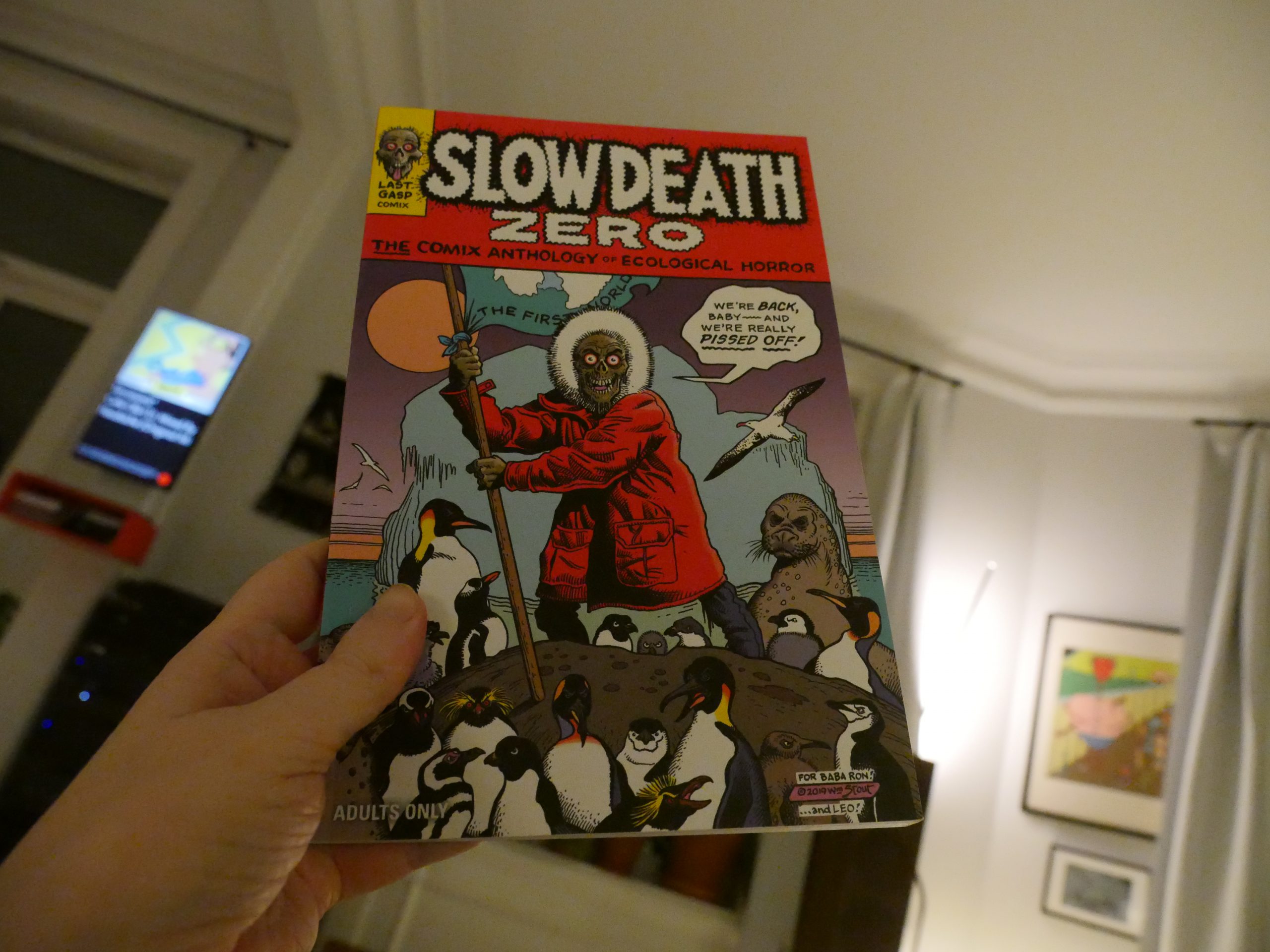
01:39: Skiw Death Zero by Jon B. Cooke & Ronald E. Turner (Last Gasp)
Slow Death #1 was the first thing Last Gasp published, so to celebrate the 50th anniversary, the anthology returns as this handsome squarebound book.
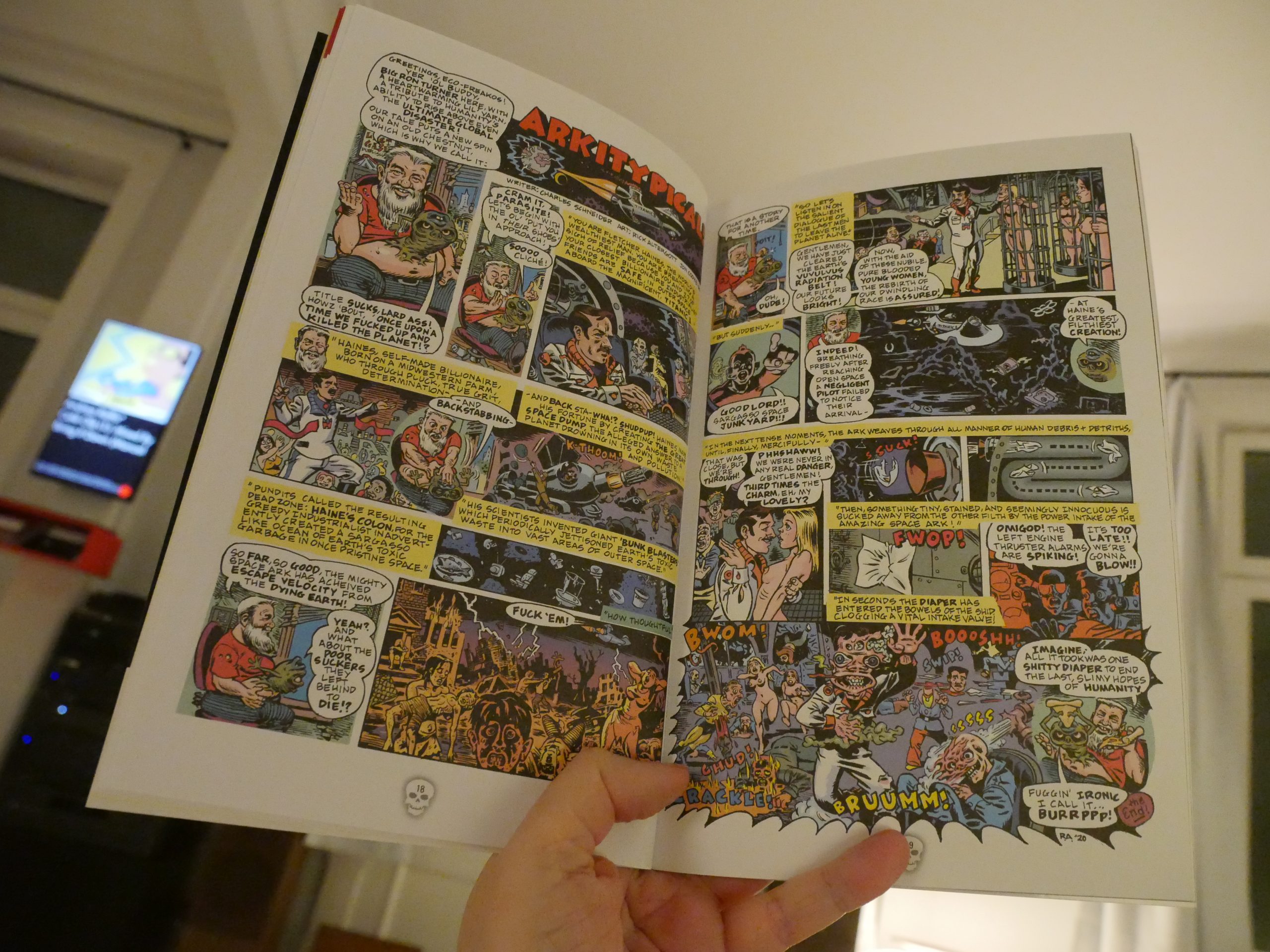
These are not reprints — it’s all new comics. (Charles Schneider and Rick Altergott.)
As expected, most of the bits here are really… er… verbose. In the oldee tymey underground comix way.
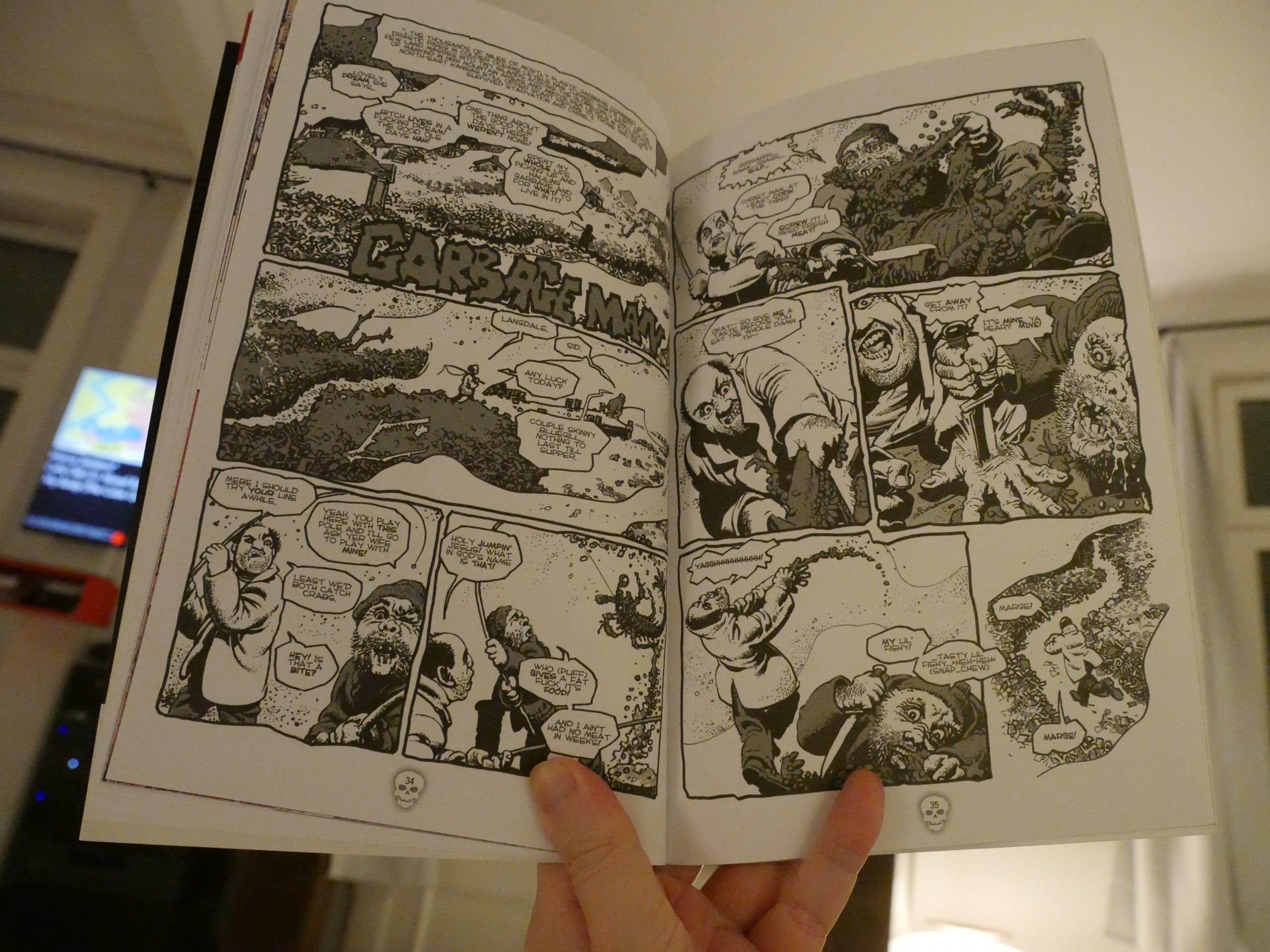
It’s a nice mix of older and newer talent — here’s Richard Corben (!) and Bruce Jones (!!).
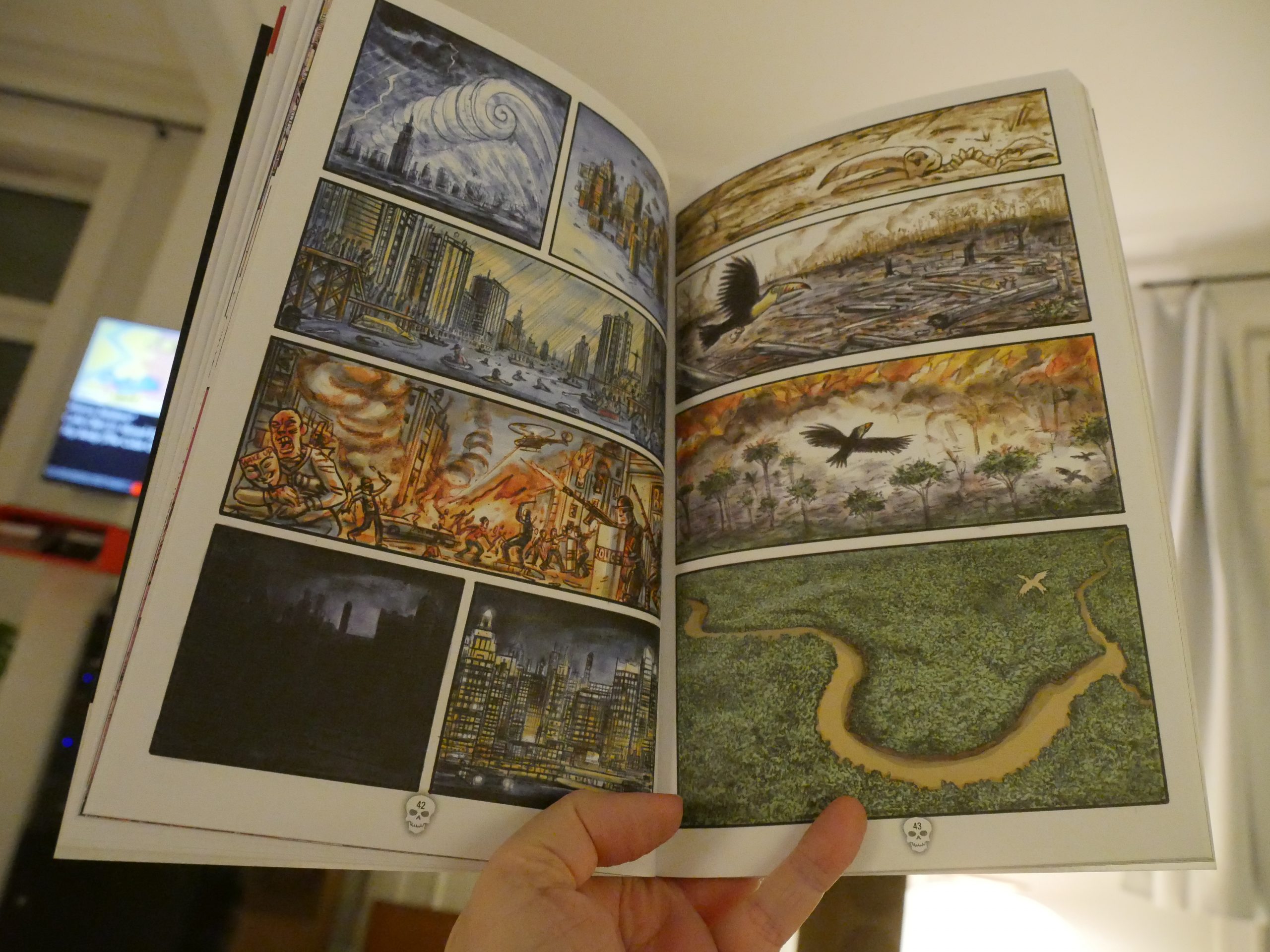
Peter Kuper does a fun (well…) thing that has to be read backwards, but you only discover that when you reach the end.
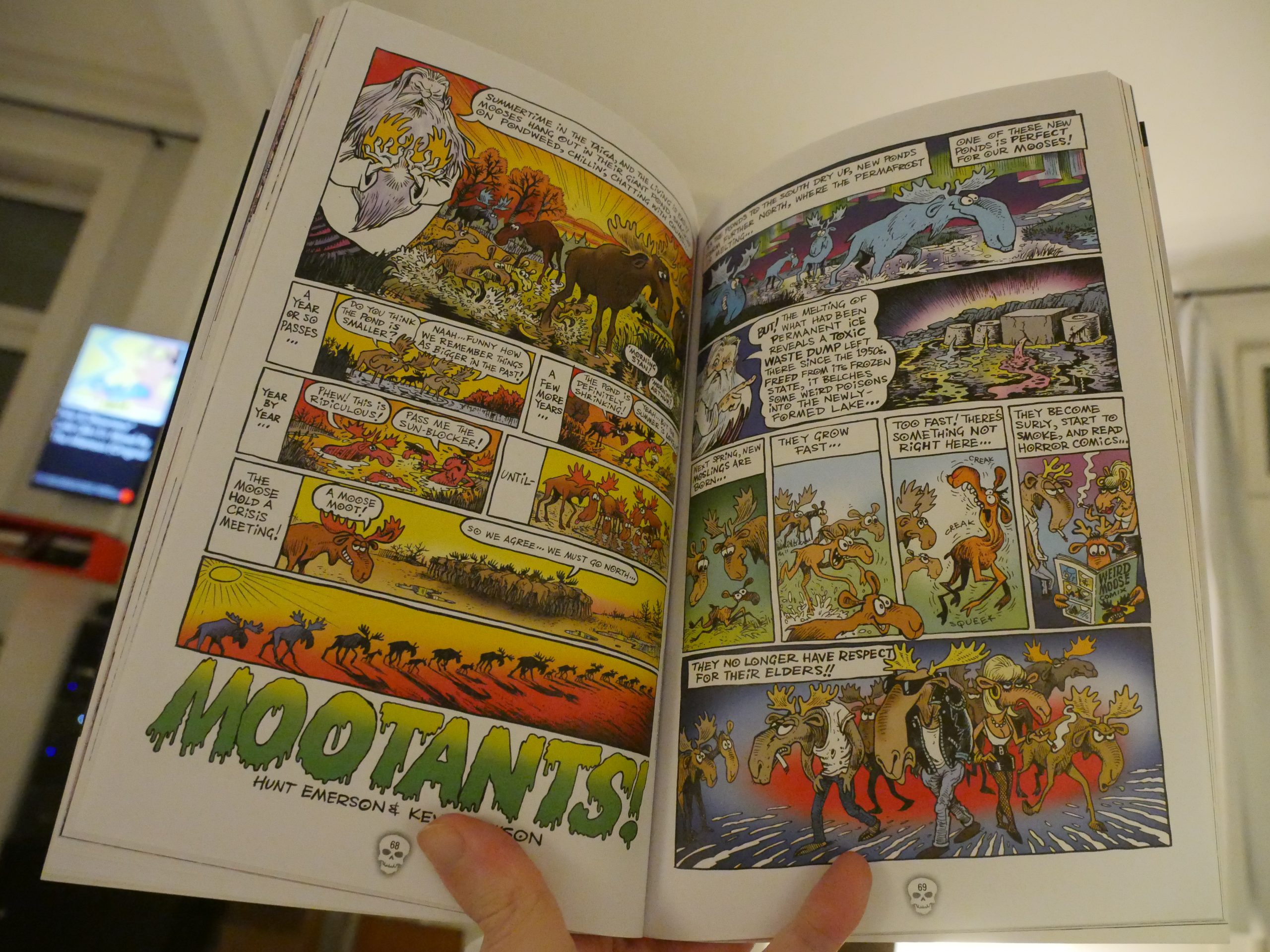
Most of these pieces are pretty depressing, but Hunt Emerson brings the fun.
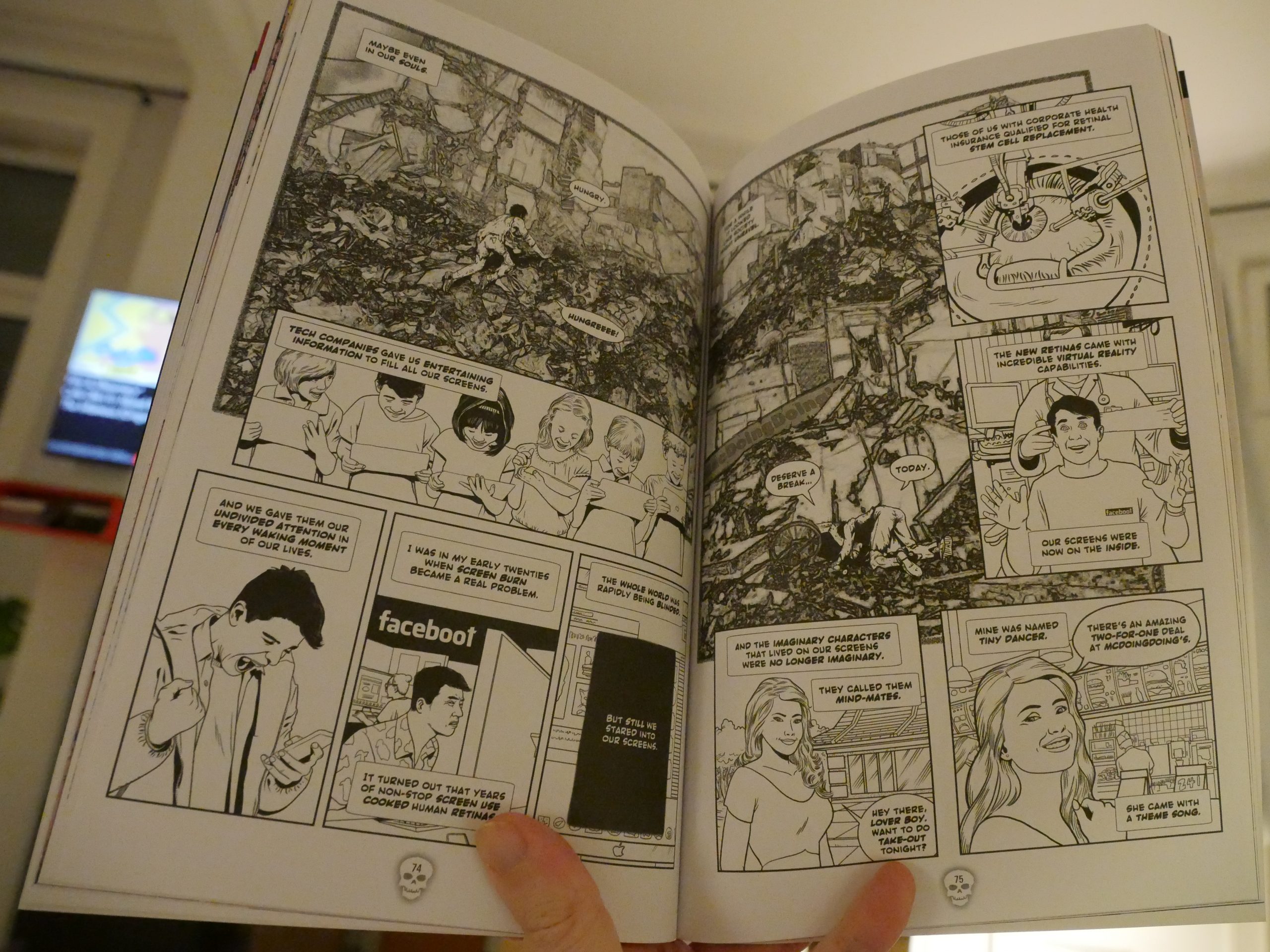
Rick Veitch has switched up his art style, eh?
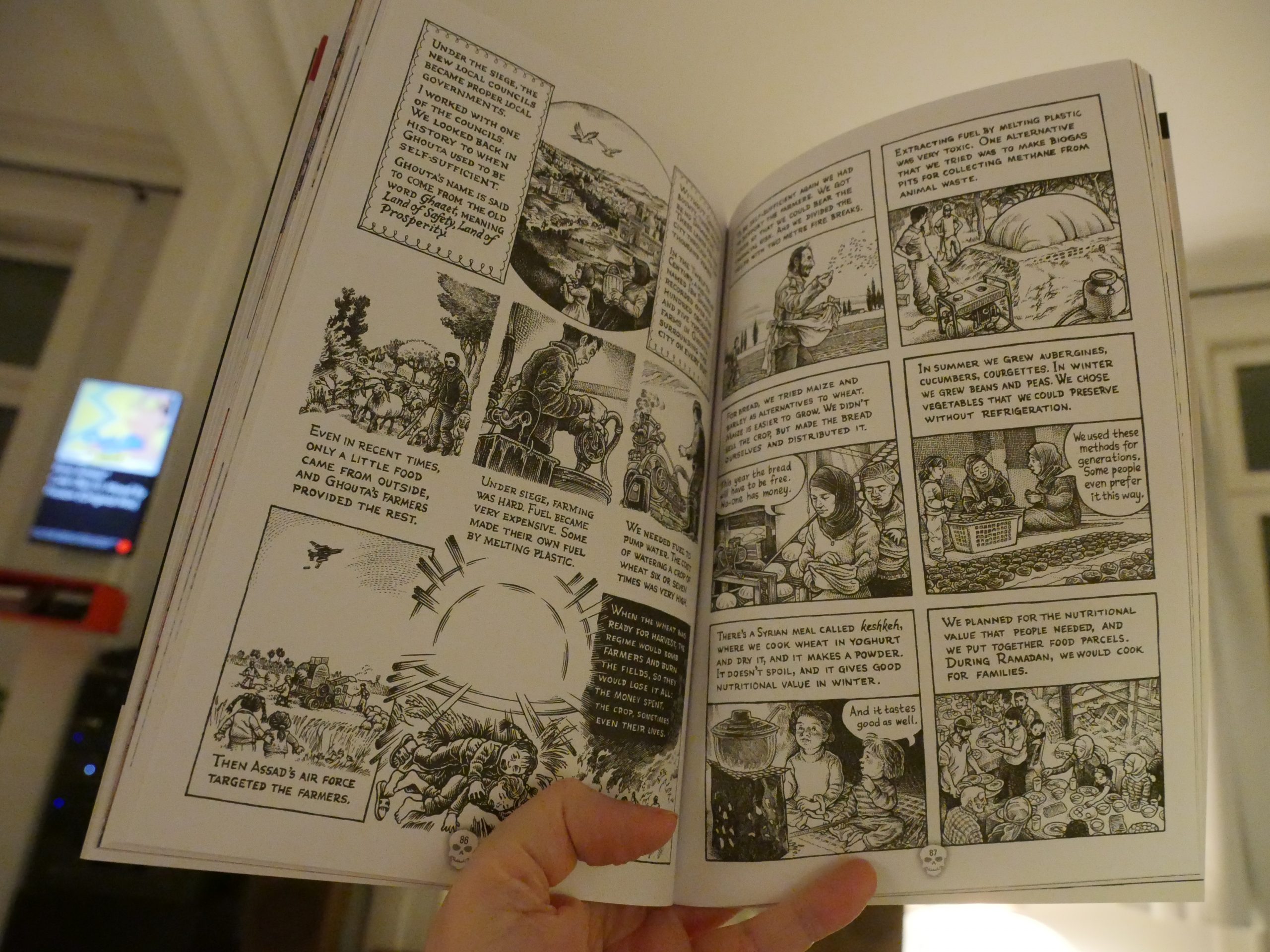
One piece here sticks out like a sore thumb: The rest of the stories are basically eco horror/fantasy things, but M. Yafa and Kellie Ström do a story about Assad’s Syria, and it’s got more emotional heft than the rest of the stories put together.
It’s a good anthology.
| Various: The Recommended Sampler 1982 (1) |  |
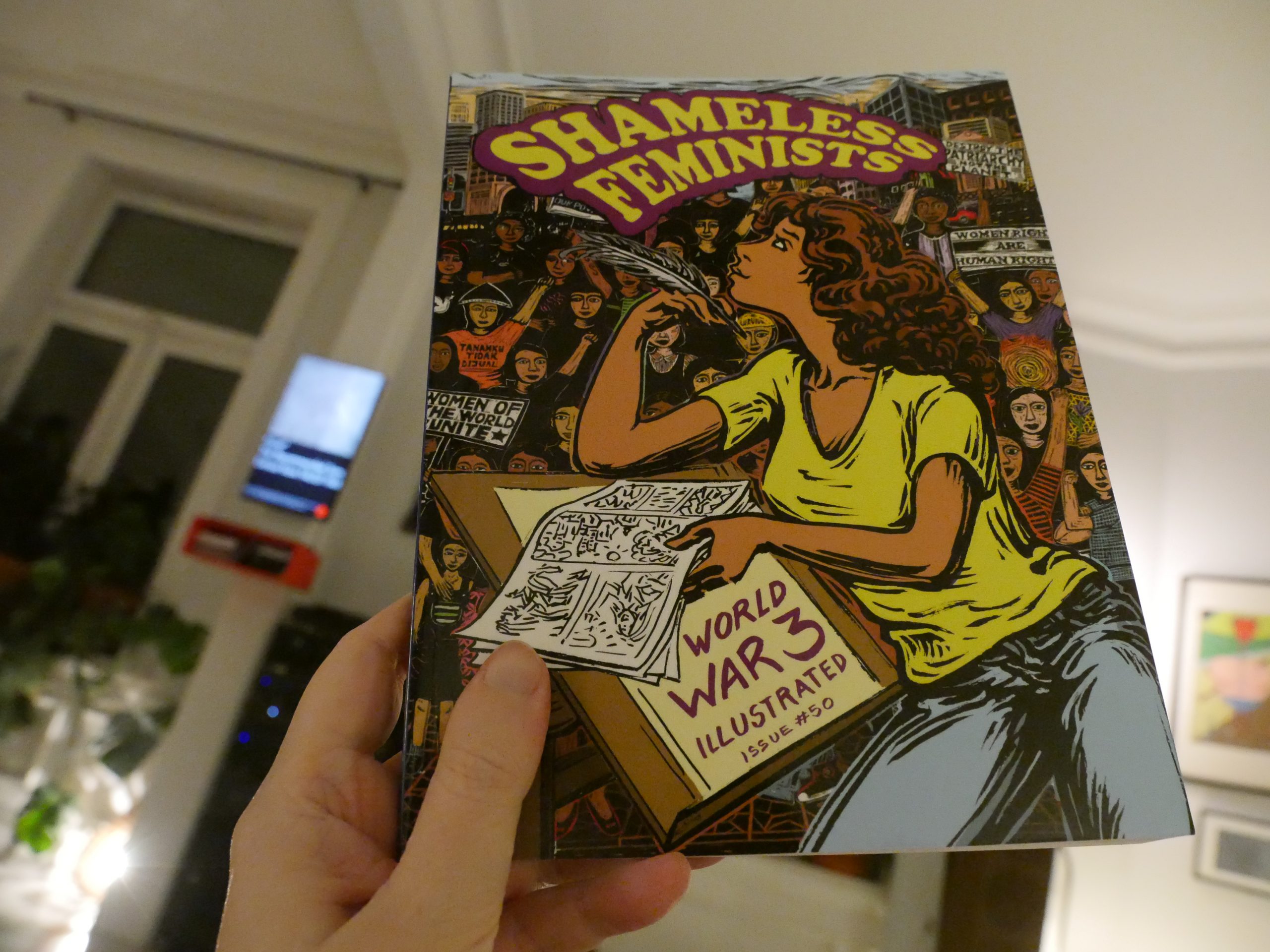
02:40: World War 3 Illustrated #50: Shamless Feminists (AK Press)
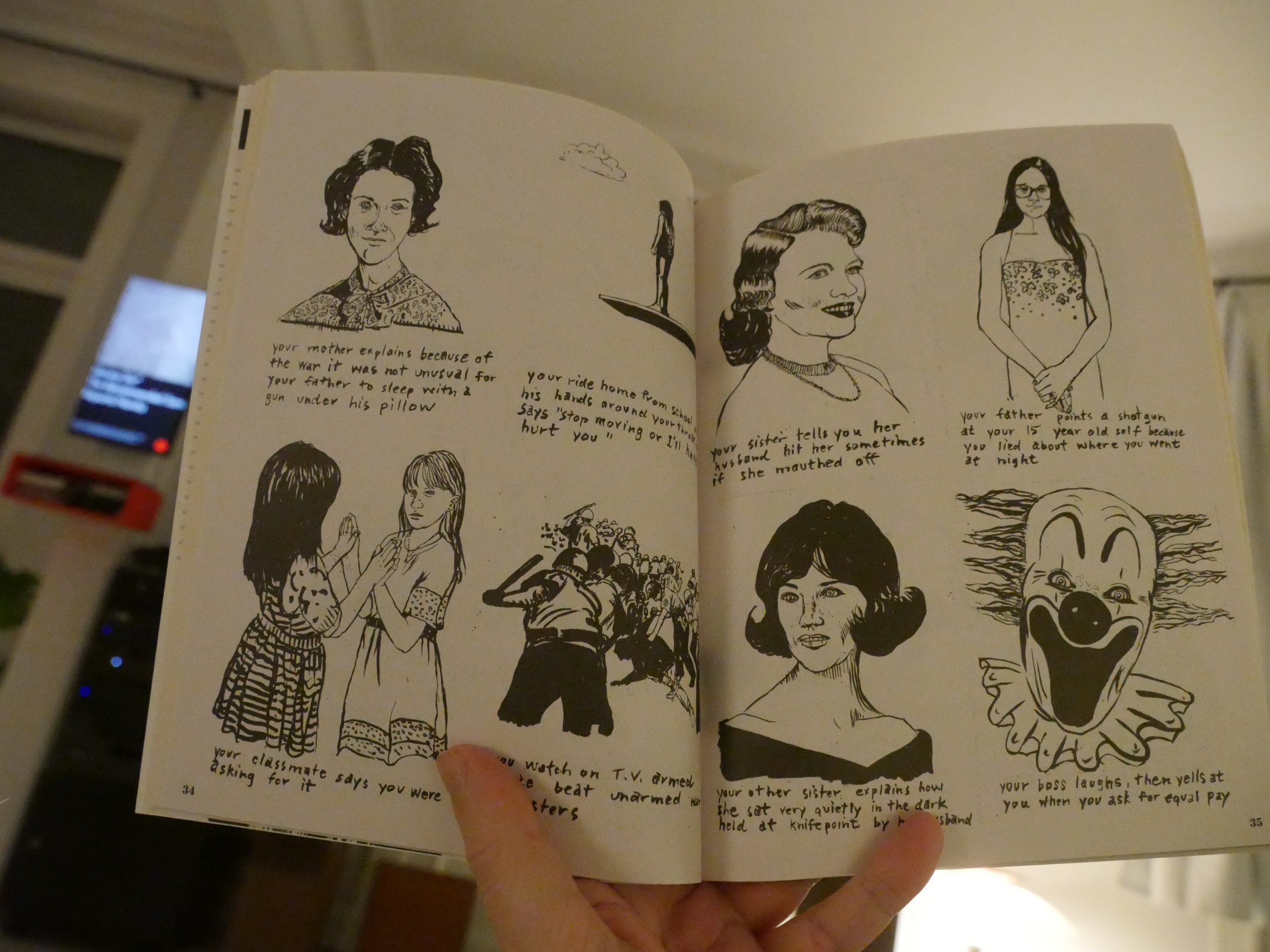
There’s a wide variety of approaches here, but things are definitely more accomplished than back in the early days of WW3. (Susan Willmarth.)
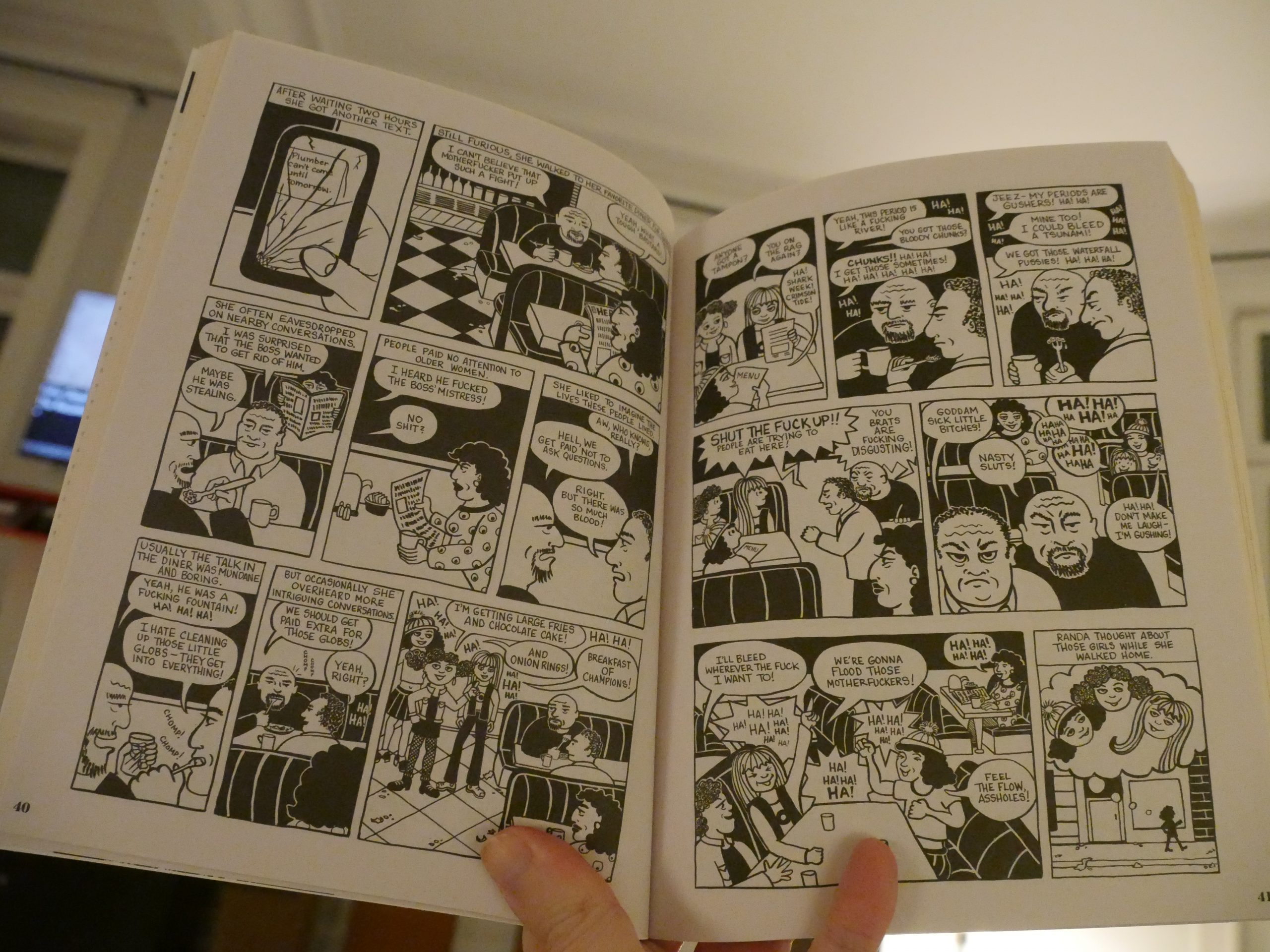
Lots of new people, but also people who’ve been doing comics for quite a while. It’s always fun to read a new Jennifer Camper story. (And this one was quite amusing indeed. And kinda wistful.)
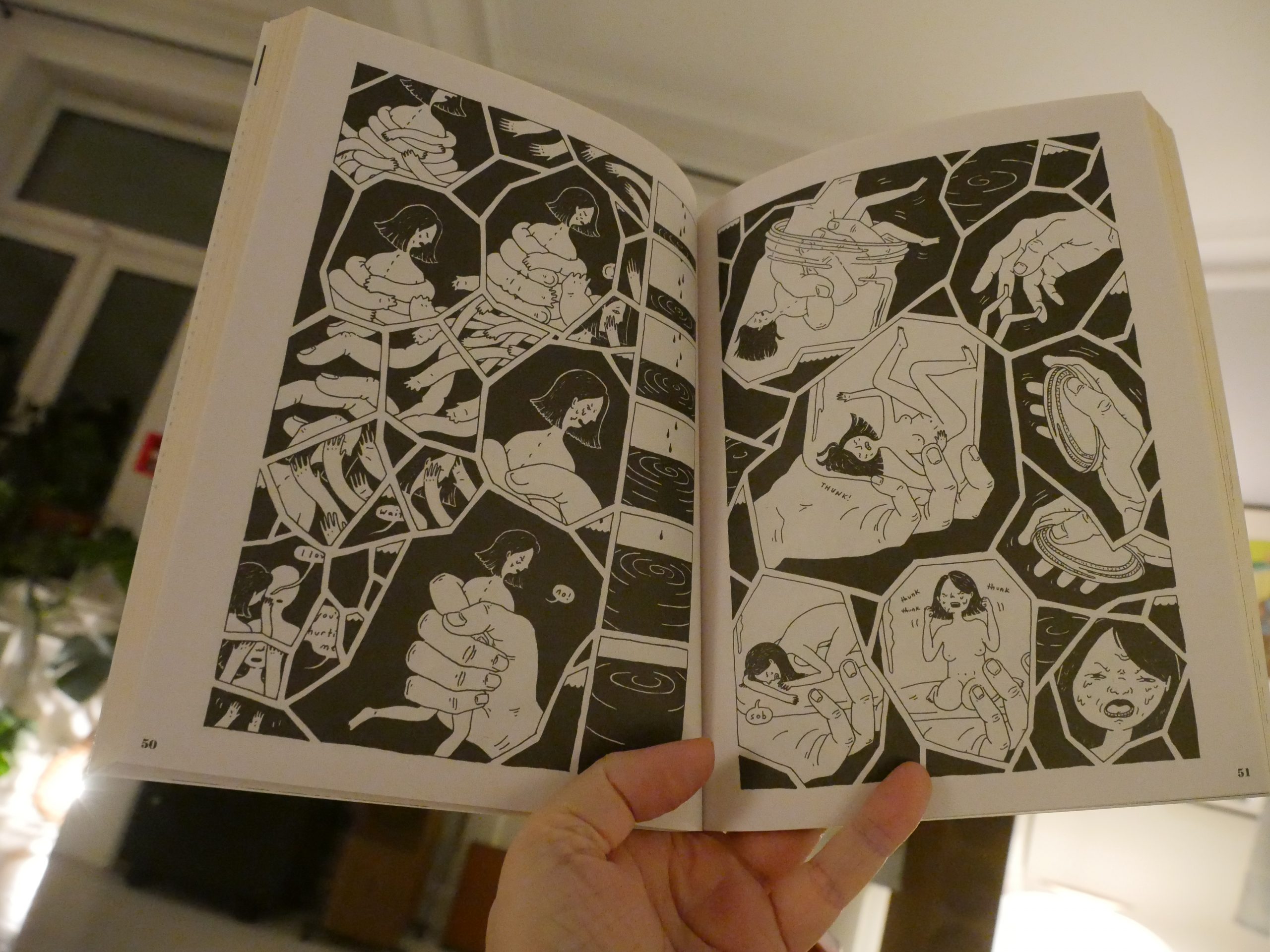
I guess most of the pieces are pretty traditional (storytelling wise), but this piece by Seong Eun MacFarlane was pretty intriguing.
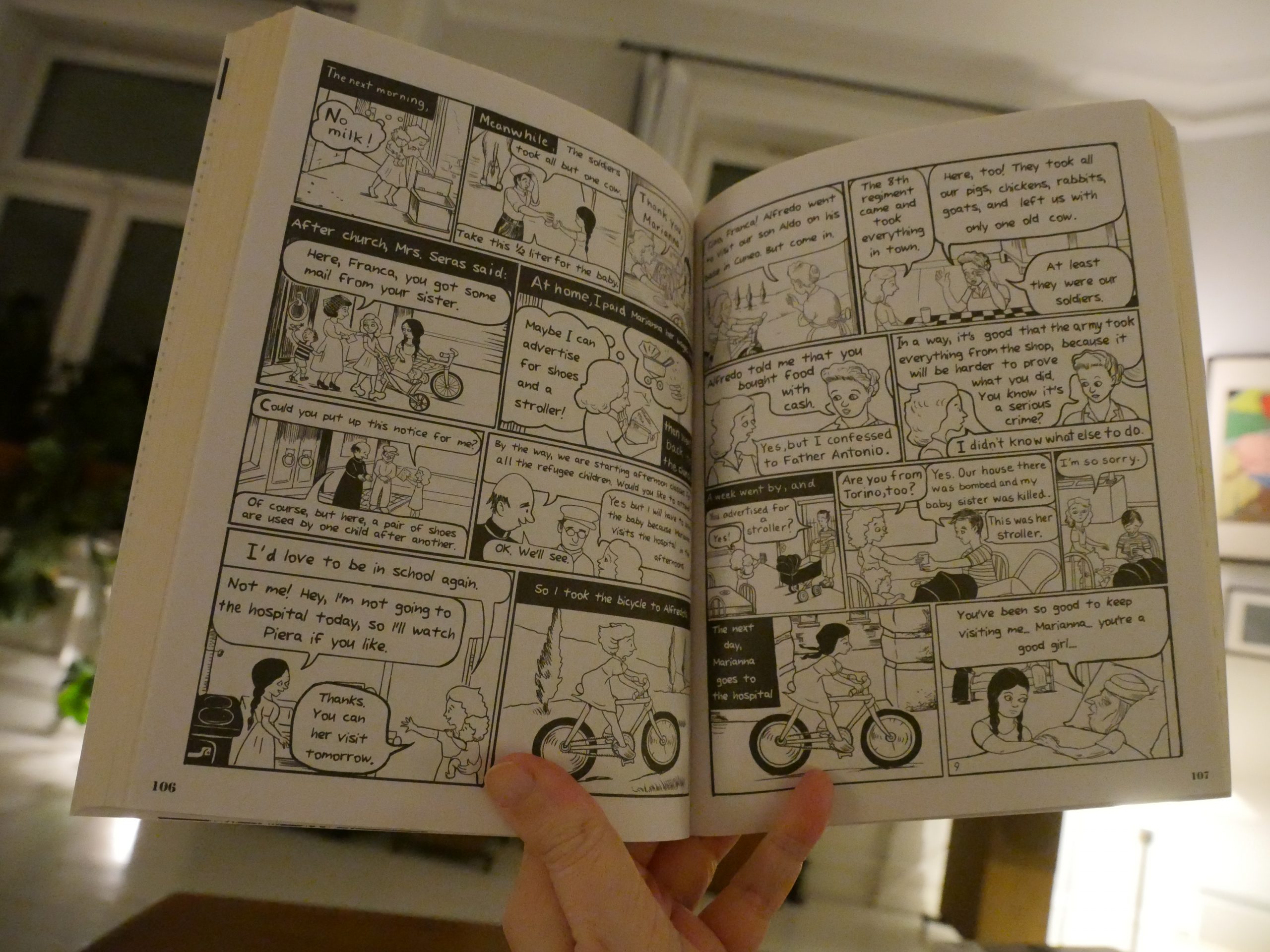
One of the most interesting stories here is this thing from Isabella Bannerman — I’m guessing it’s Bannerman’s … grandmother’s (?) story from WWII Italy. It’s got that unstructured reminiscence thing going on, and it’s both charming and feels truthful.
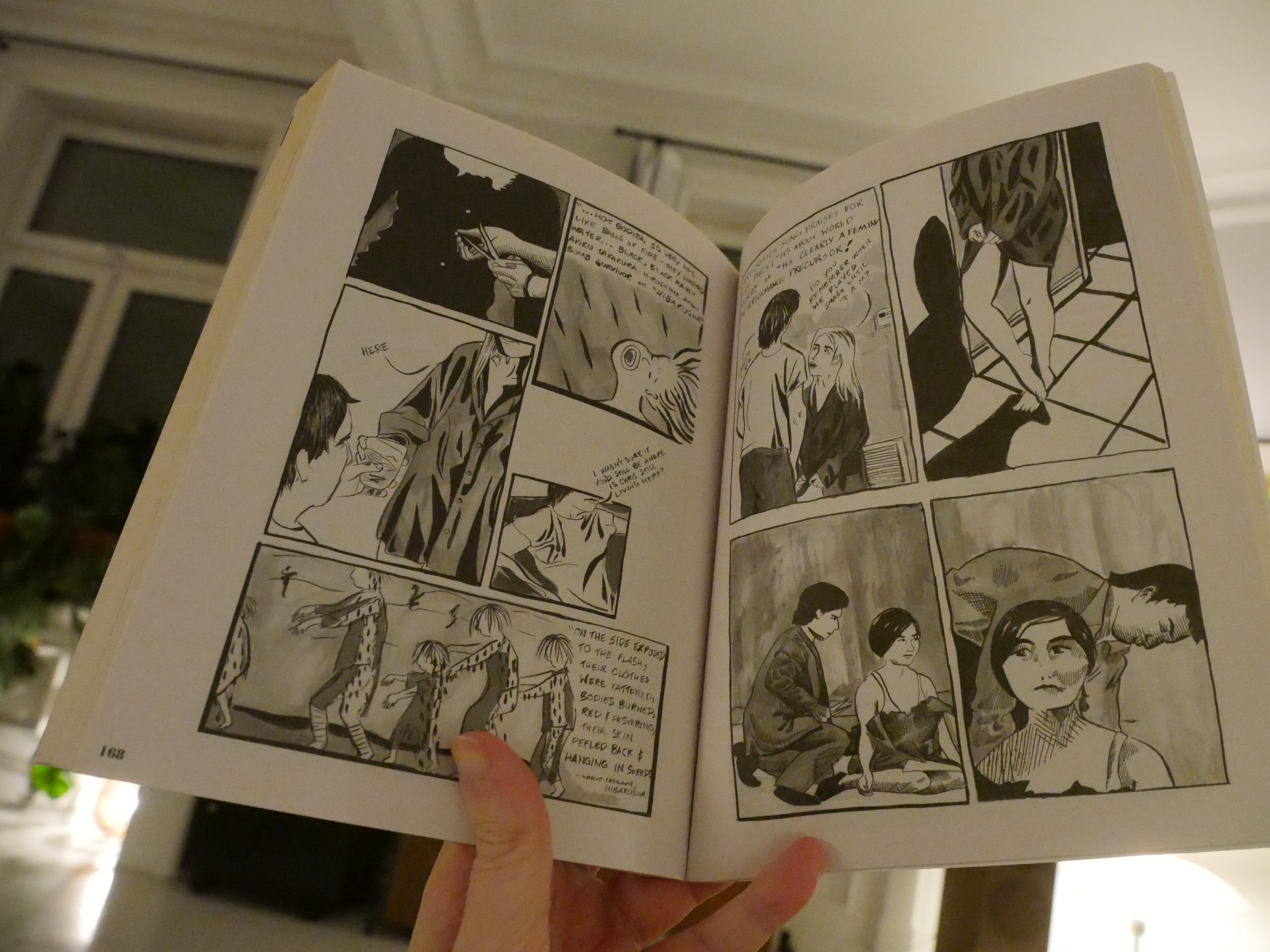
But I think my favourite strip is this one by Carly Shooster, which juxtaposes Yoko Ono’s Cutting piece with er personal stuff.
| Don Armando’s 2nd Avenue Band: Don Armando’s 2nd Avenue Band | 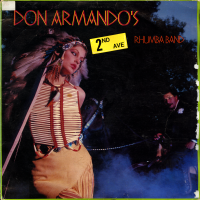 |
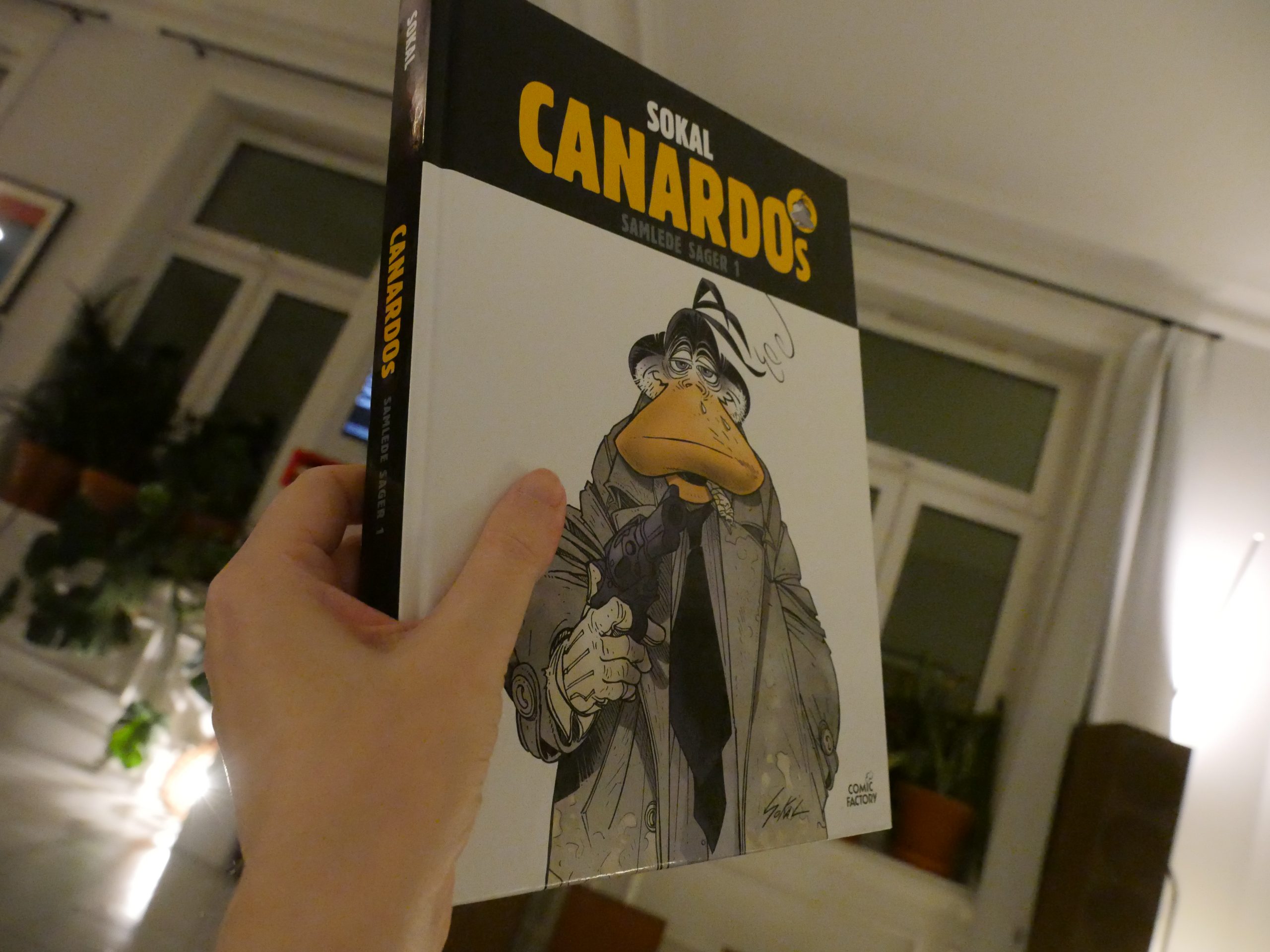
03:57: Canardo by Sokal (Comic Factory)
I remember Canardo strips would show up here and there in various low, low rent anthologies in the 80s (badly printed and in black and white), and… I never much liked the strip? But some Danes released a collected edition, and I apparently bought it for some reason.
The mysteries of shopping.
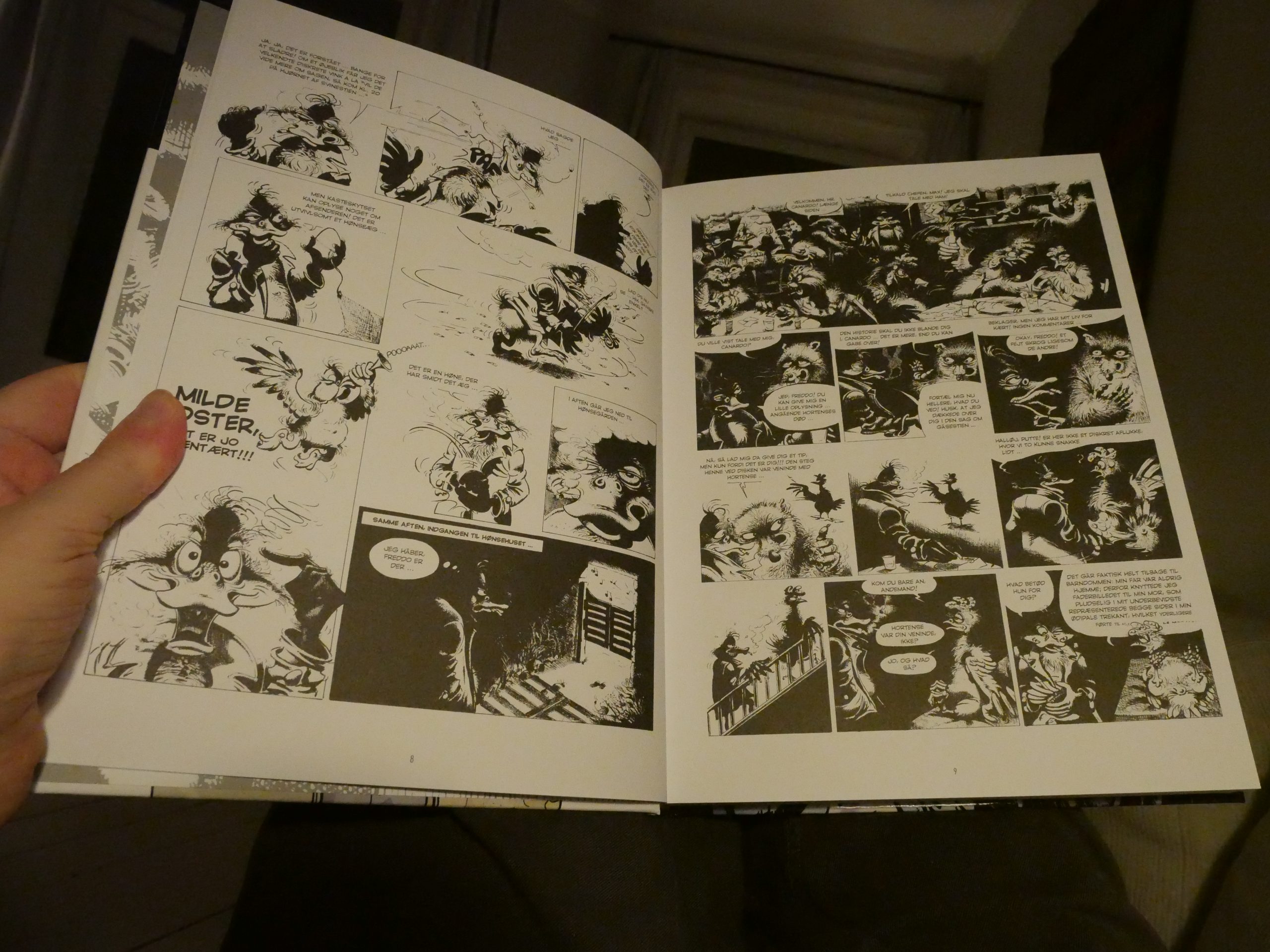
Ah, the first sixty pages or so are the strips I vaguely (don’t) remember reading back then. These are four-to-six page strips, and they’re… er… “sardonic”. And I guess the art style can be summed up as “somebody read Franquin’s Idées Noires”?
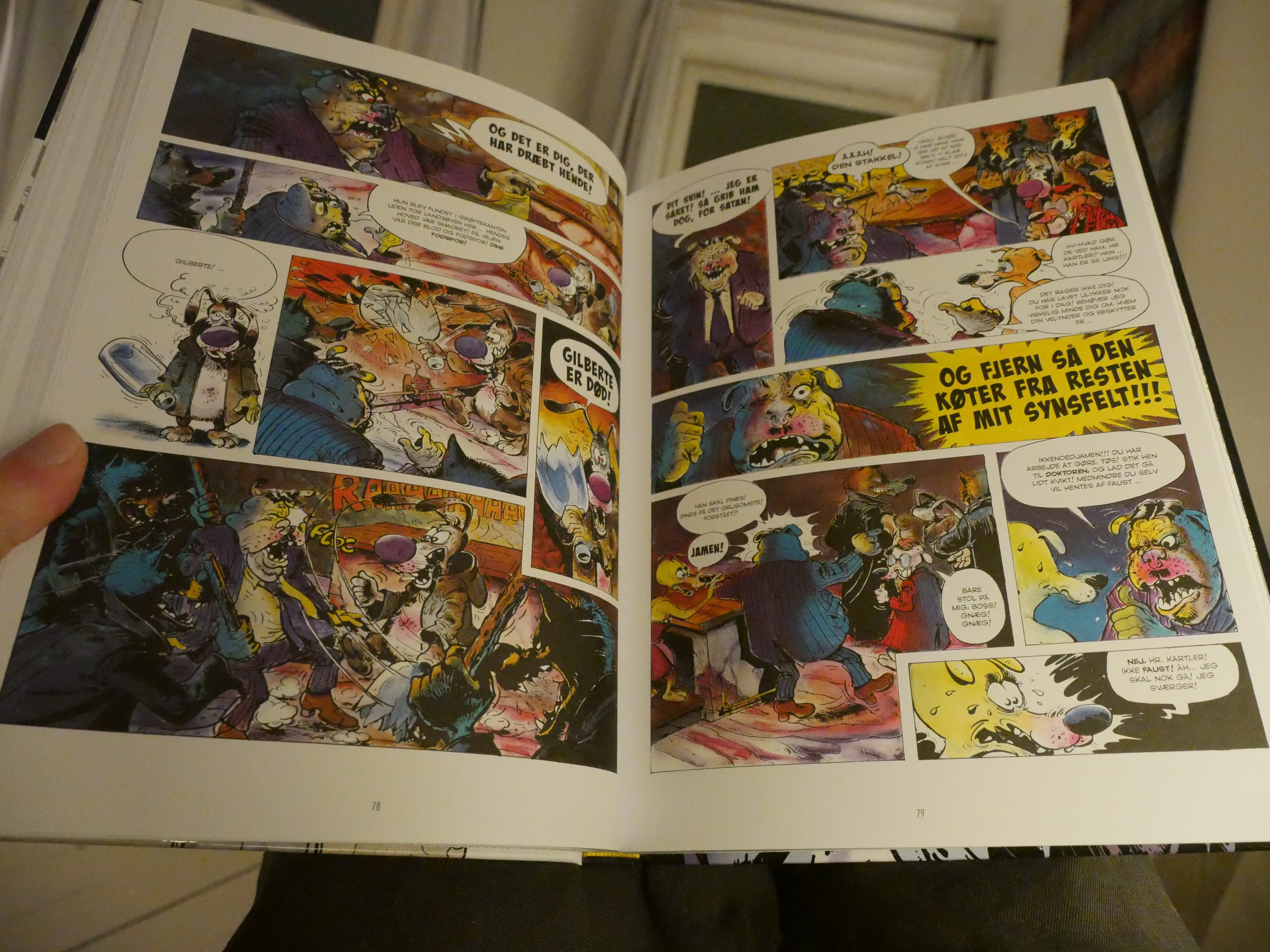
The other three albums collected here are in colour… repulsive colour…
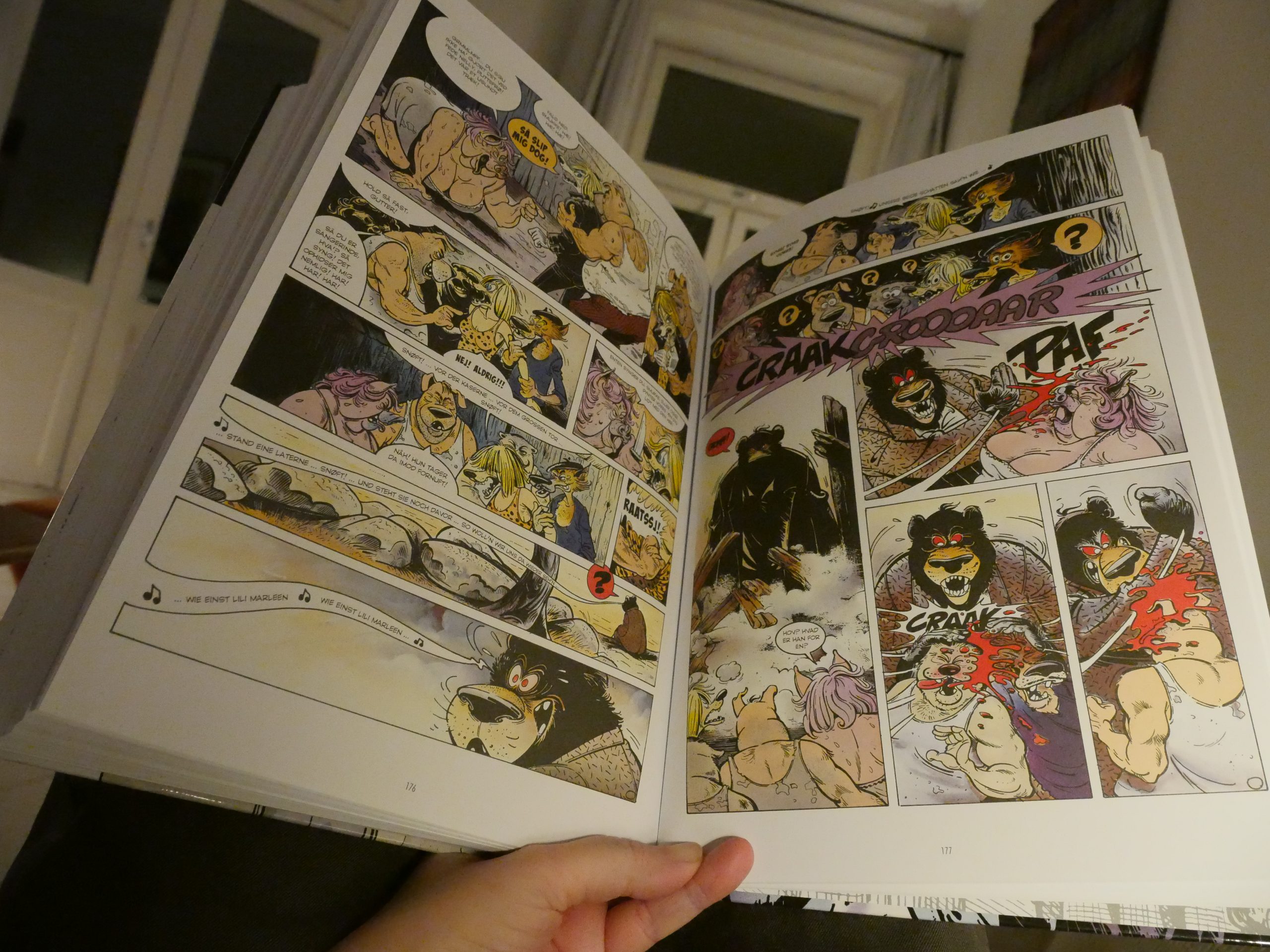
The stories are basically Noirish pastiches, and they’re all hyper violent tragedies. Canardo doesn’t have a consistent character, and the world depicted in the pages seems to vary according to Sokal’s mood (in the early strips, the main gag is that Canardo’s a private eye on a farm, but he doesn’t quite get that it’s the human that’s killing the animals, and then he’s living a more human-style life, and finally (in the fourth album) humans are a myth).
I can see why somebody would be into this — the art’s pretty good, and it’s “transgressive” and vaguely funny at times — but it was a chore to get through.
Google translate:
It is true that the cynical and dramatic side often takes precedence over the rest. However, I find that the message sent by the author takes on a special meaning. There is a whole atmosphere that I really liked. Humor is not forgotten. In short, an excellent cocktail!
| Jerry Harrison: The Red And The Black |  |
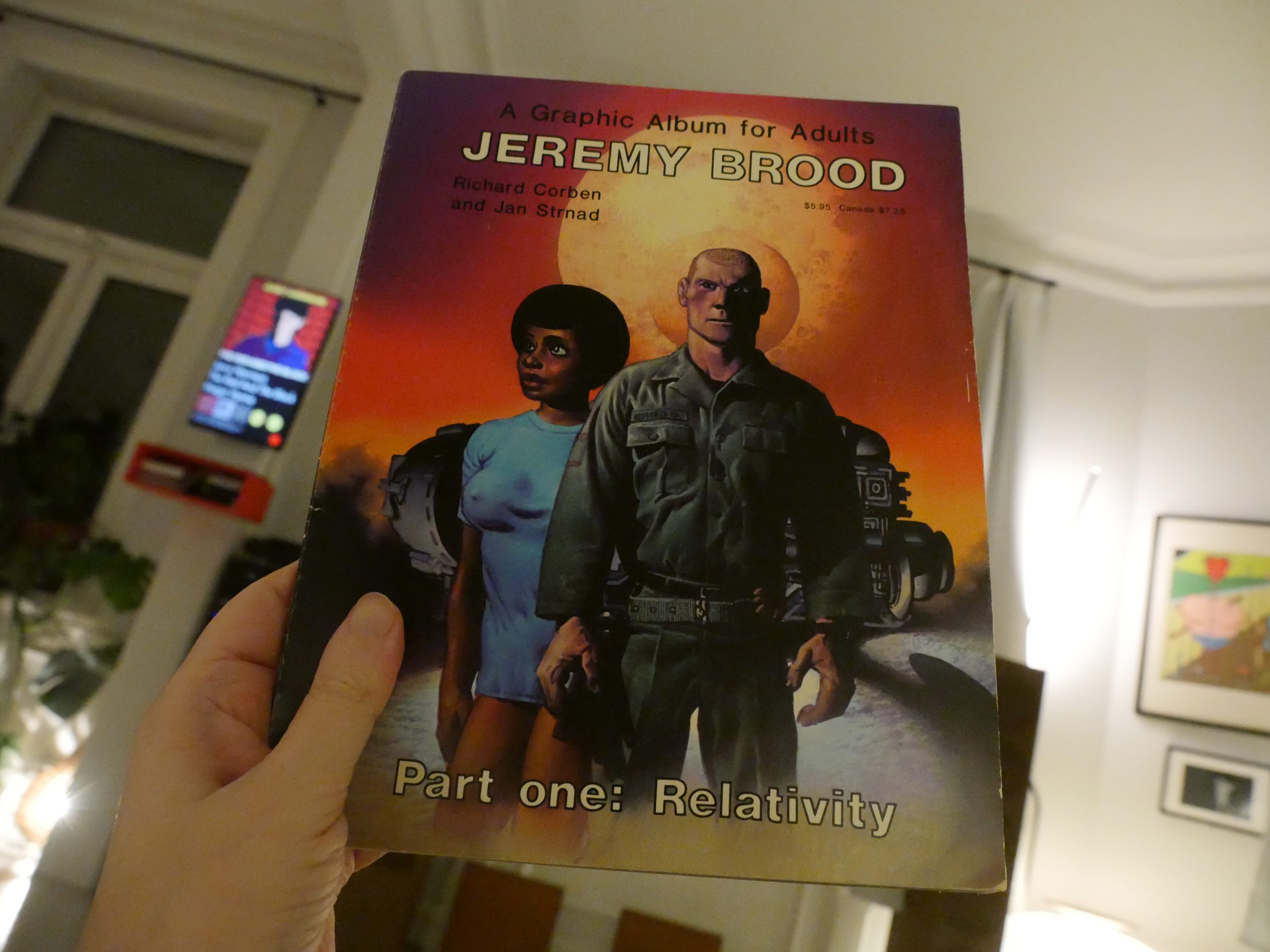
05:53: Jeremy Brood by Richard Corben and Jan Strnad (Fantagor)
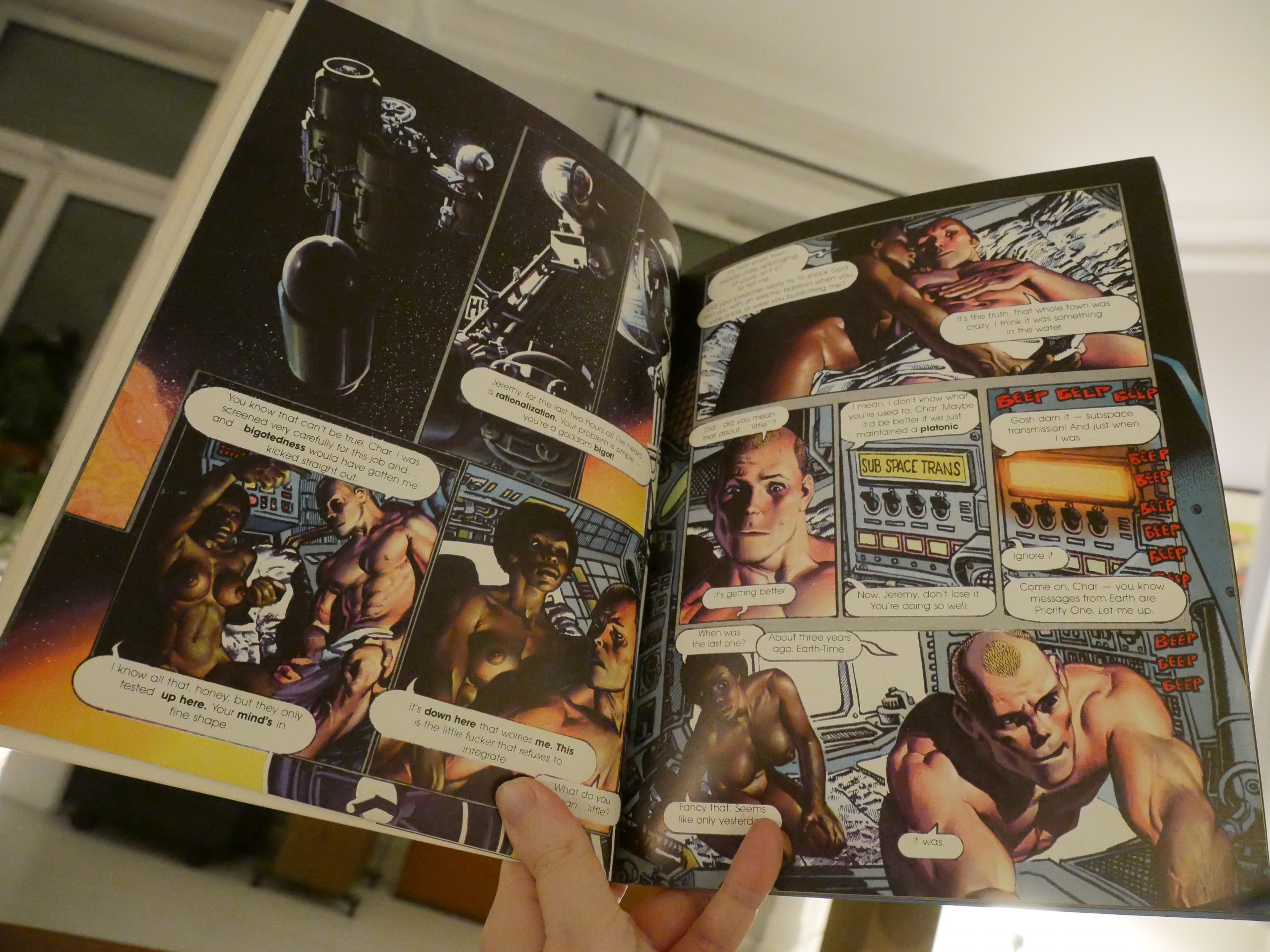
I got this more than a year ago, and then I totally forgot to read it. Looks like it’s prime Corben at his most sculpted.
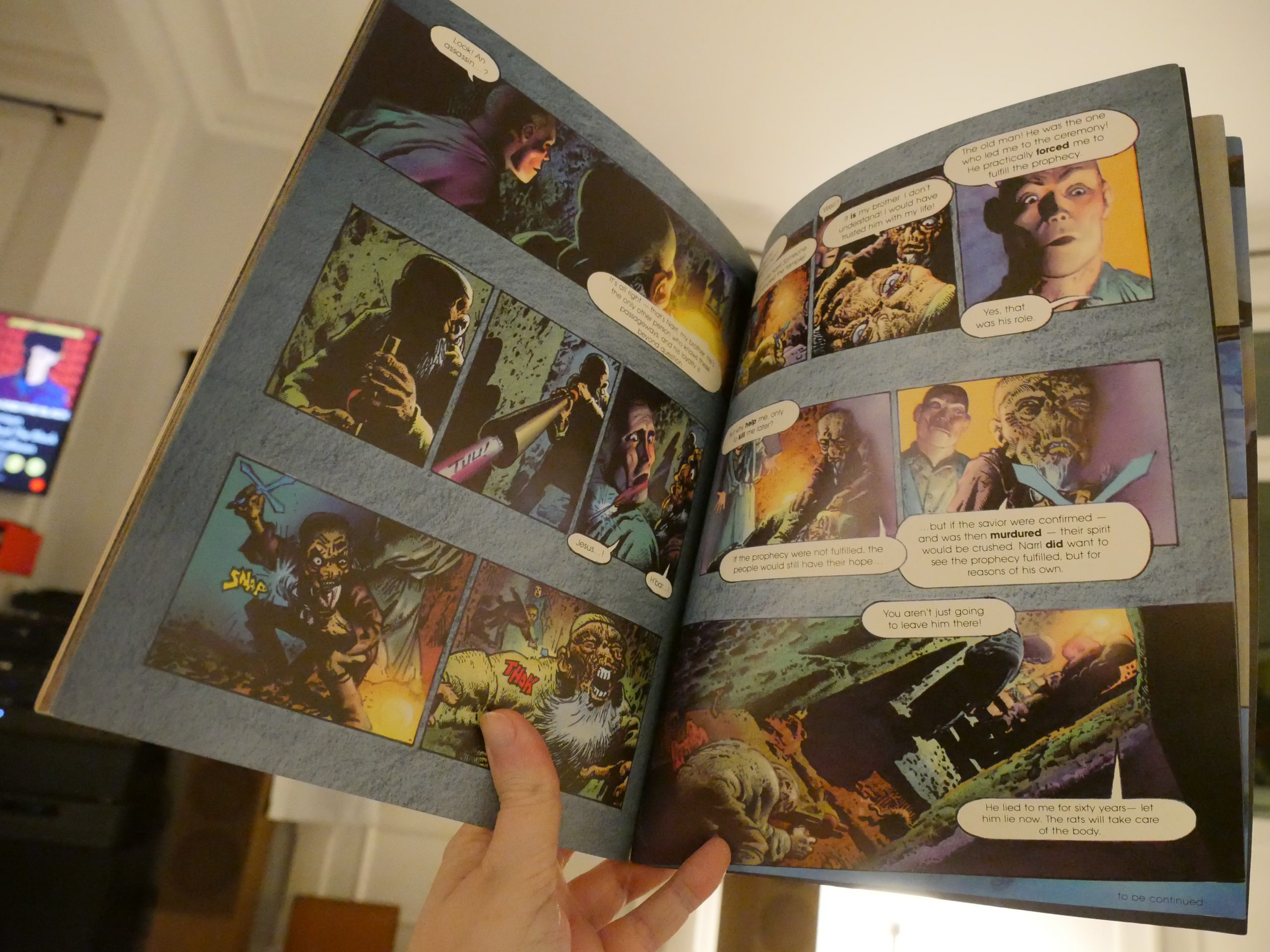
But he varies the rendering technique a lot — Brood himself is very airbrushed while the aliens are more gnarly.
Oh, I just realised — most of what I’ve been reading tonight has been from the early 80s — Sylvia, Canardo, this, and Slow Death’s last issue was from 81, I think, and World War 3 Illustrated started in 81-ish, and even the music I’ve been listening to have all been from 80-82.
I didn’t plan that or anything.
What does it all mean!
| Jerry Harrison: The Red And The Black | 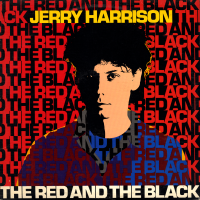 |
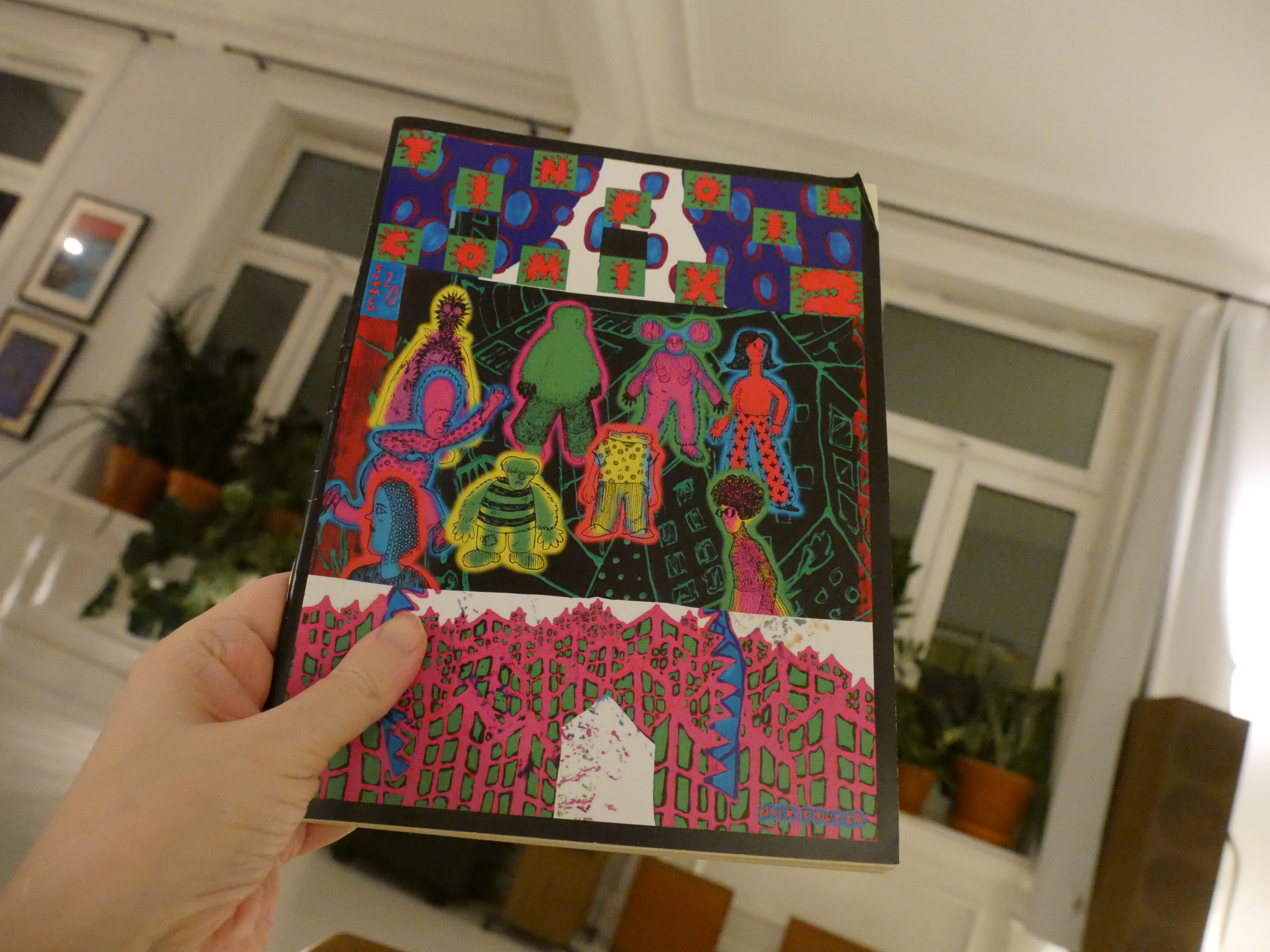
06:14: Tinfoil #2 edited by Floyd Tangeman
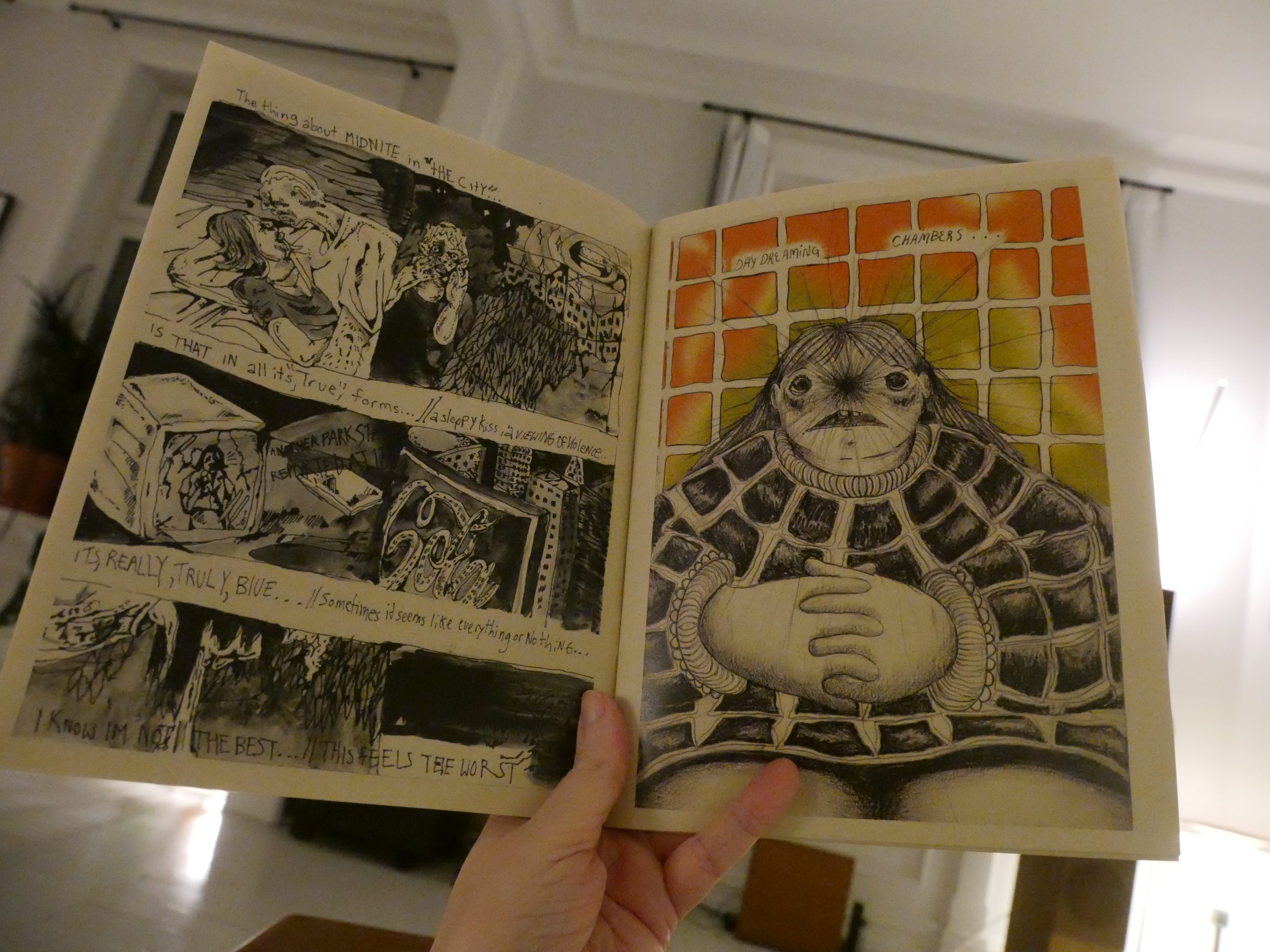
I’ve had this for a while, too — I’m digging deep down into my unread stack tonight.
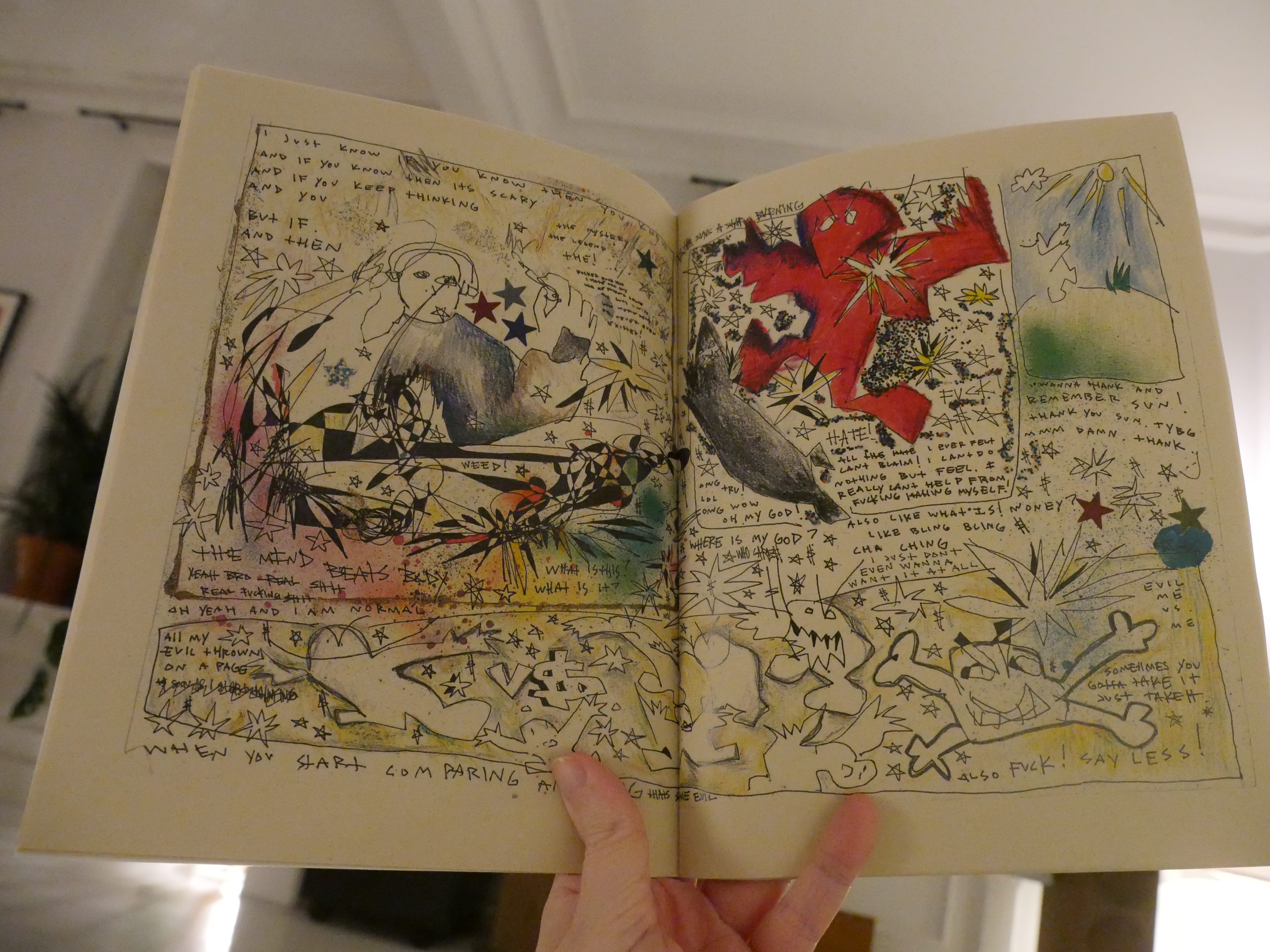
It’s really cool.
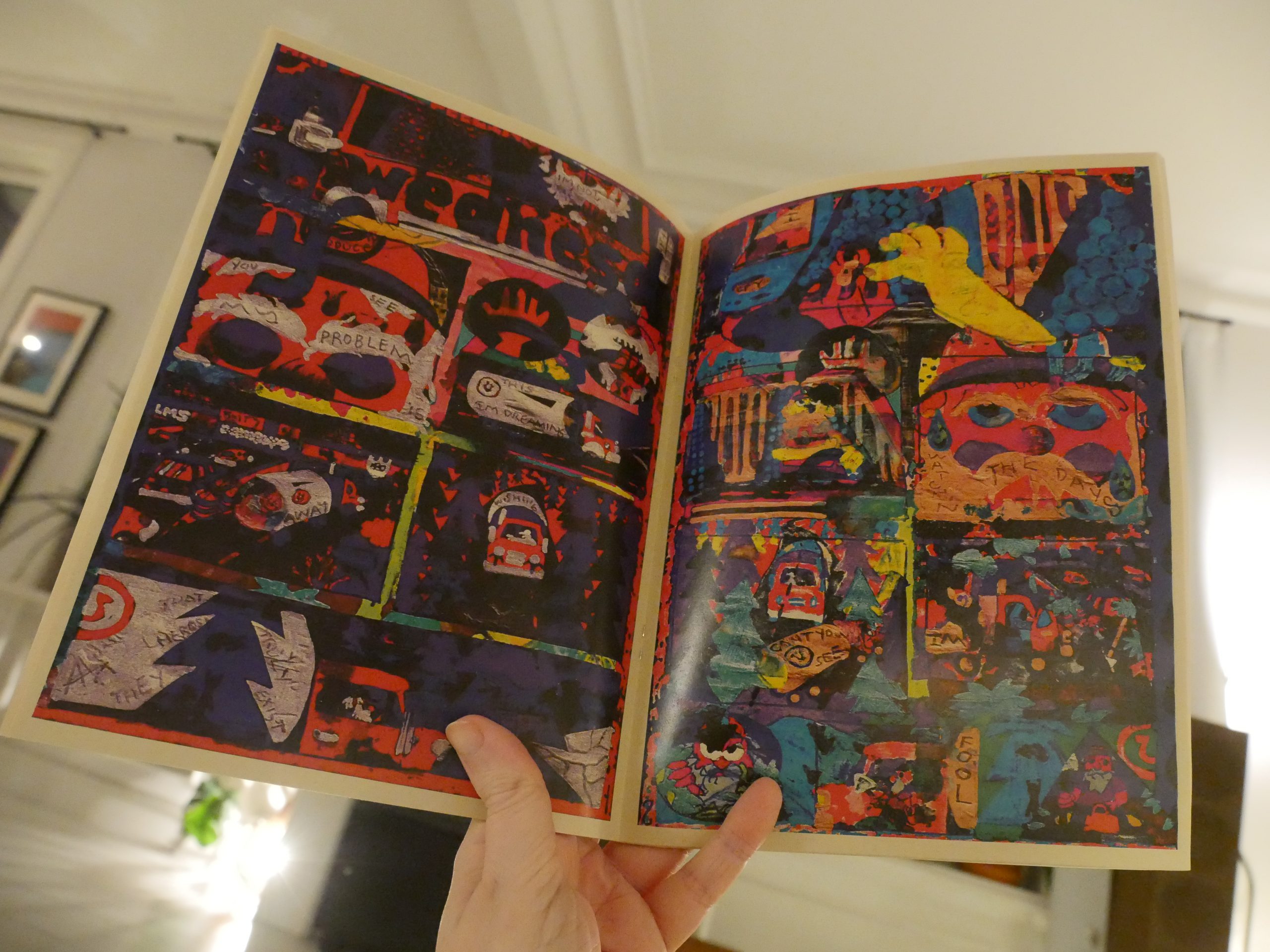
I like all the different approaches here. The longest piece, though — the zombie history — seemed pretty out of place, but perhaps that’s the point.
| Yves Tumor: Heaven To A Tortured Mind |  |
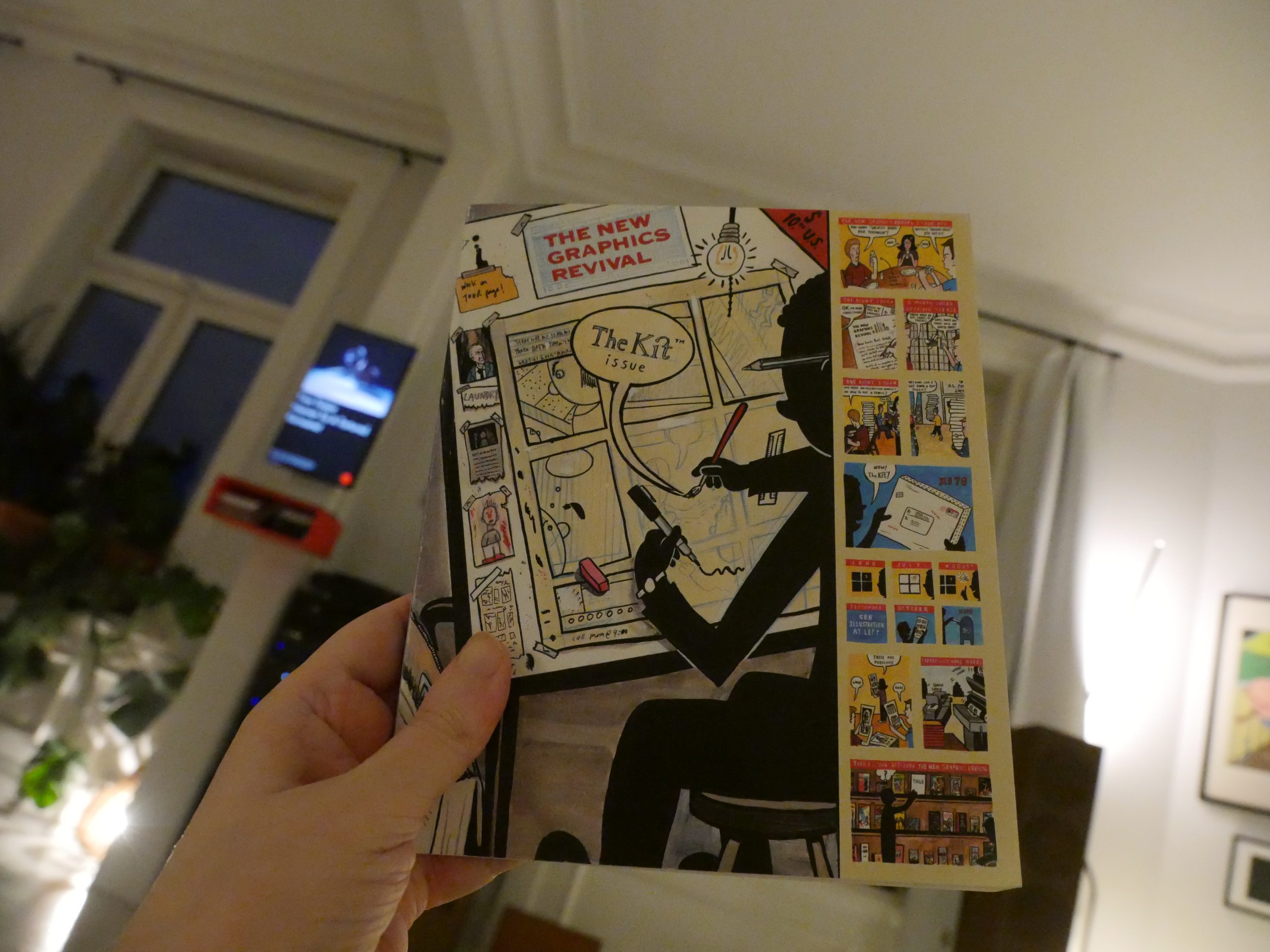
06:30: The New Graphics Revival by David Heatley and Bert Stabler
I’ve had this for quite a while, too… I have no recollection of how I got it, though.
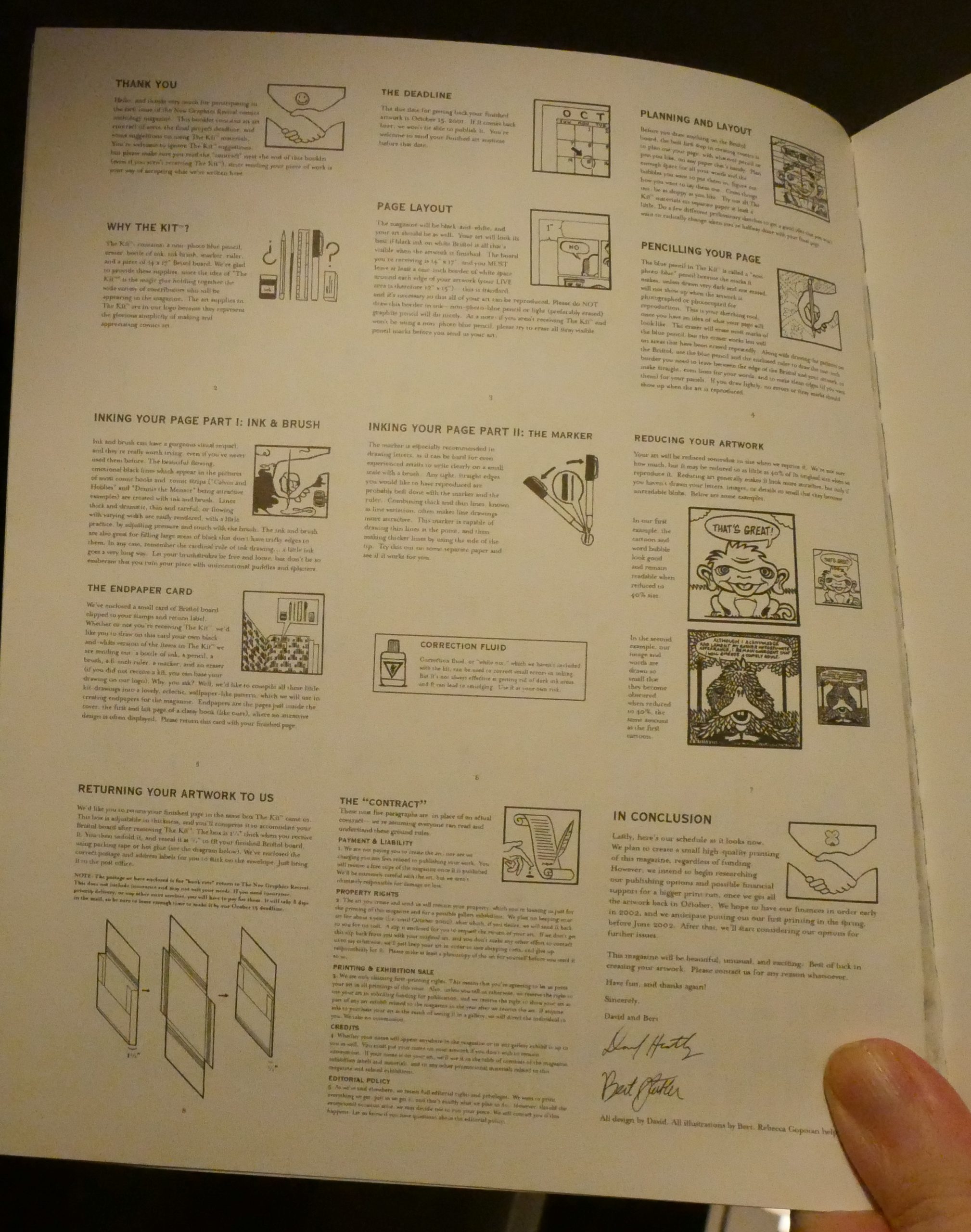
This is conceptual — they editors apparently sent out these kits to people? Containing pencils and ink and paper, and instructions.
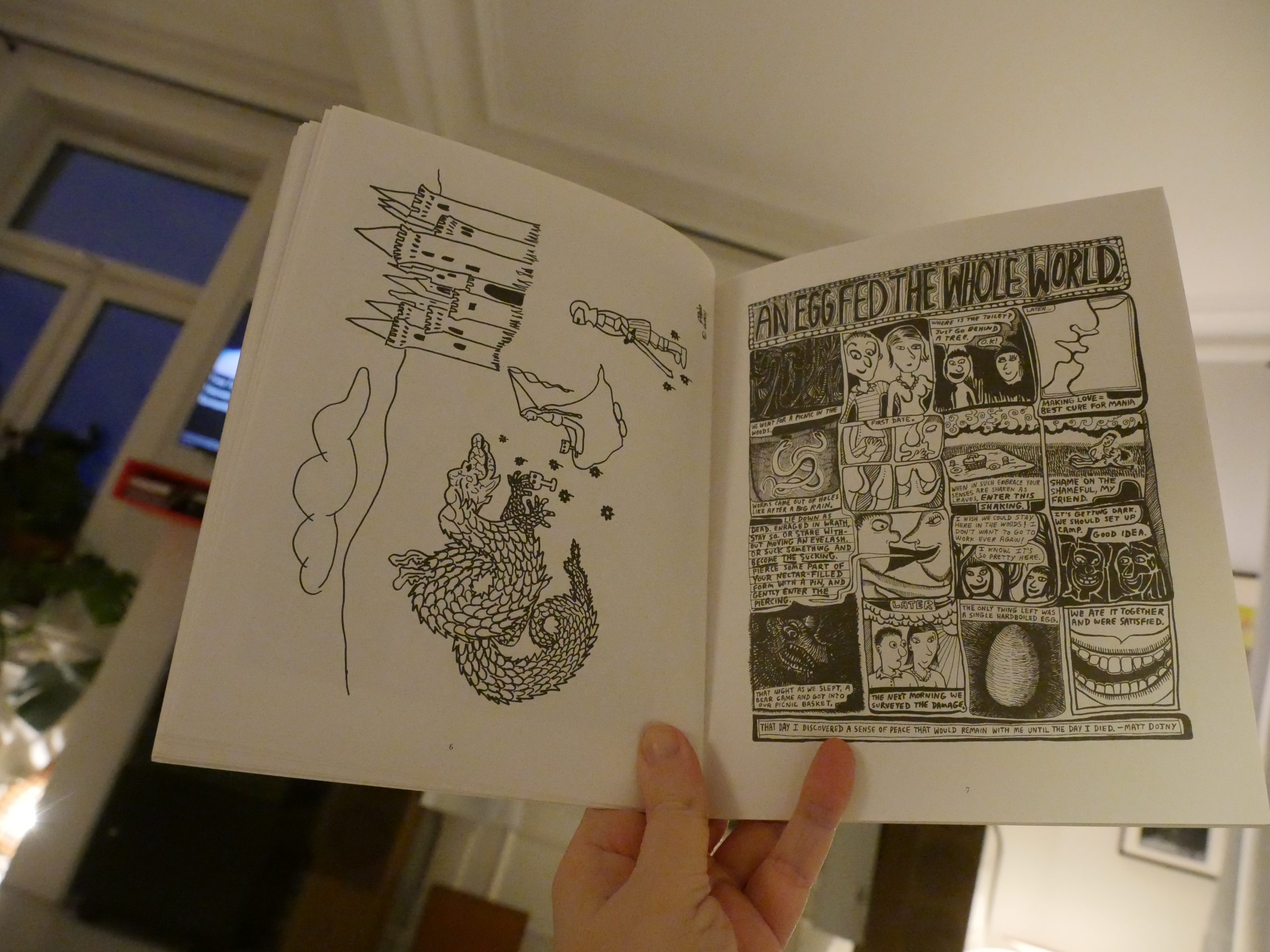
So this book is just one-pagers from a bunch of people — kids and adults, professionals and not-so-professionals.
I was sceptical at first…

But this is really good! Of course, not everything is super interesting, but cumulatively it’s very readable and interesting. That it’s just single pages helps with the rhythm of the reading, I think.
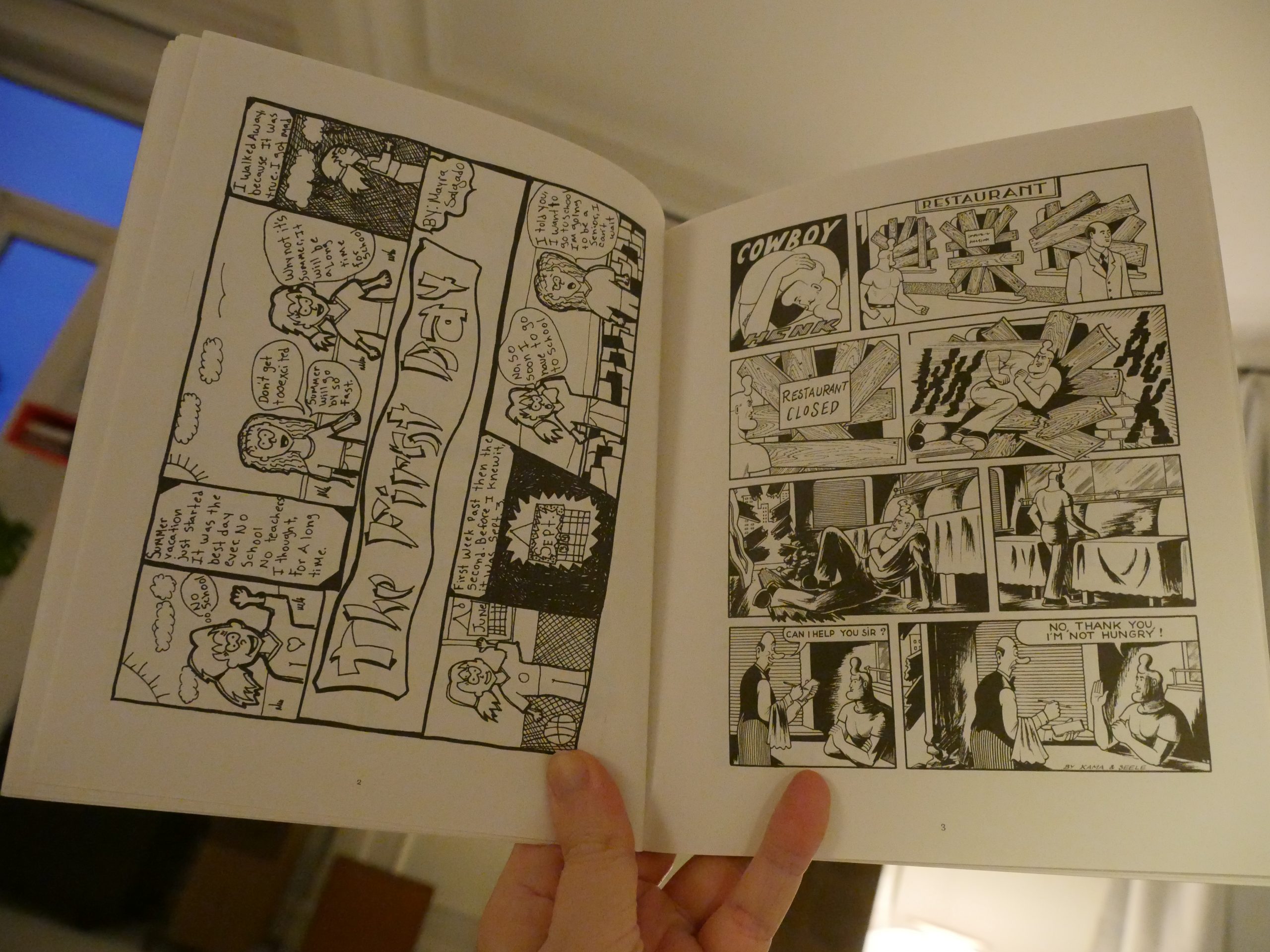
I give it all my thumbs up.
| Irreversible Entanglements: Who Sent You? |  |
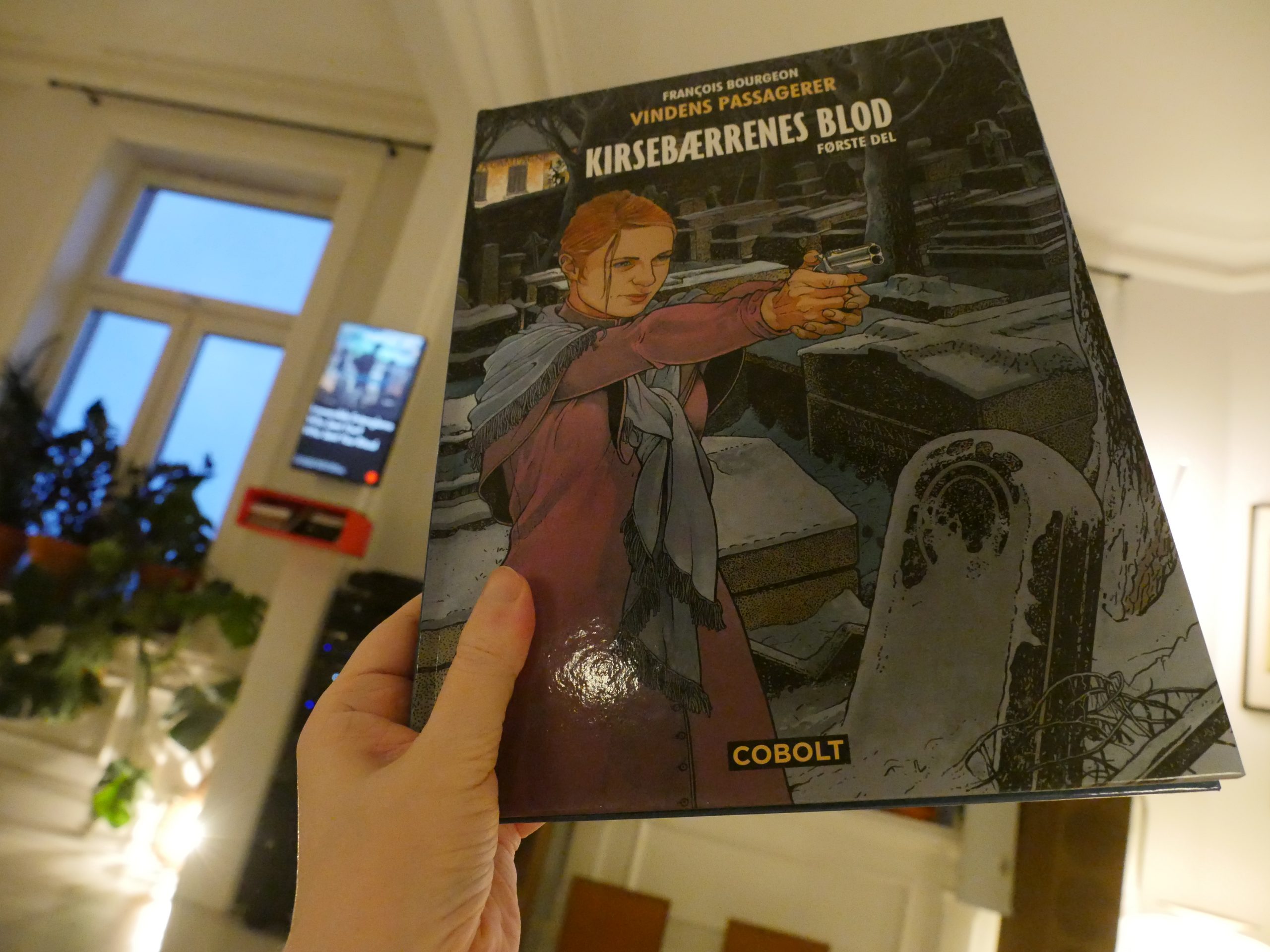
07:08: Les passagers du vent, tome 8: Le sang des cerises, livre 1 by François Bourgeon (Cobolt)
Oh! This is a continuation of the album series from the 80s, which was five albums. But this is album 8? So I’ve missed two, if my math education can be trusted.
I remember… thinking the original series was kinda turgid? It was a big deal back then — it was a big, huge epic, translated to all European languages… very portentous. But I have absolutely no recollection what it was about, beyond what I just wrote.
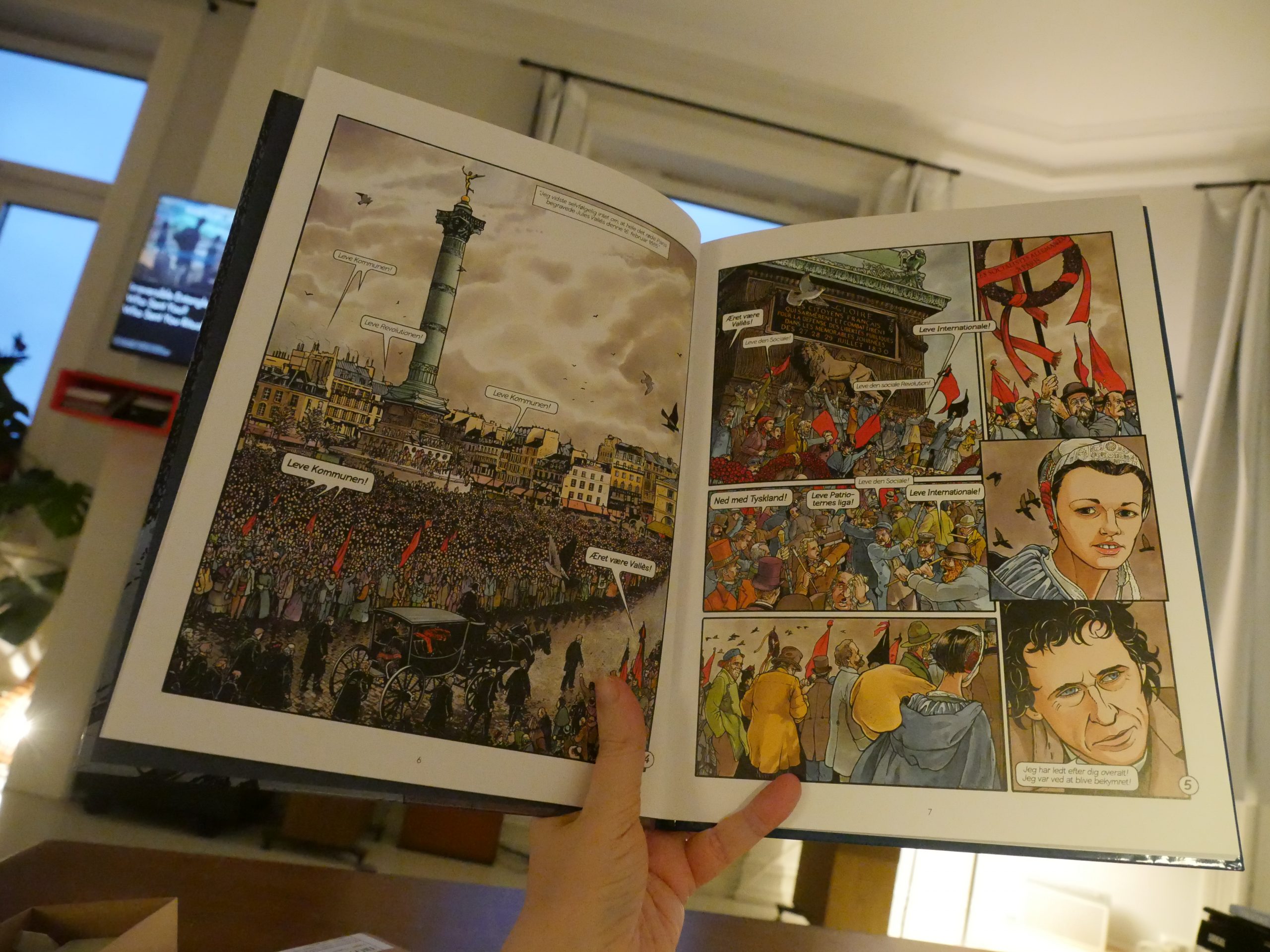
So this is set in the late 1800s…
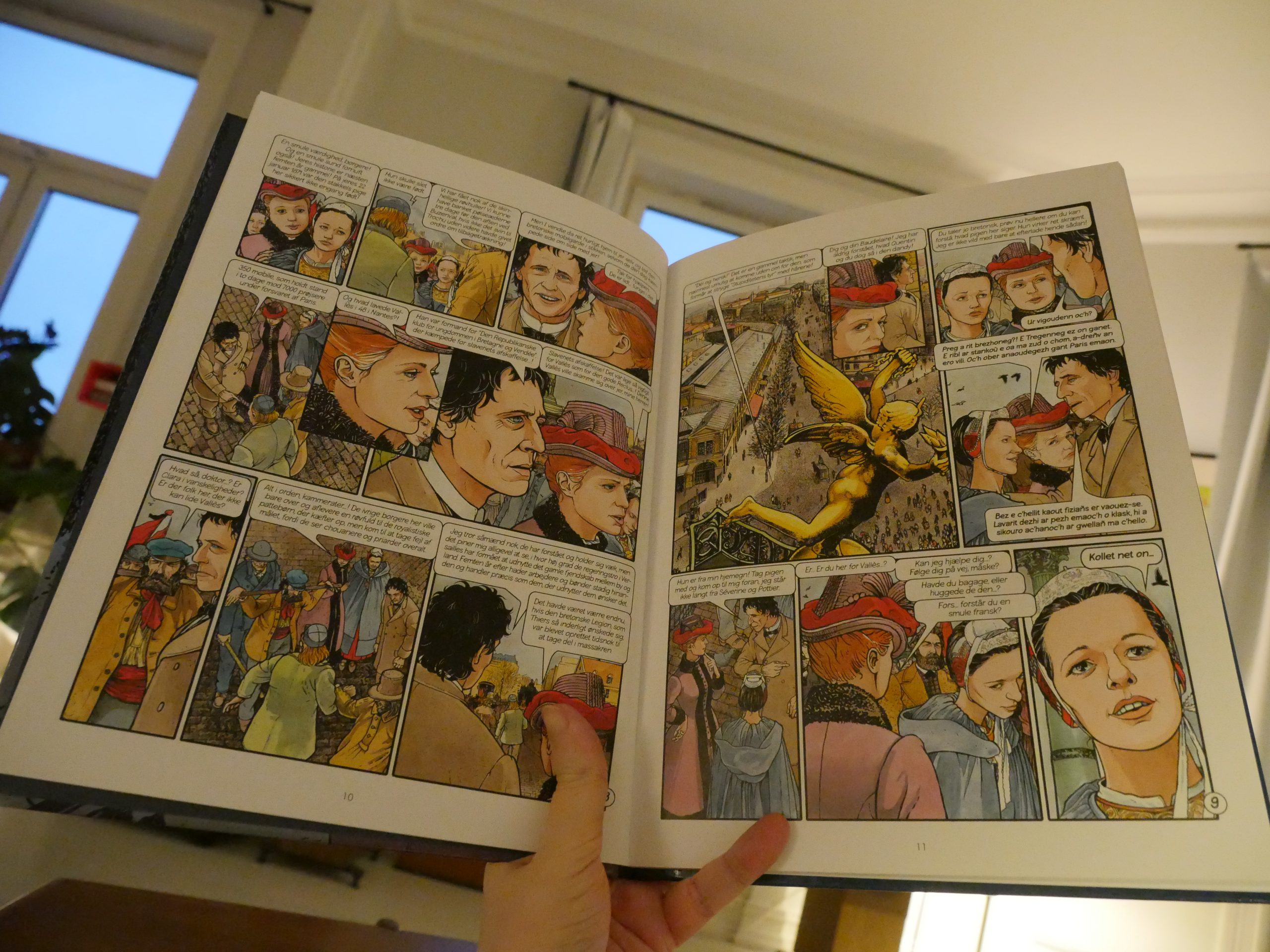
AND OH MY GOD IT”S SO BORING. I don’t know whether this genre has a name… “nation building?” It’s people standing around recapping titbits from history, and participating at the edges of Major Important National Events, so it’s a word salad of names and places.
And, of course, they meet Latrec and Satie etc and it’s all mostly really, really tedious. And all the faces look like he’s tracing photos.
But.
In between the “as you know, Bob, the Prussians lay a siege around Paris” there’s some scenes that really work? In a sort of grandiose French historical movie way? So it’s not all bad.
Let’s see what Frencheys on Goodreads say.
Monumental work as always with this author but this time I am rather annoyed by the too many history lessons but above all too little subtly placed in the mouths of the protagonists. As a result, the dialogue rings out of tune and there is too little room left for the plot, the story with a small “h”.
Indeed.
| Joan as Police Woman: Cover Two | 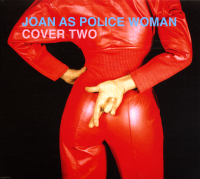 |
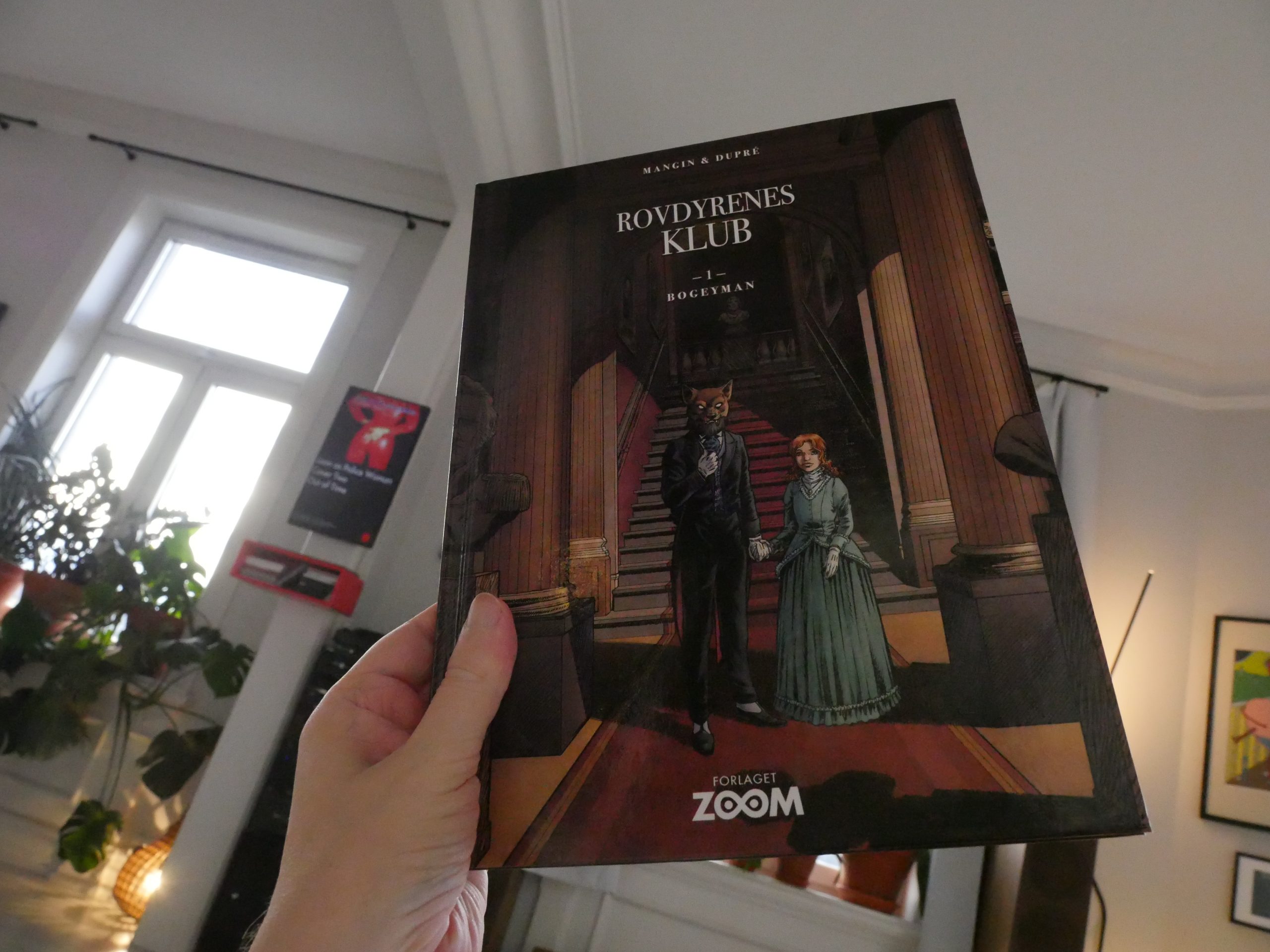
08:46: Le club des predateurs 1 by Mangin & Dupré (Zoom)
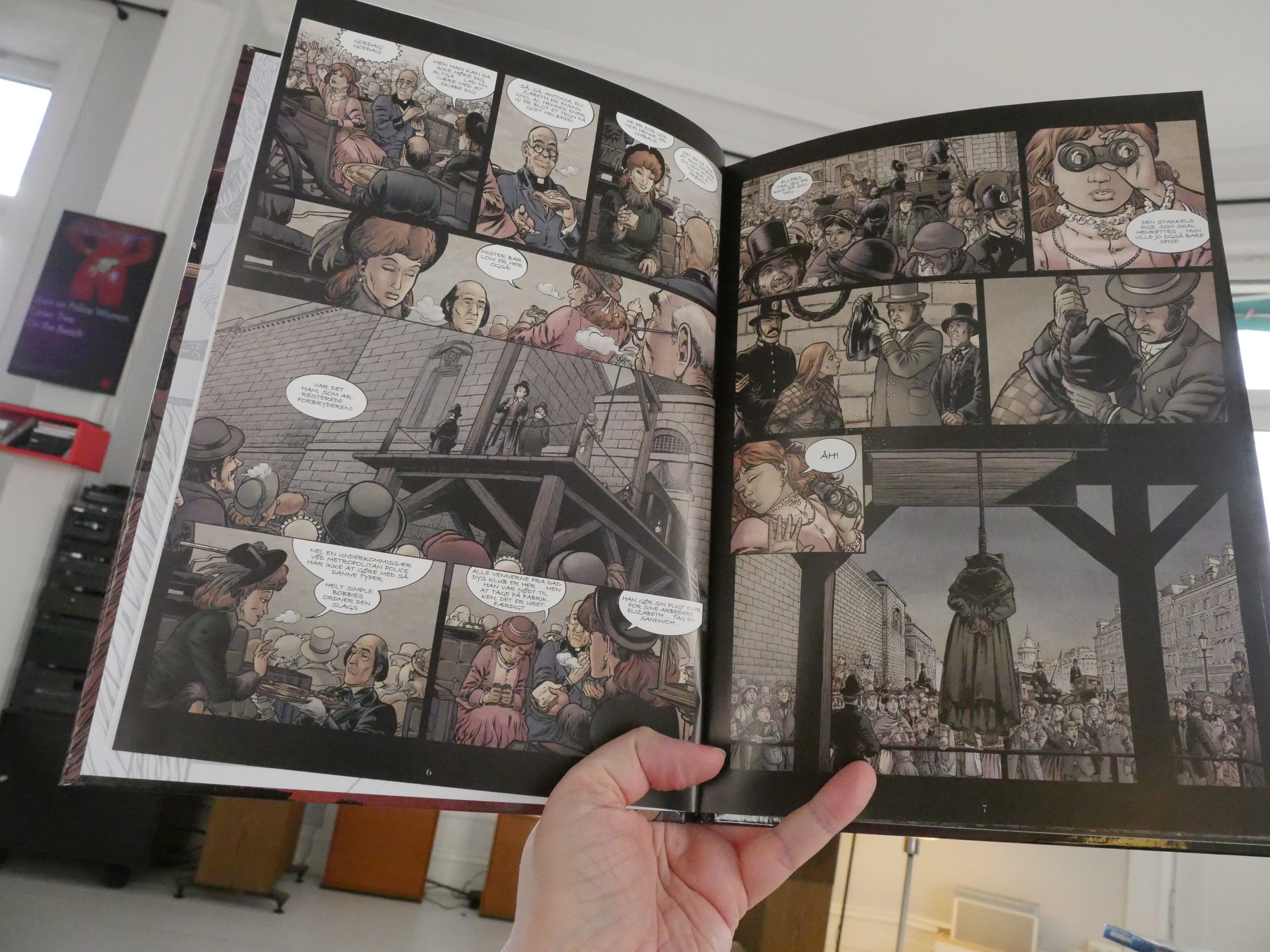
Looks like another one of those French Victorian pot-boilers, which I usually like well enough.
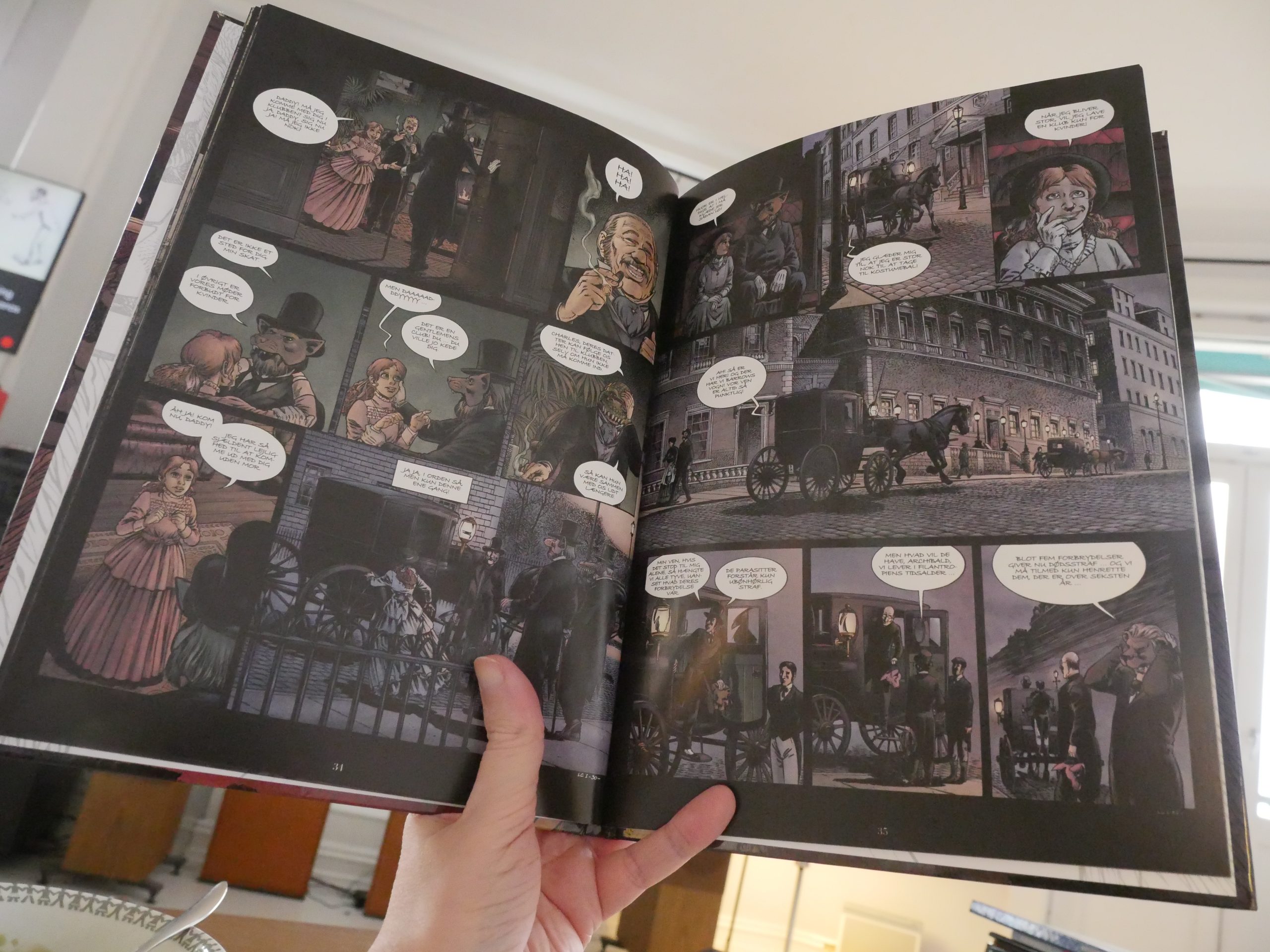
… but the storytelling is really choppy. There’s about thirty characters here, and they’re basically indistinguishable from each other (with a couple of exceptions).
And it putters along in this quite normal way, and I guess some kids might find it entertaining… But then the final few pages. Man. Those are the among the most grisly and gruesome ones I can remember ever seeing in a French comic book.
Just… eurgh.
| David Allred: Living Things Living |  |
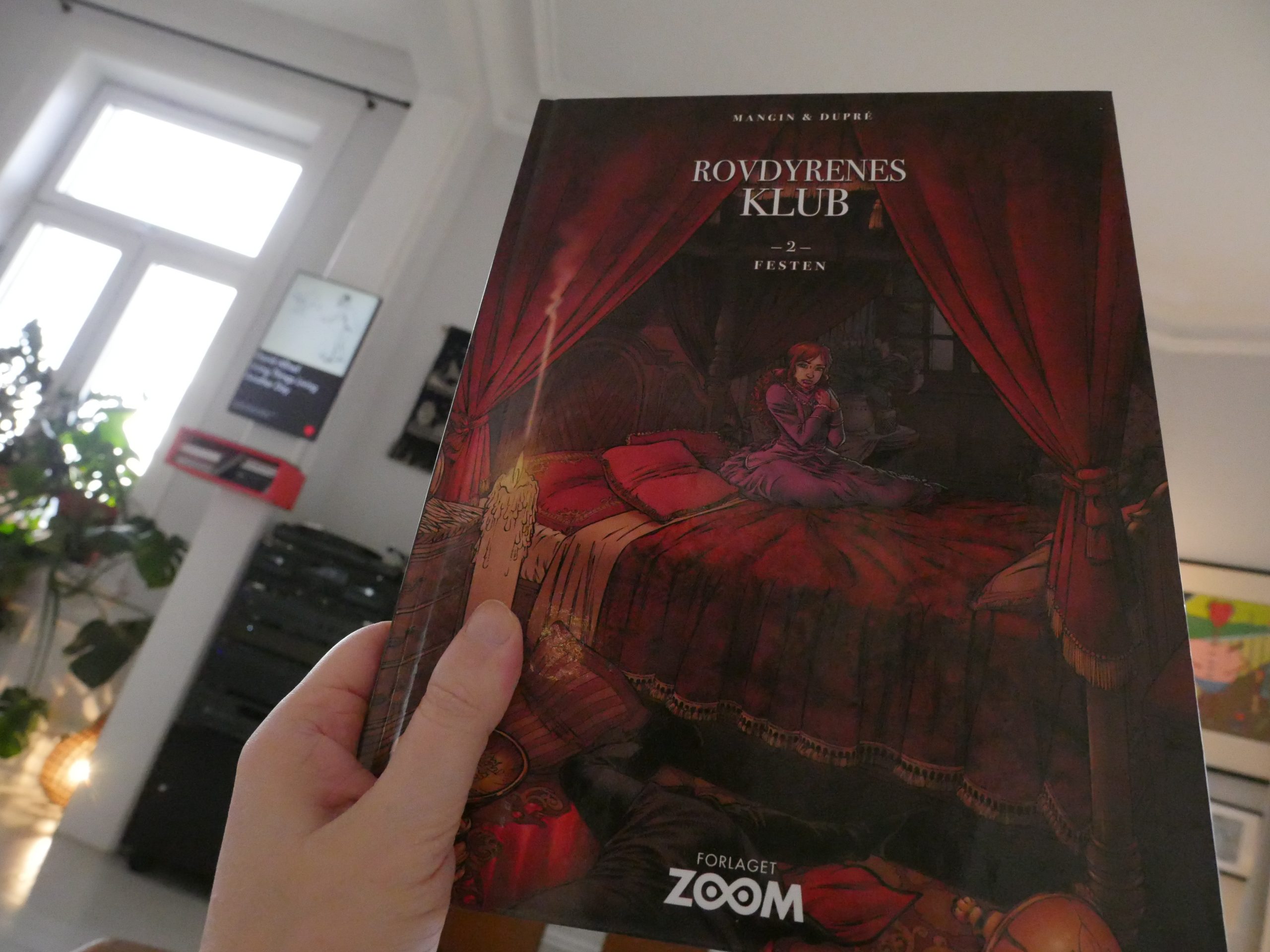
09:23: Le club des predateurs 2 by Mangin & Dupré (Zoom)
Unfortunately I’ve already bought the second tome.
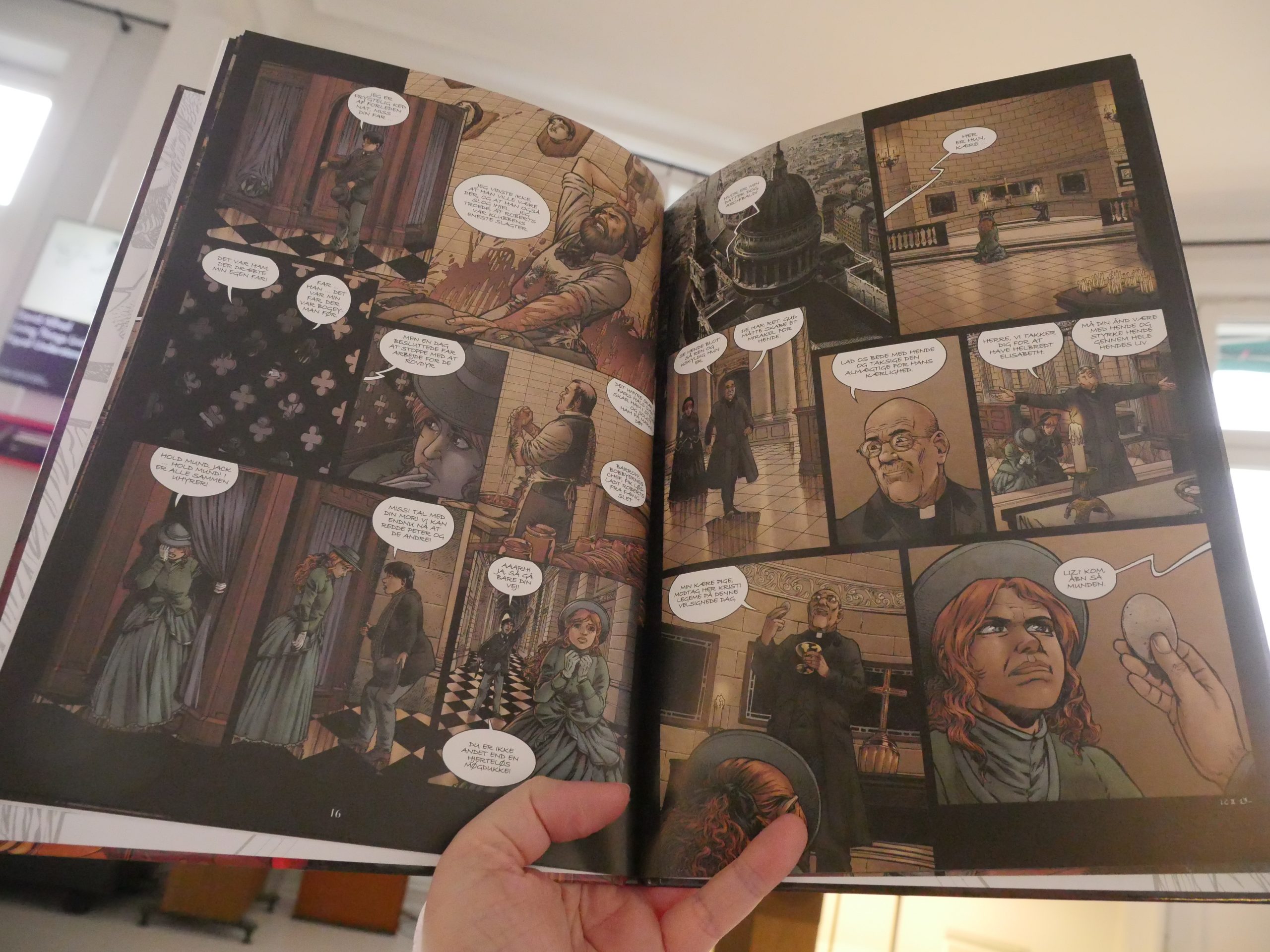
This one’s nauseating, too. (I’m not showing any of the offending pages here.)
| The Mystery of the Bulgarian Voices feat. Lisa Gerrard: Shandai Ya |  |
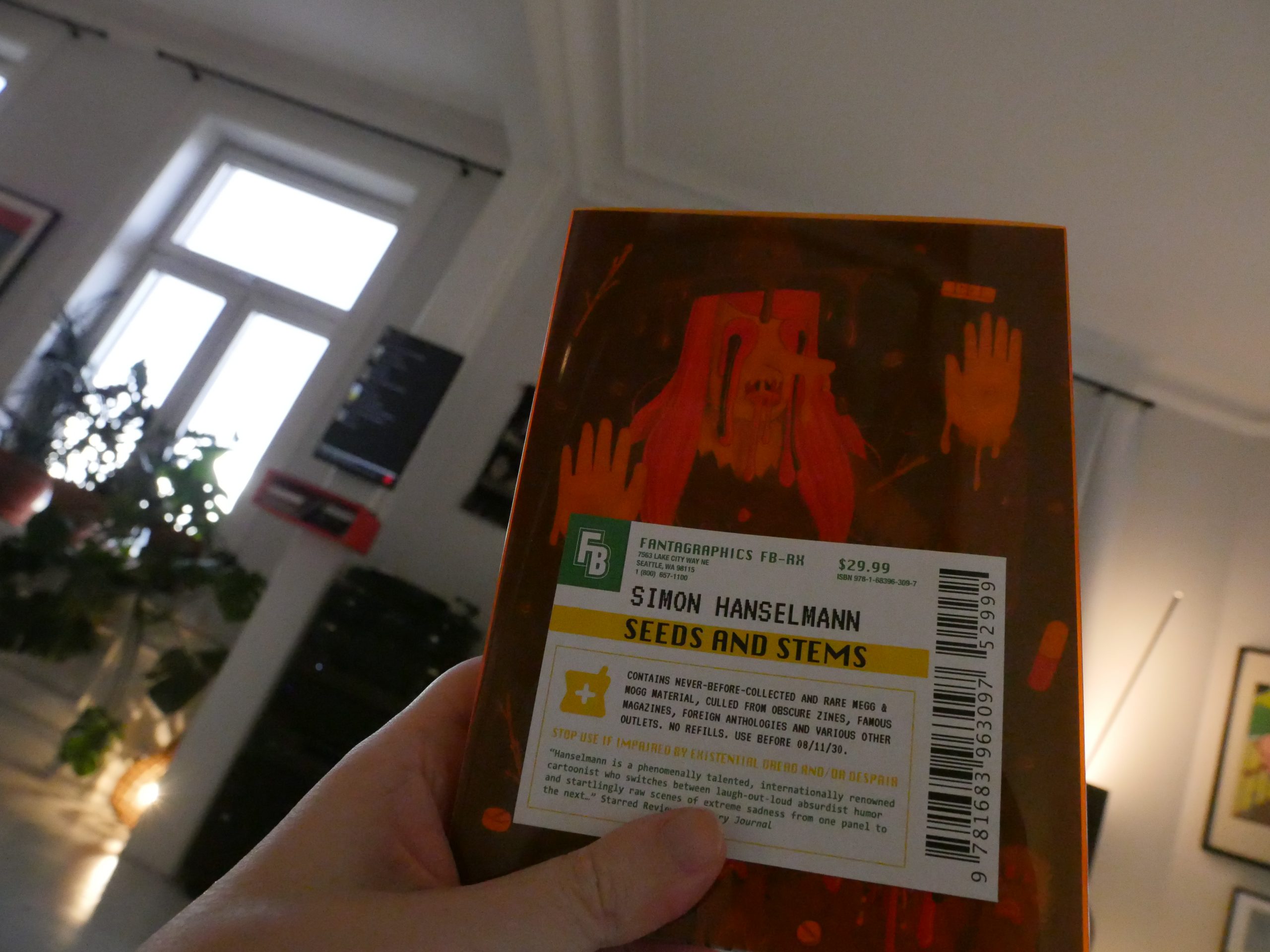
09:42: Seeds and Stems by Simon Hanselmann (Fantagraphics)
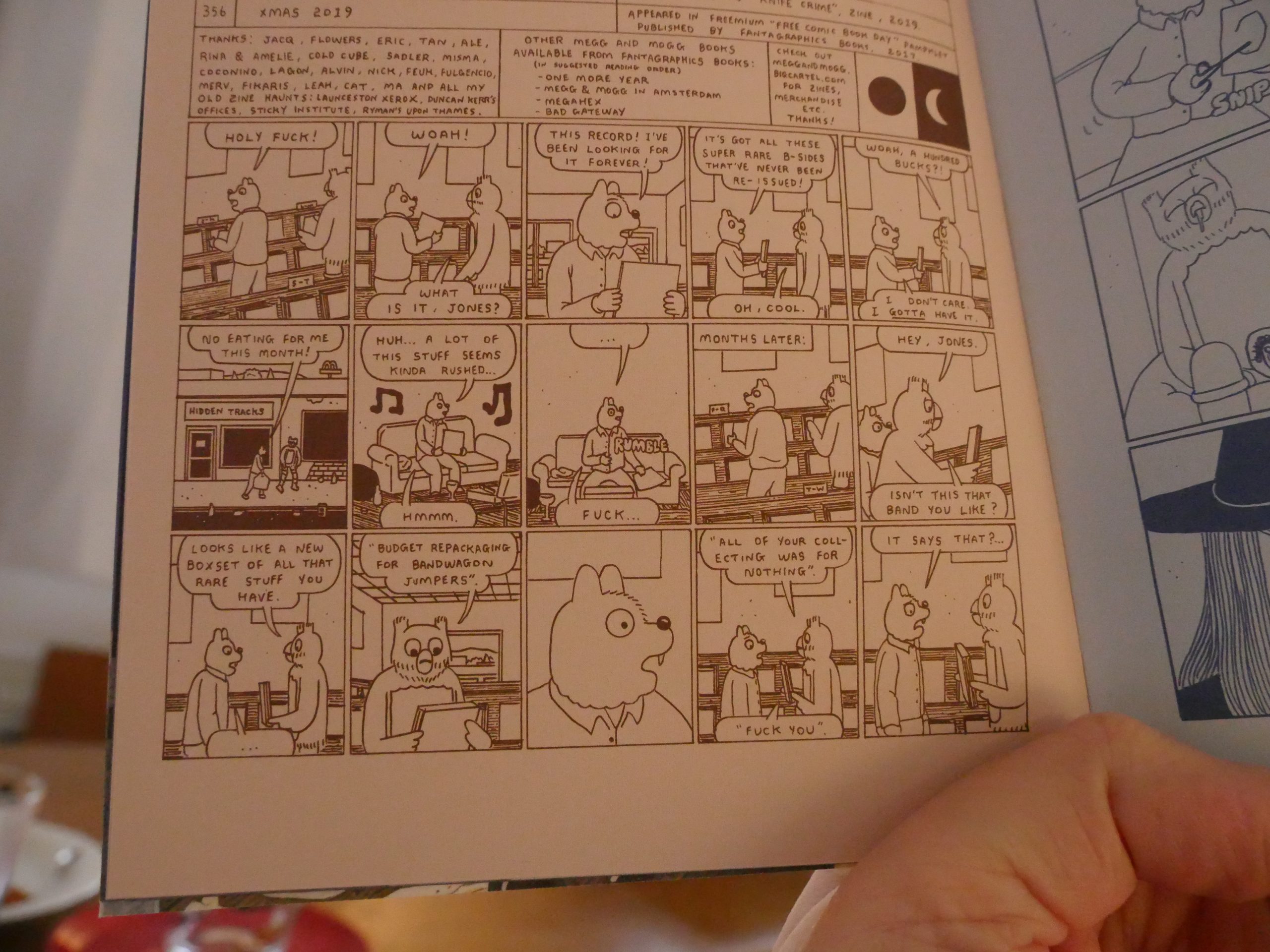
Hanselmann explains what this book is.
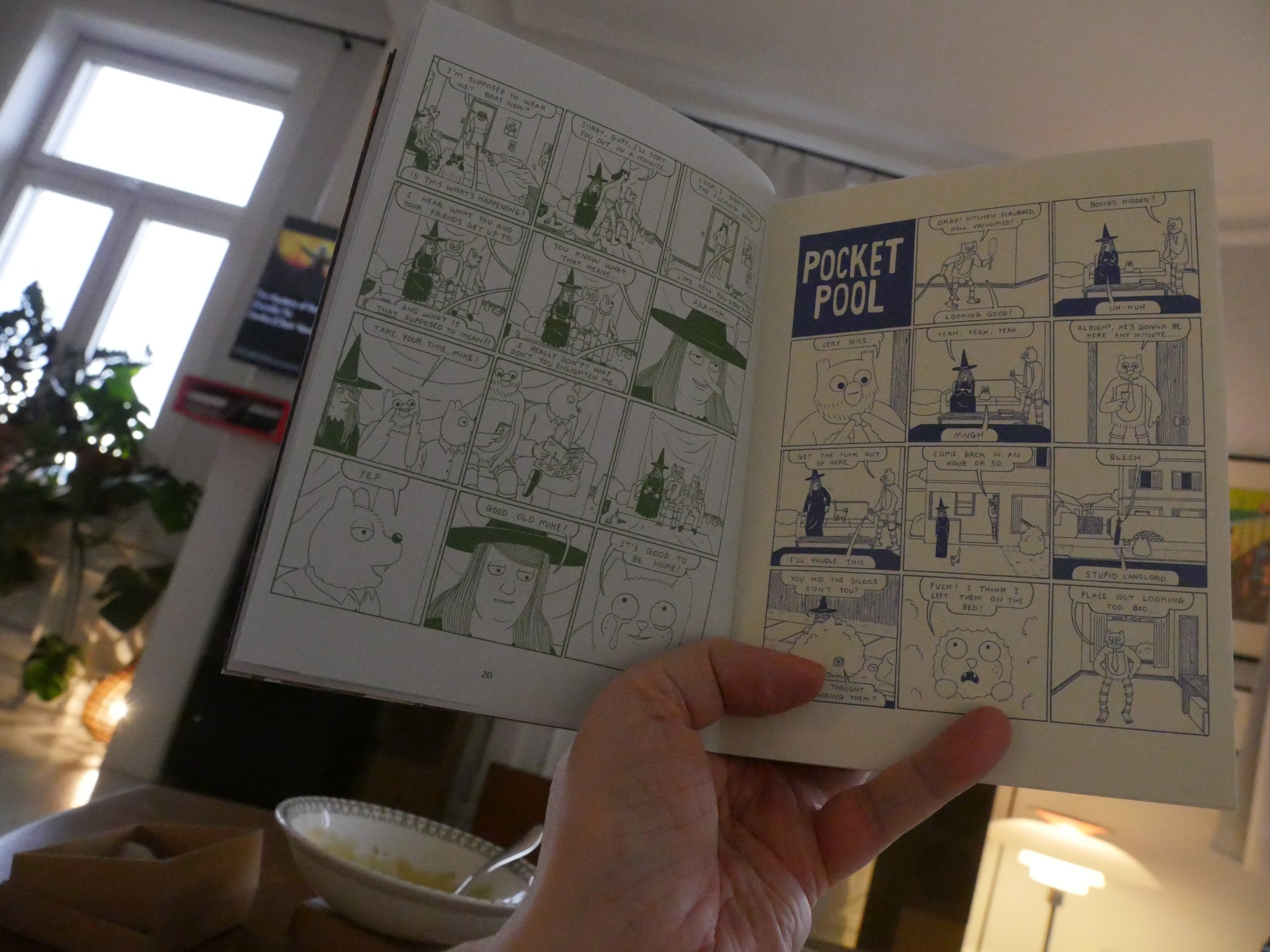
This is such a cute little book. But thick. It feels very generous — 350 pages of full on Hanselmann.
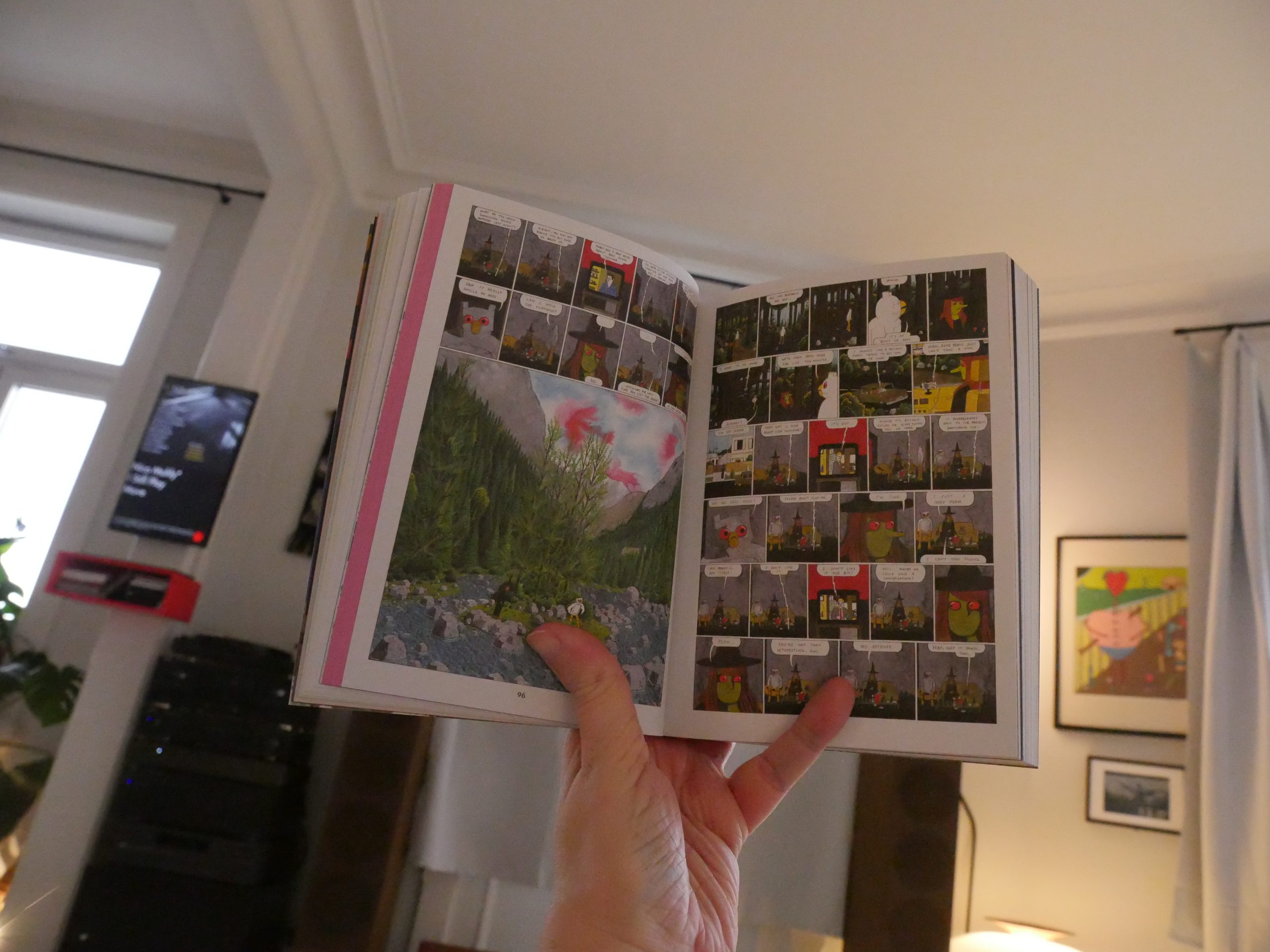
However, the small format makes it more approachable than it would have been as a big, hefty tome, but some of these strips didn’t survive the size reduction. And while the choice to print most of the pages on coloured paper is really cool, the low contrast makes some of these strips kinda eye-strainey.
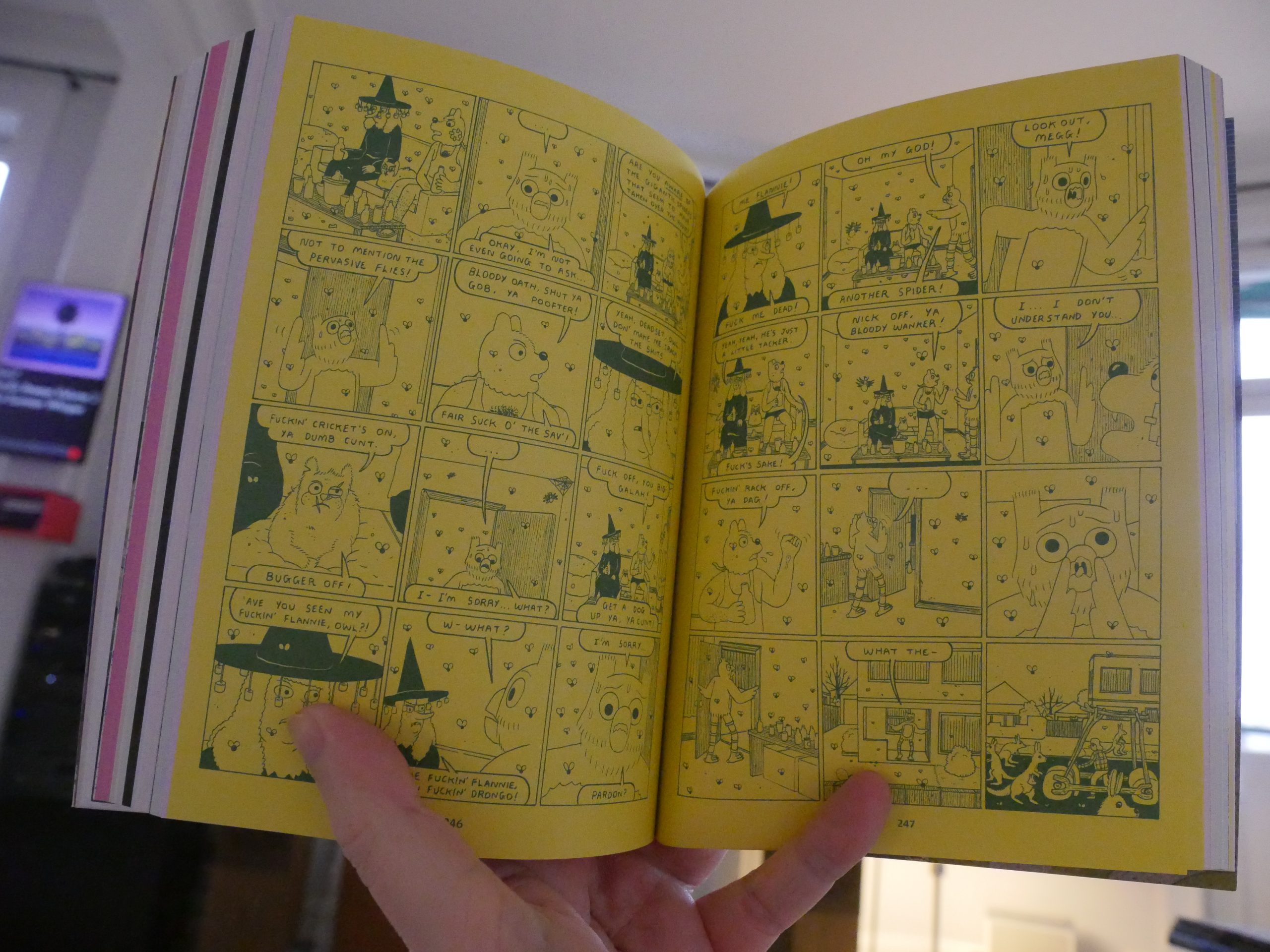
But whatever — this book is compulsively readable and hilarious. This is some of Hanselmann’s best stuff collected here — there’s no need for “structure” or “character development” here (which was the problem with his last book — was it the Bad Gateway thing?) which can bog stuff down. Here’s it’s just funny/tragic, and it keeps on going. It’s wonderful.
| Various: Pacific Breeze Volume 2: Japanese City Pop, AOR & Boogie 1972-1986 | 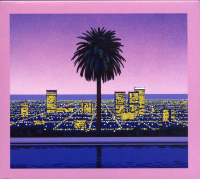 |
11:34: The End
But I’m exhausted now, so I think I’ll try to get a nap in before I go to bed.
